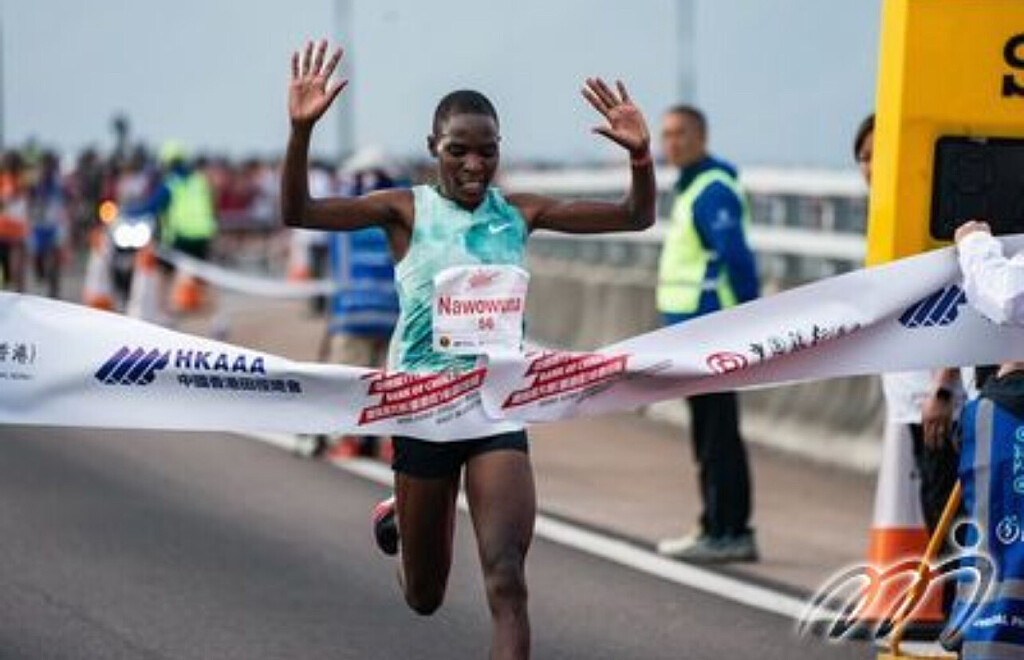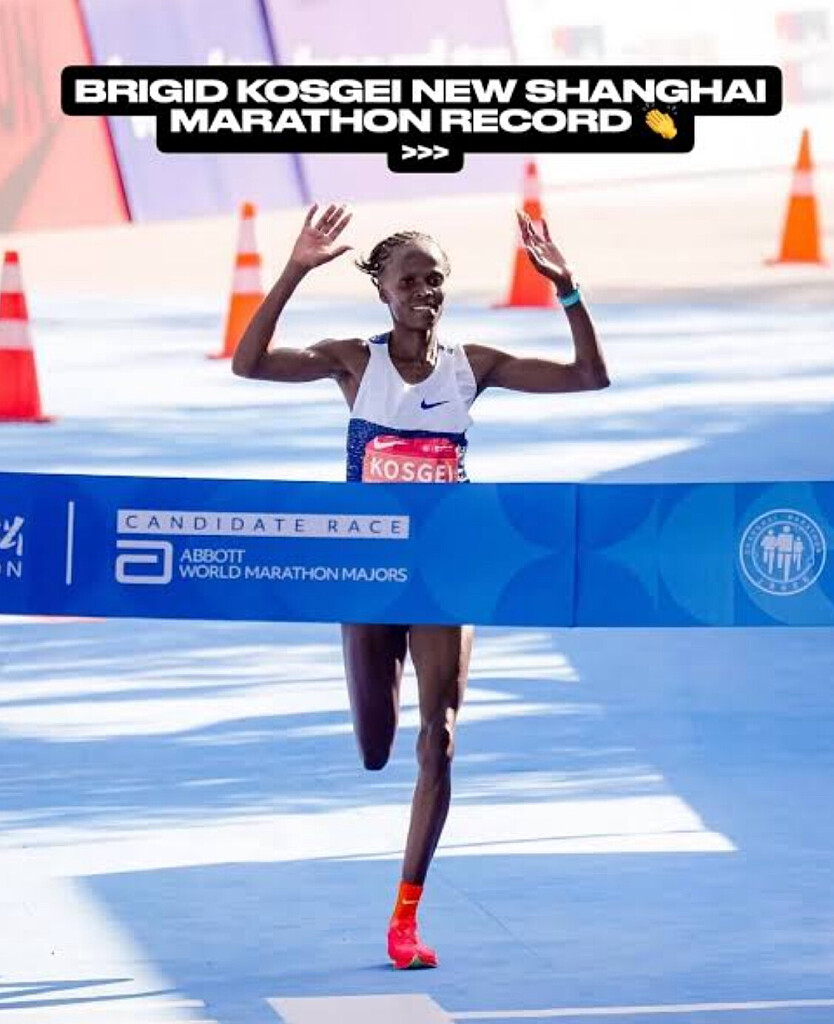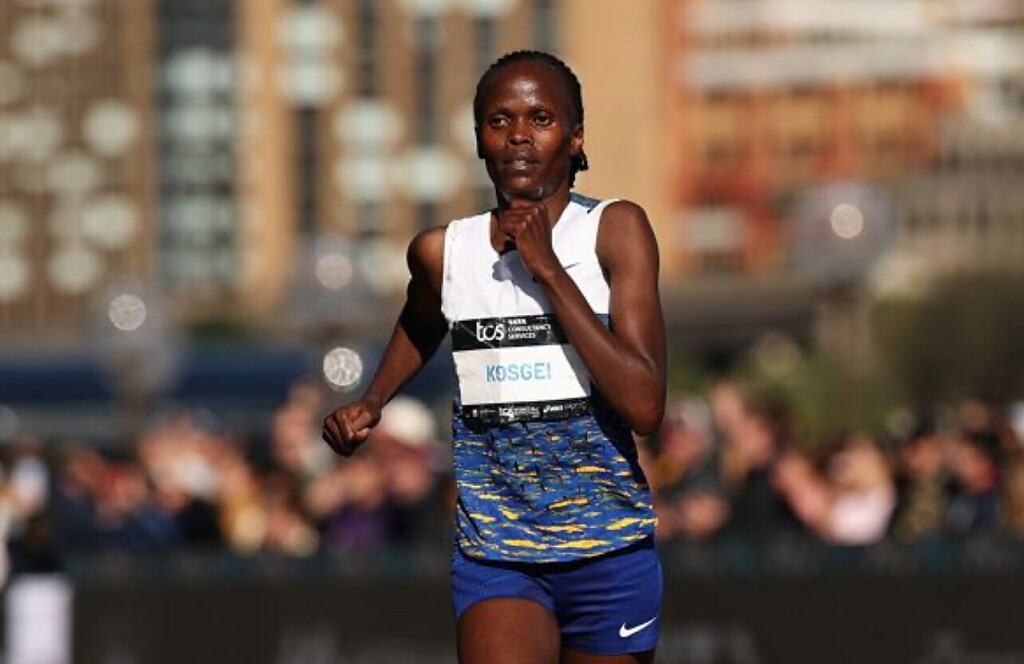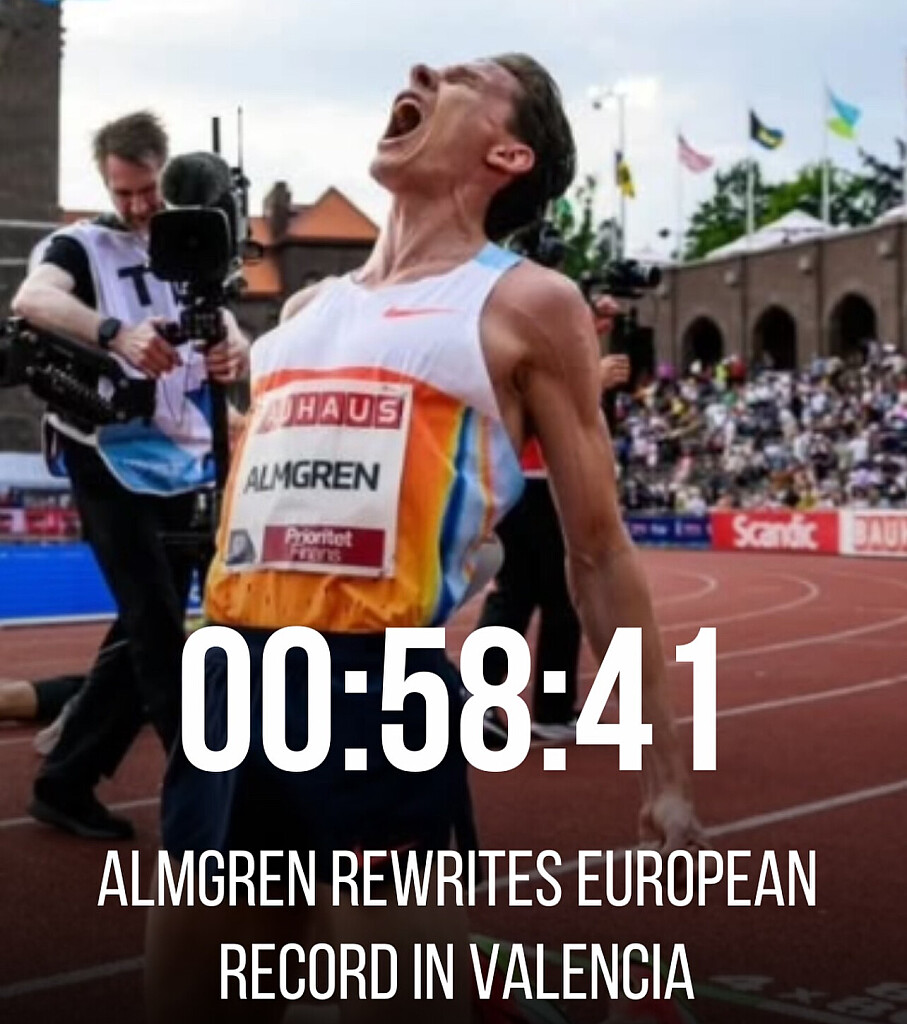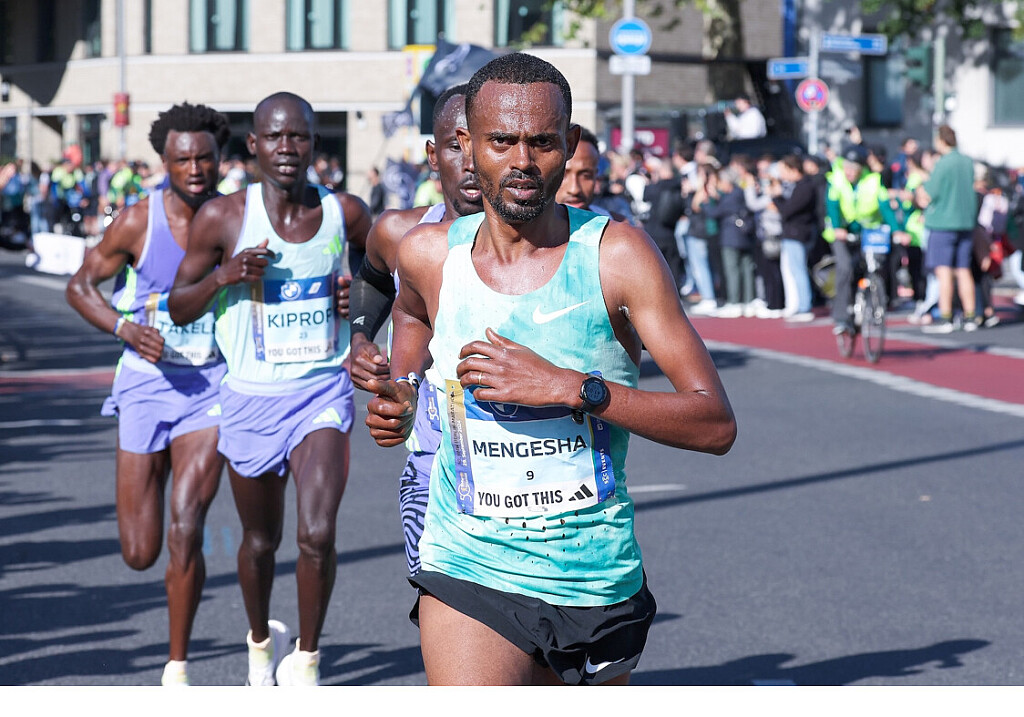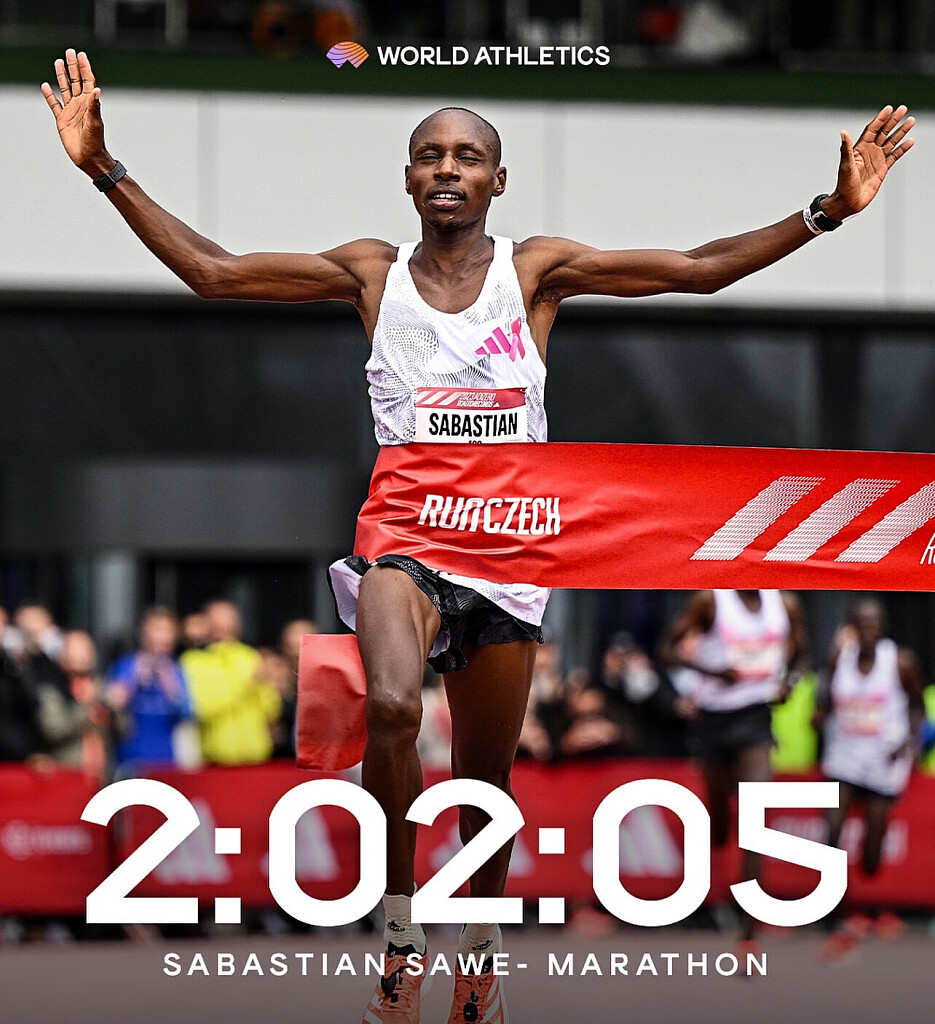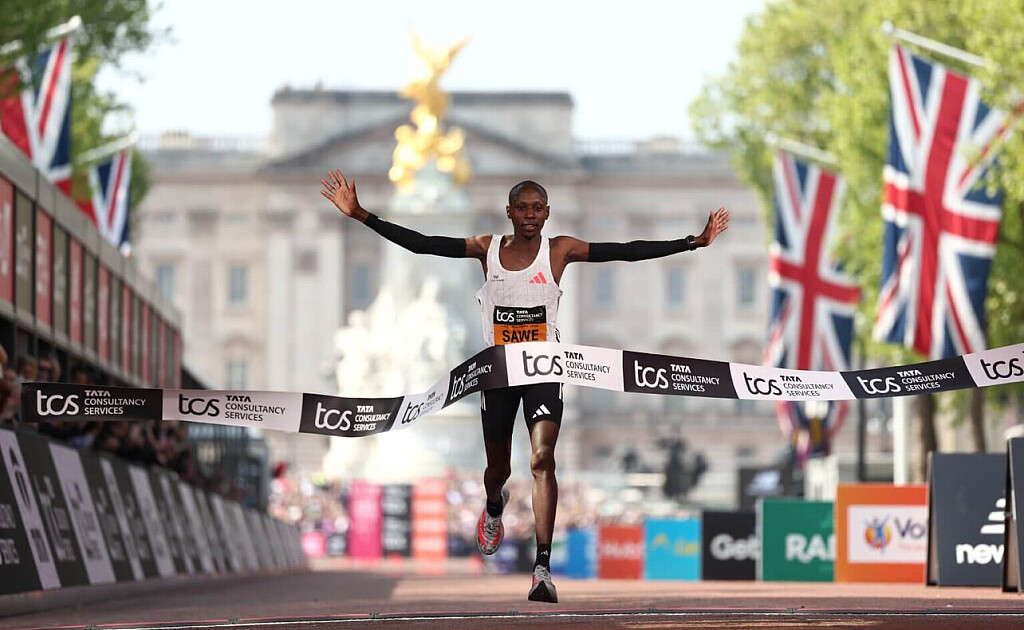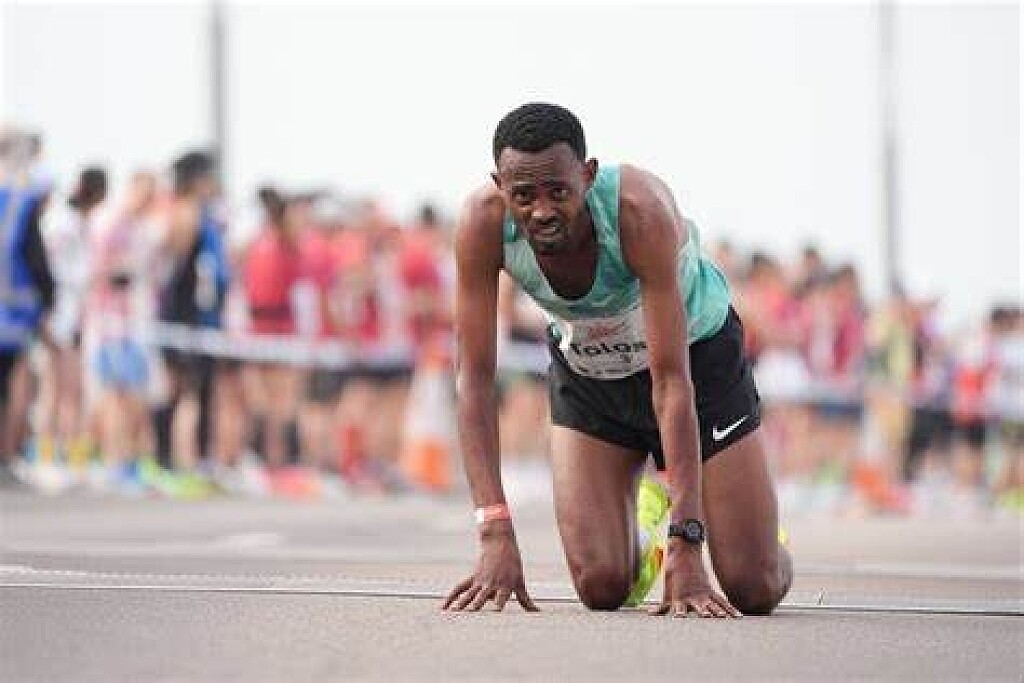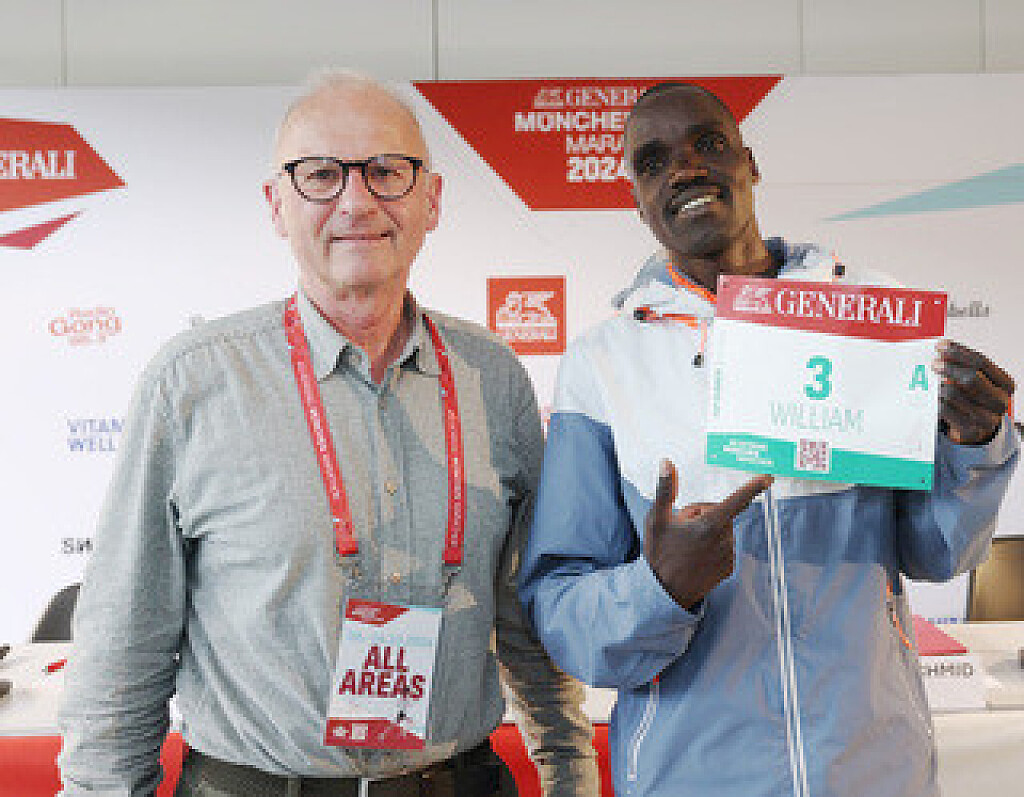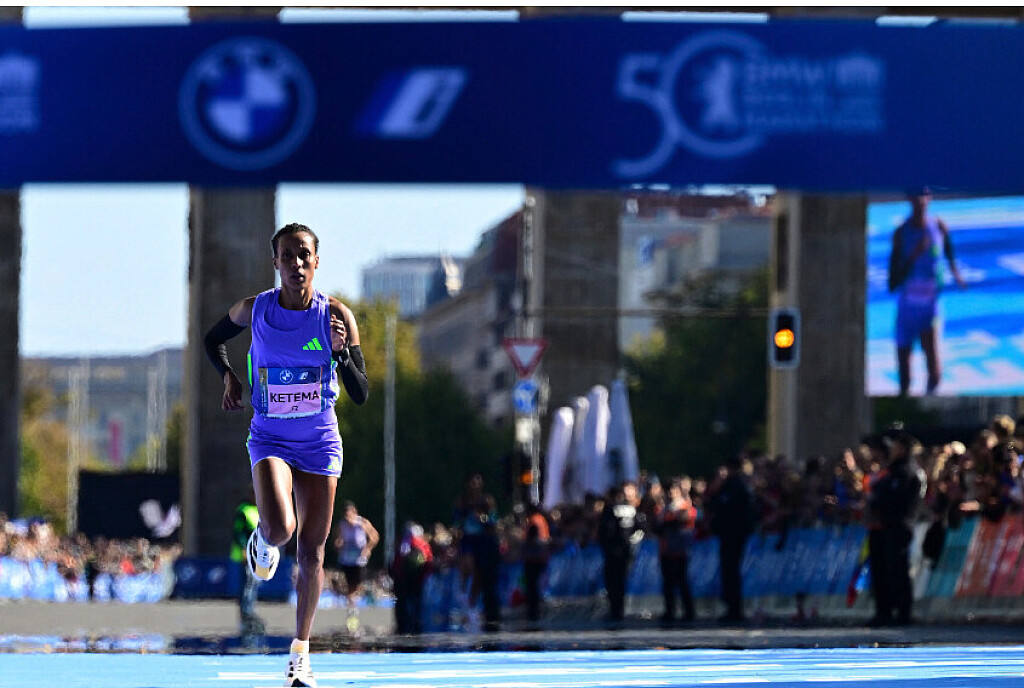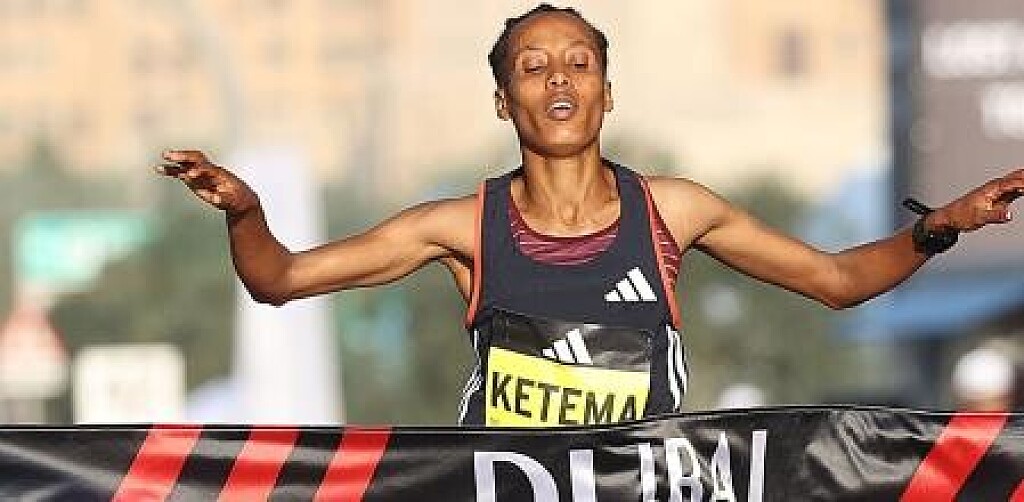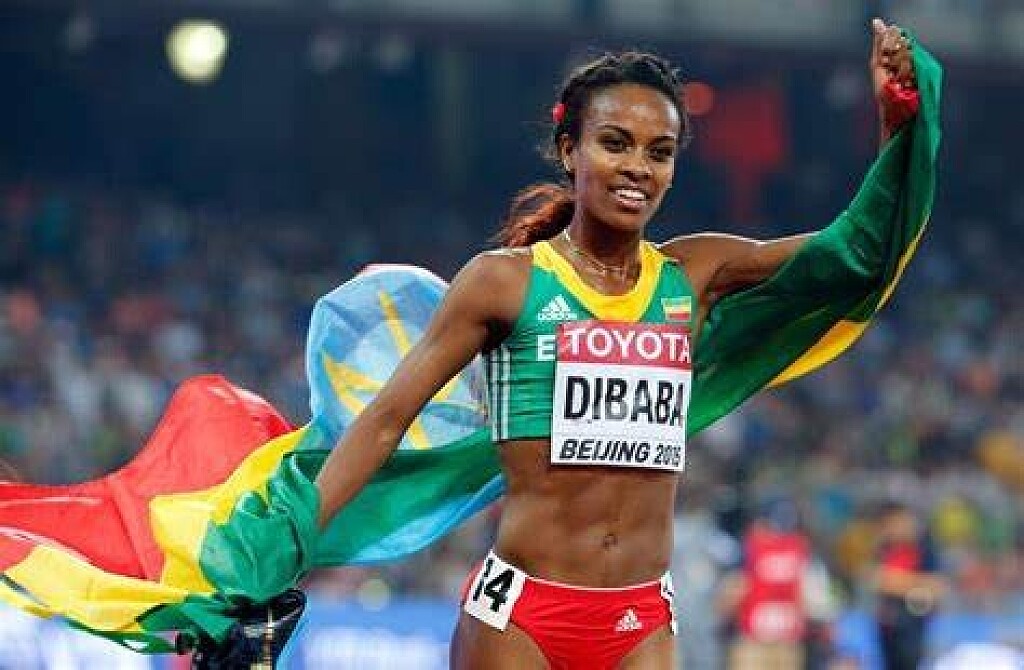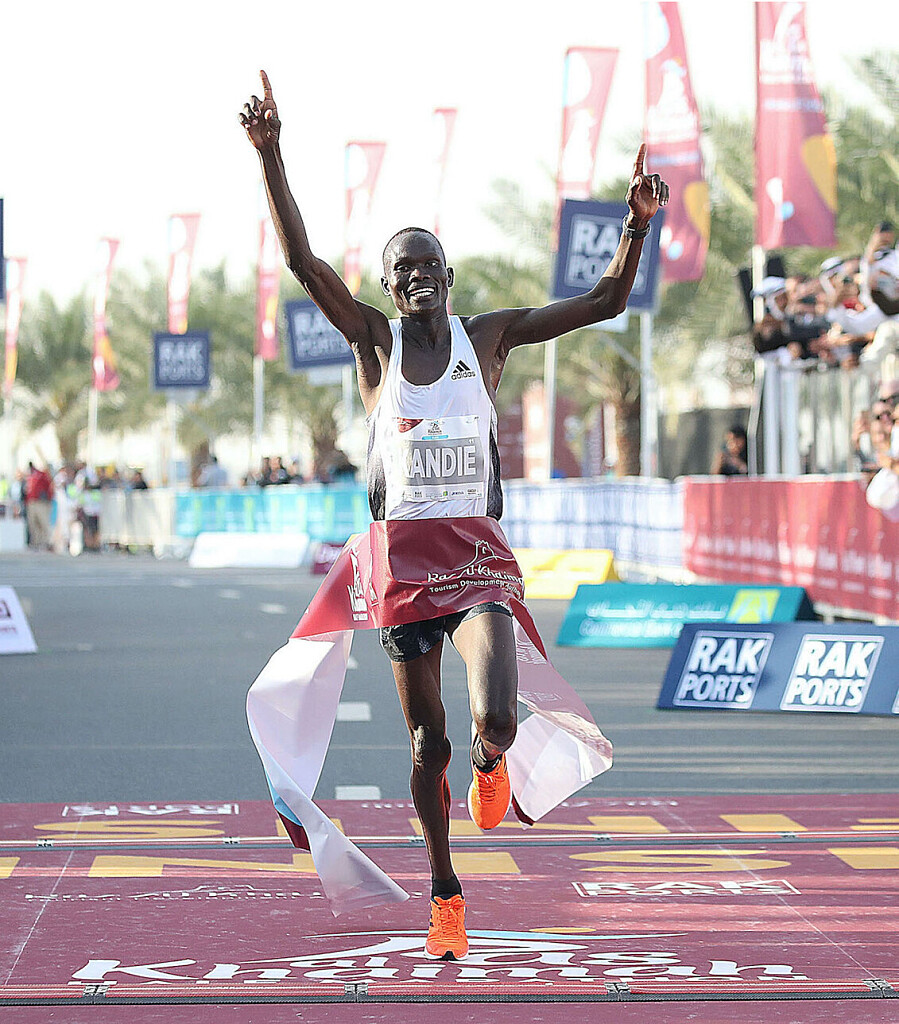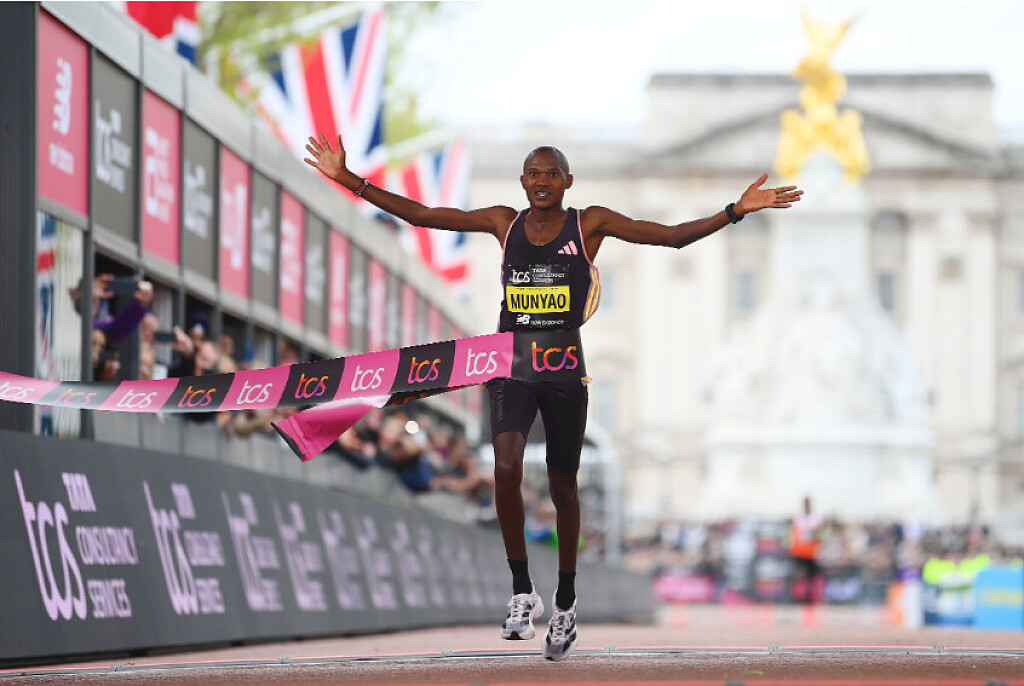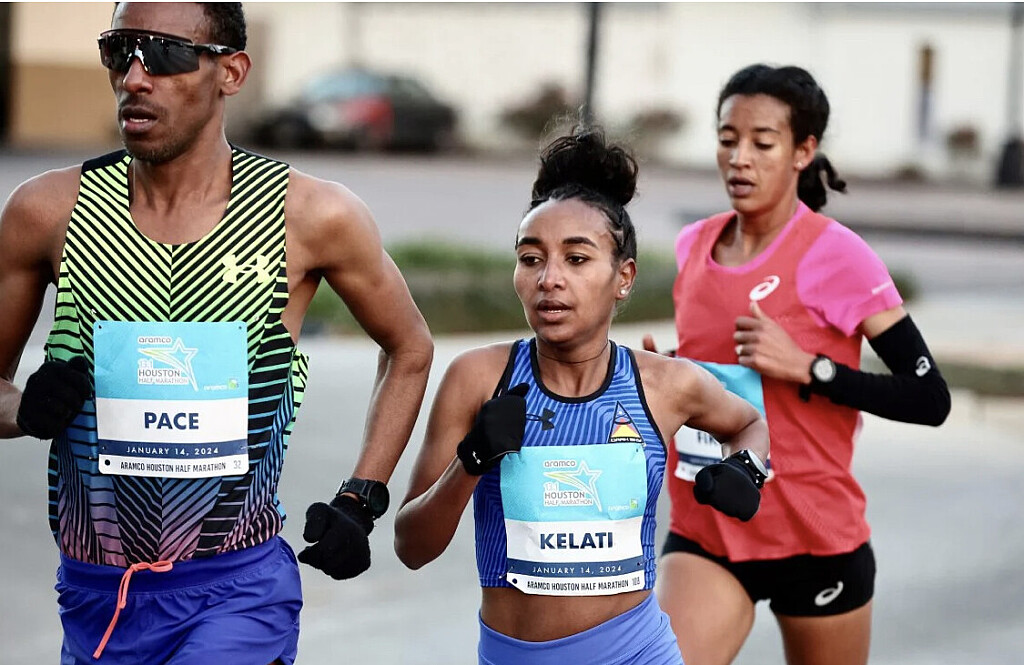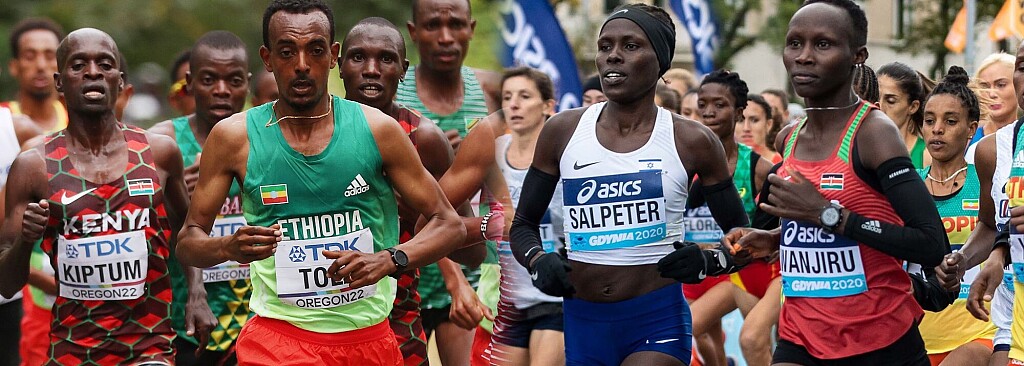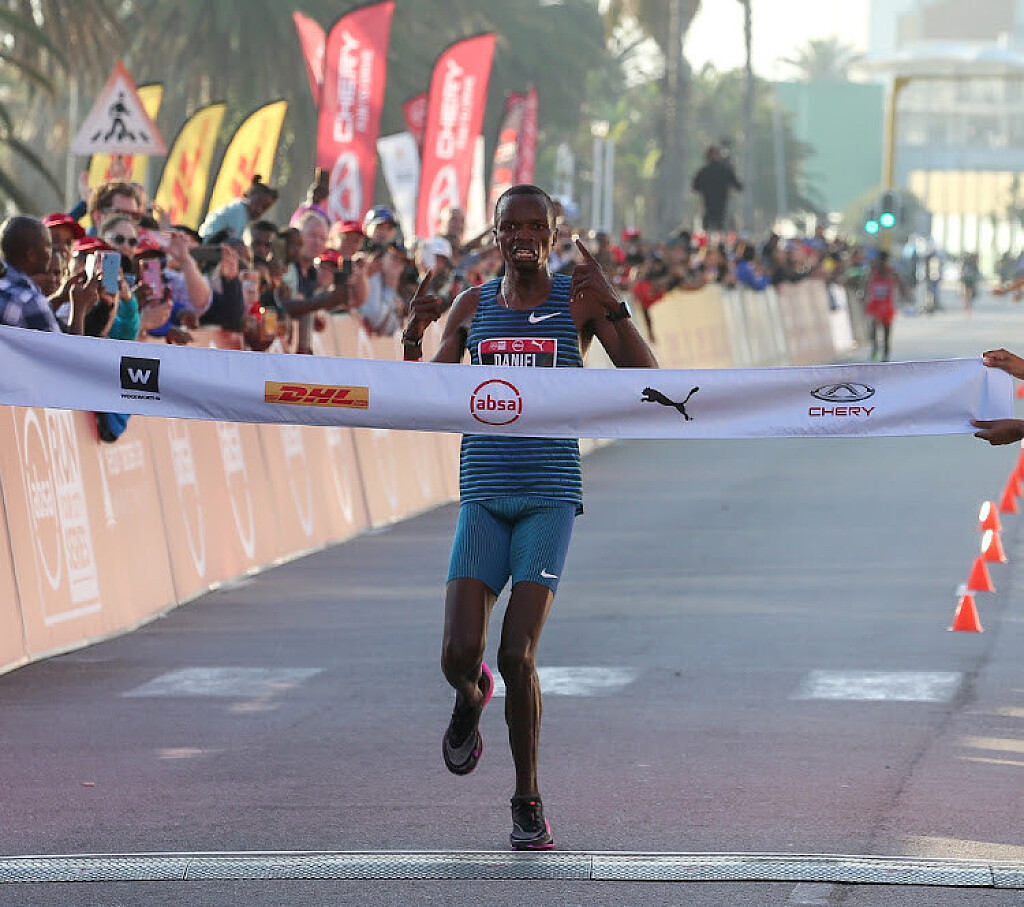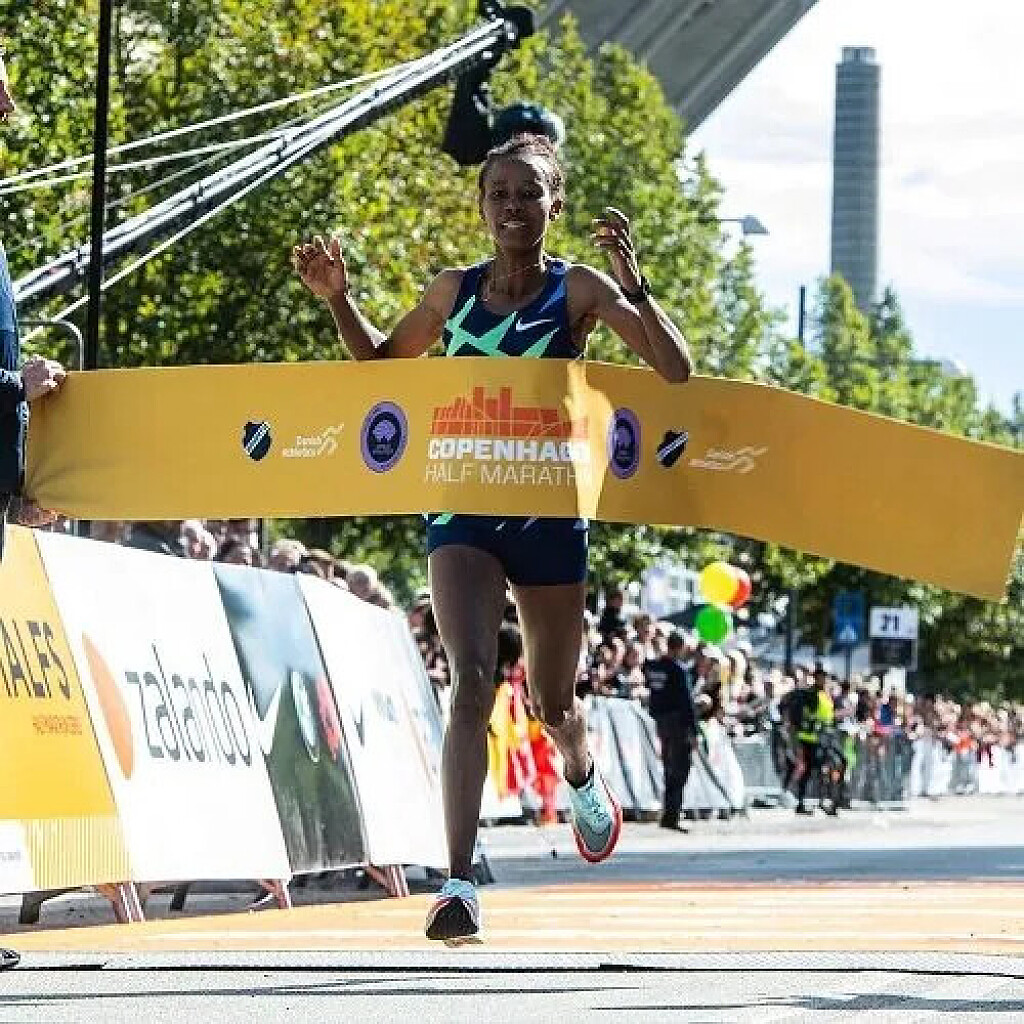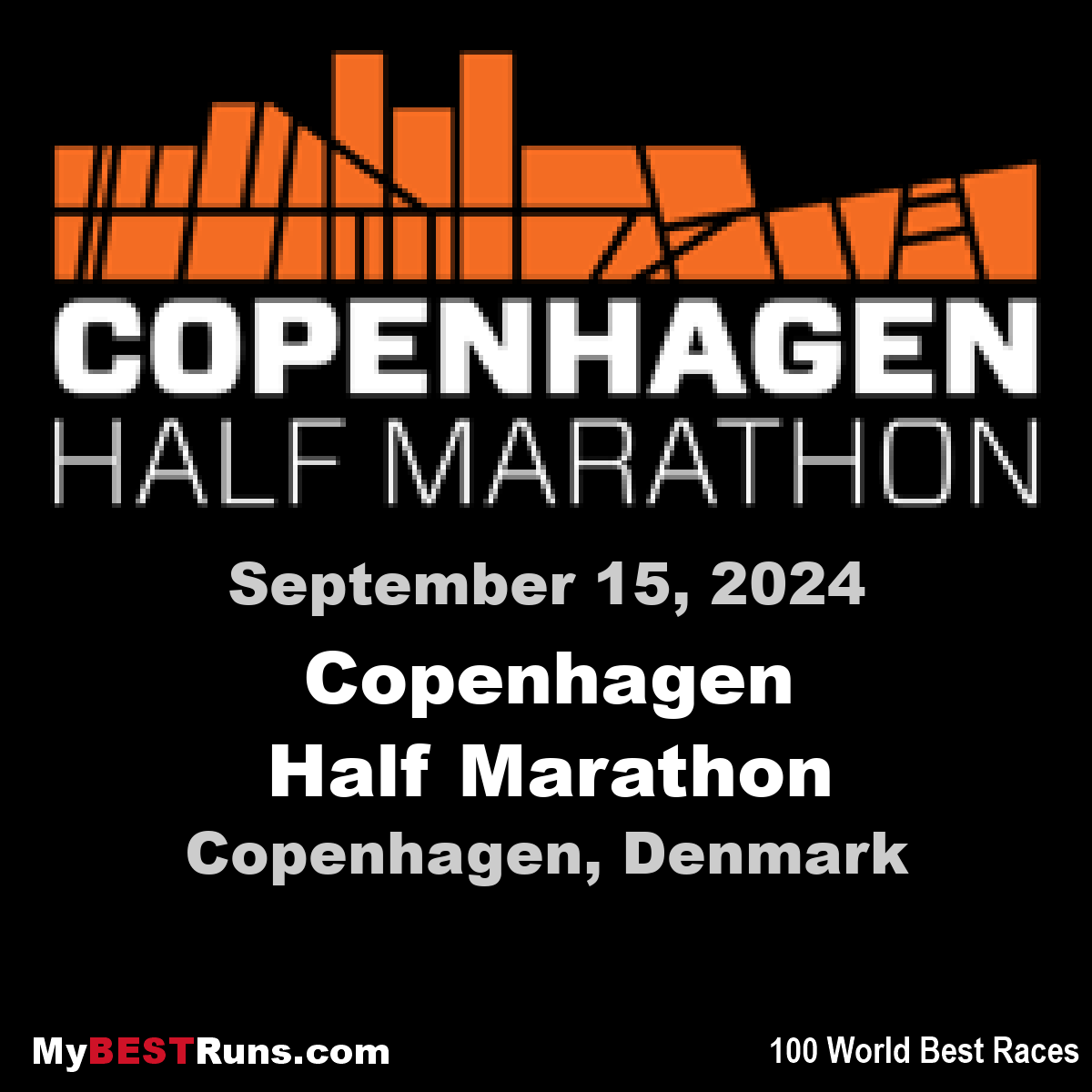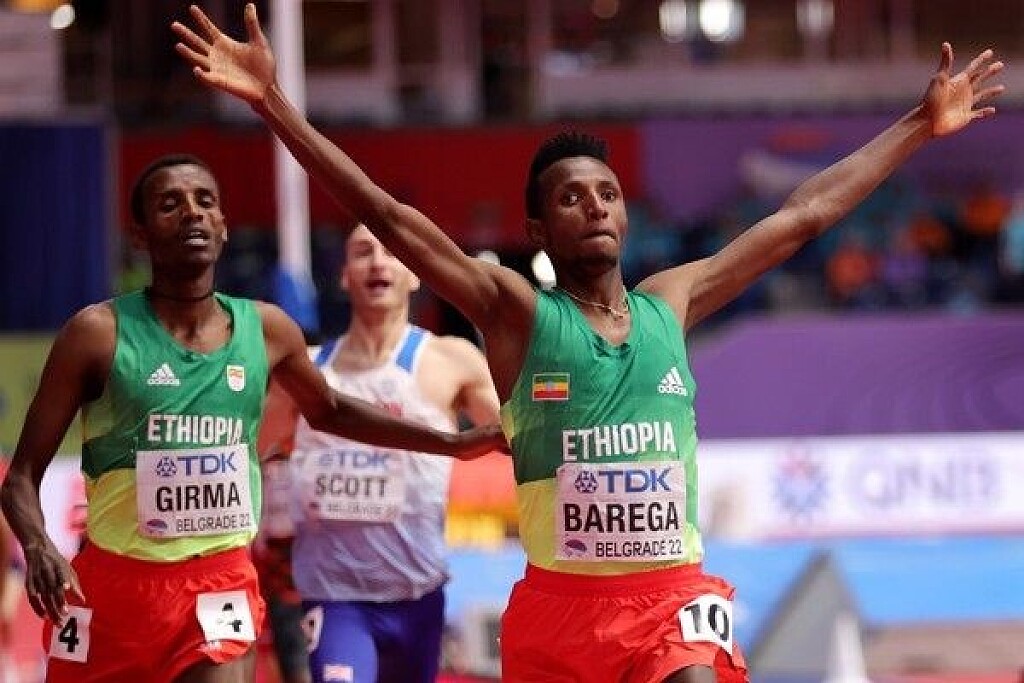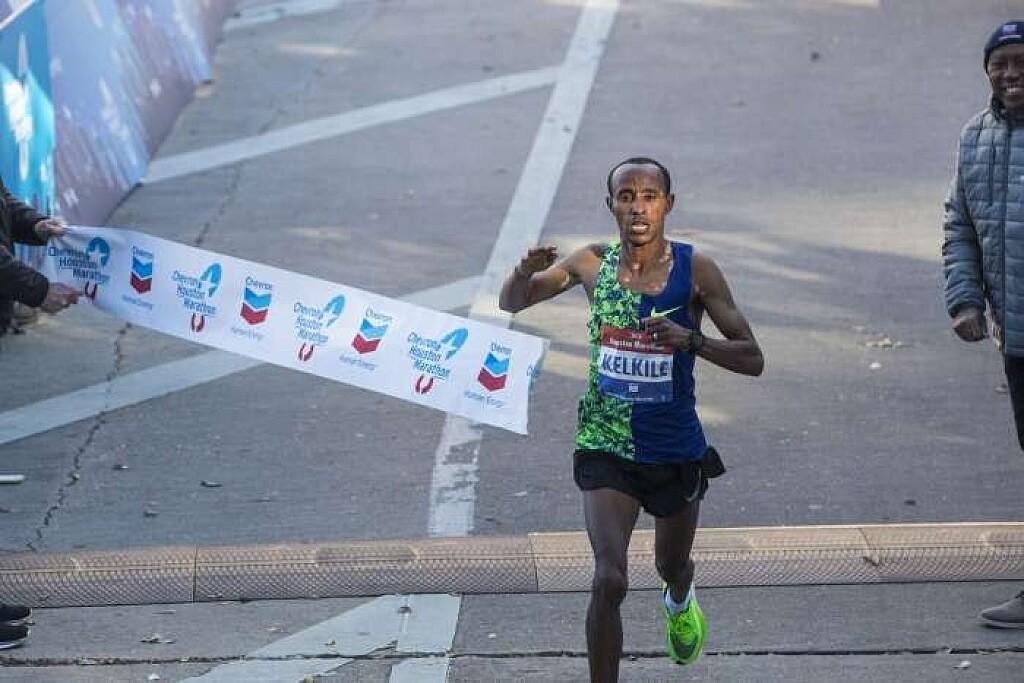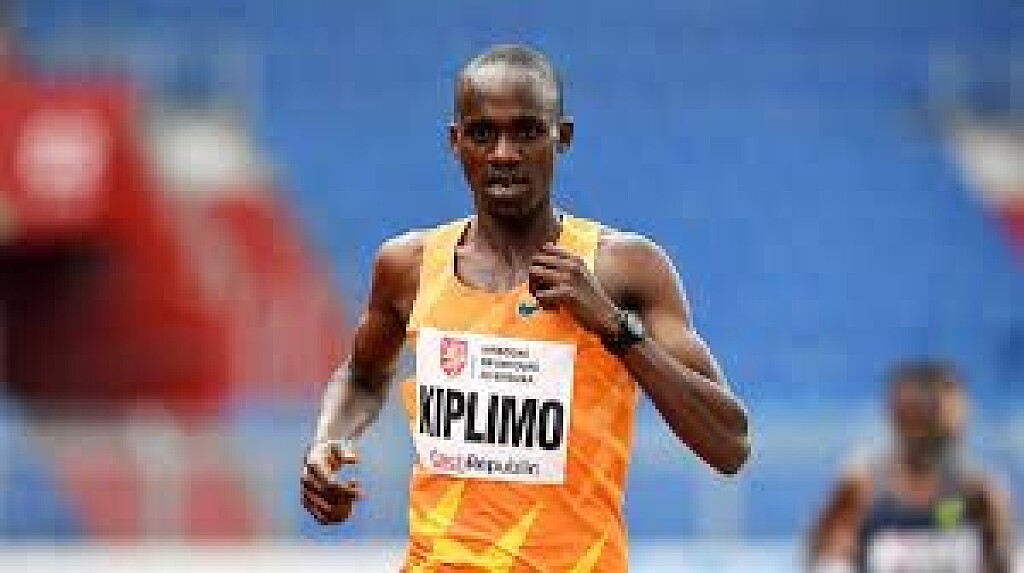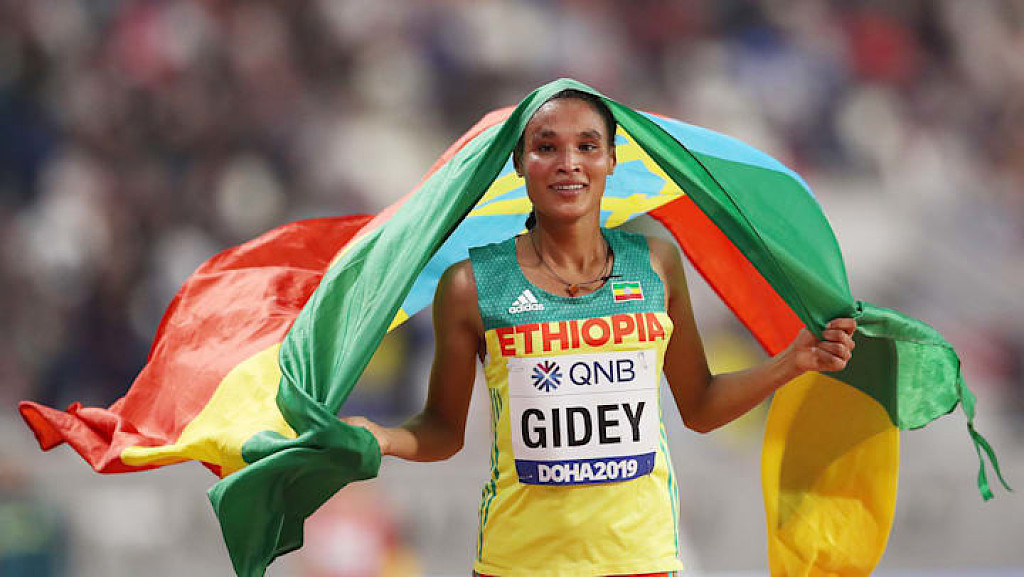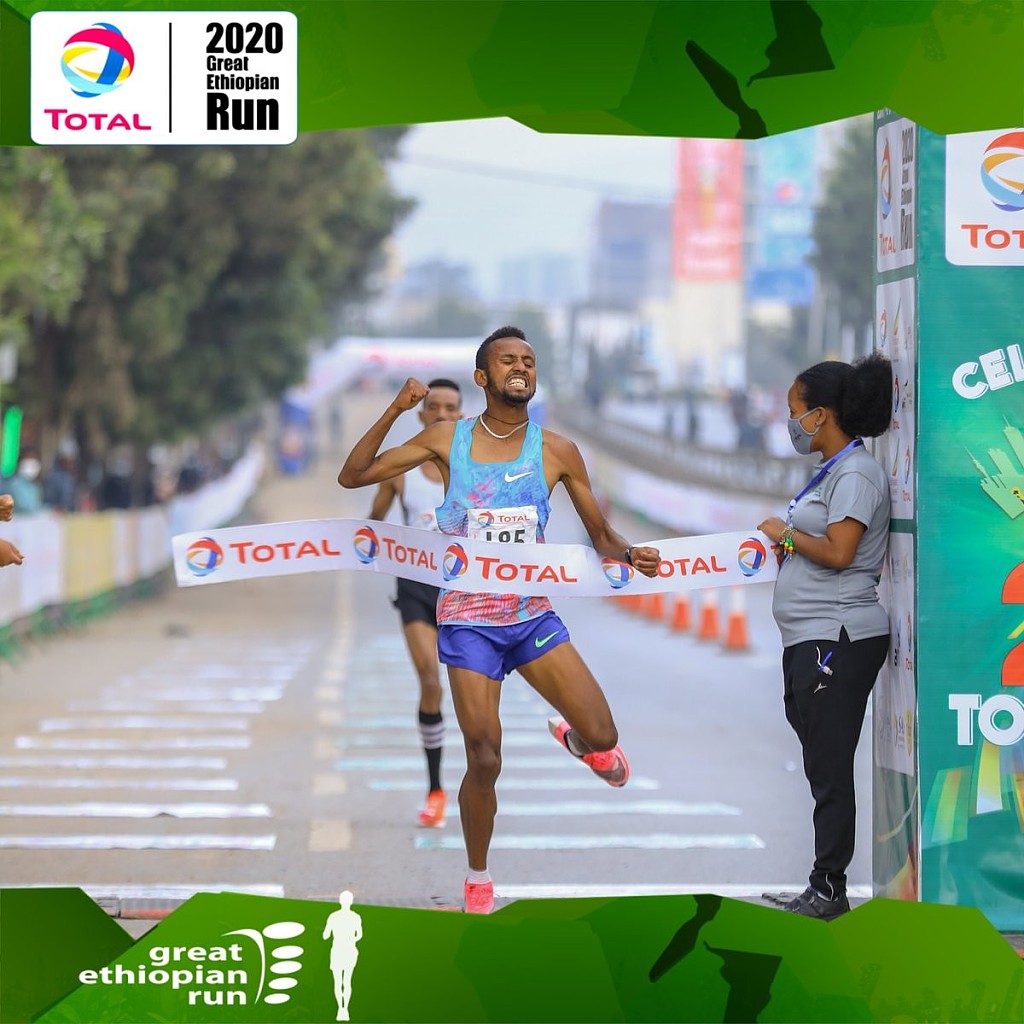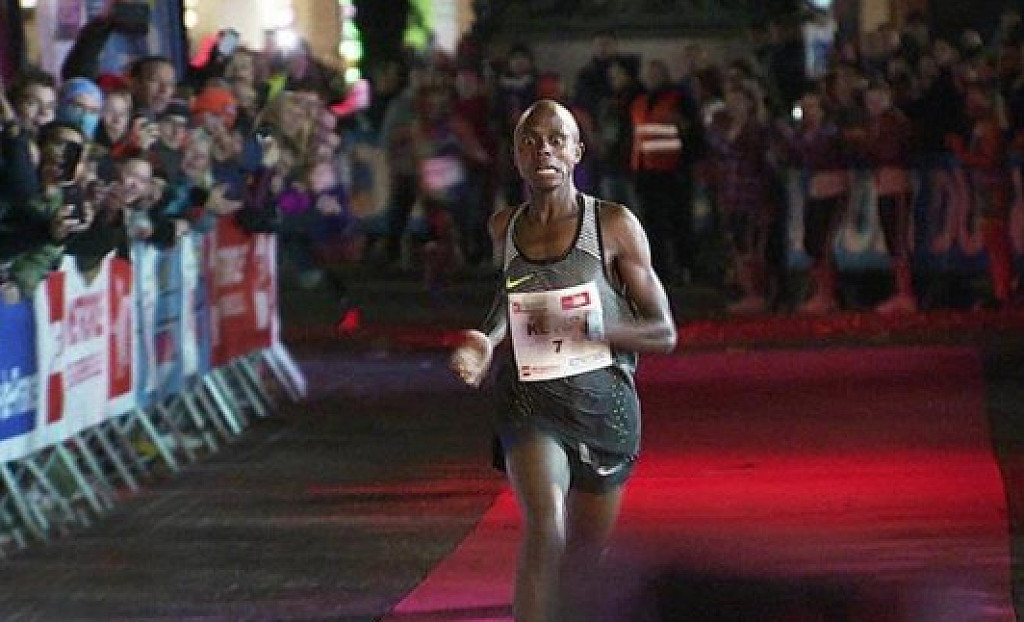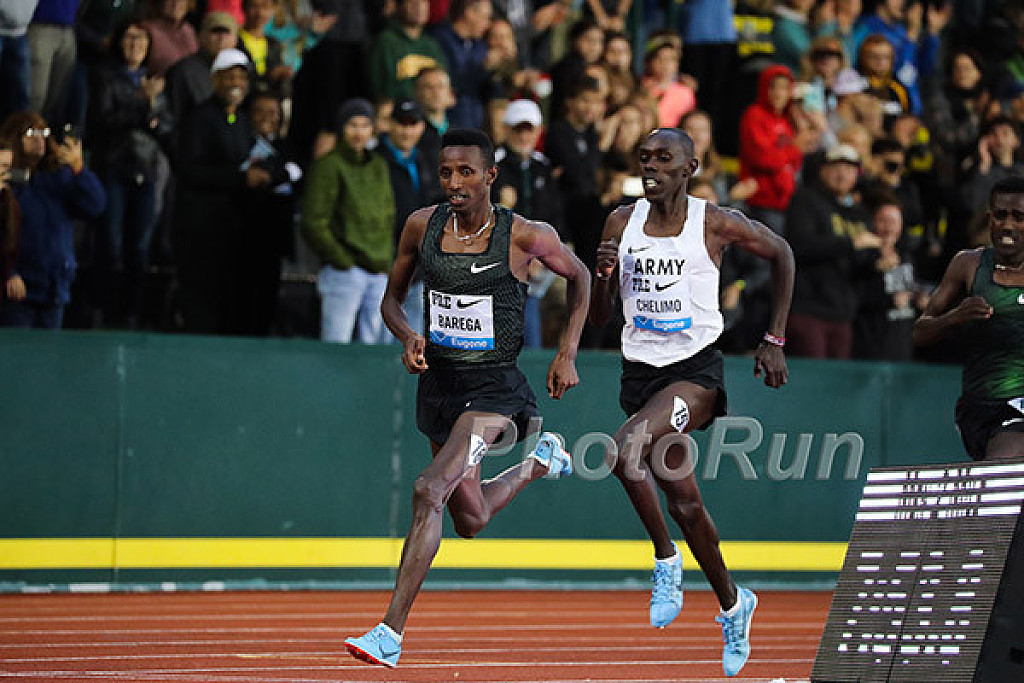Running News Daily
Running News Daily is edited by Bob Anderson. Send your news items to bob@mybestruns.com Advertising opportunities available. Train the Kenyan Way at KATA Kenya and Portugal owned and operated by Bob Anderson. Be sure to catch our movie A Long Run the movie KATA Running Camps and KATA Potato Farms - 31 now open in Kenya! https://kata.ke/
Index to Daily Posts · Sign Up For Updates · Run The World Feed
Articles tagged #Milkesa Mengesha
Today's Running News
Mengesha and Loibach Conquer the World’s Longest Sea Bridge at Zhuhai–Macao Half Marathon
Ethiopia’s Milkesa Mengesha delivered a commanding performance to claim the men’s title at the 2026 Zhuhai–Macao Bridge Half Marathon, stopping the clock at 1:01:27 as elite runners battled wind and exposure on one of the most extraordinary road courses in the world.
Staged on the Hong Kong–Zhuhai–Macao Bridge, the longest sea-crossing bridge on the planet, the race offered a rare blend of speed, spectacle, and sustained mental challenge. Athletes surged onto wide, open tarmac suspended above the Pearl River Delta, facing long straightaways, gentle undulations, and uninterrupted views of open water stretching in every direction.
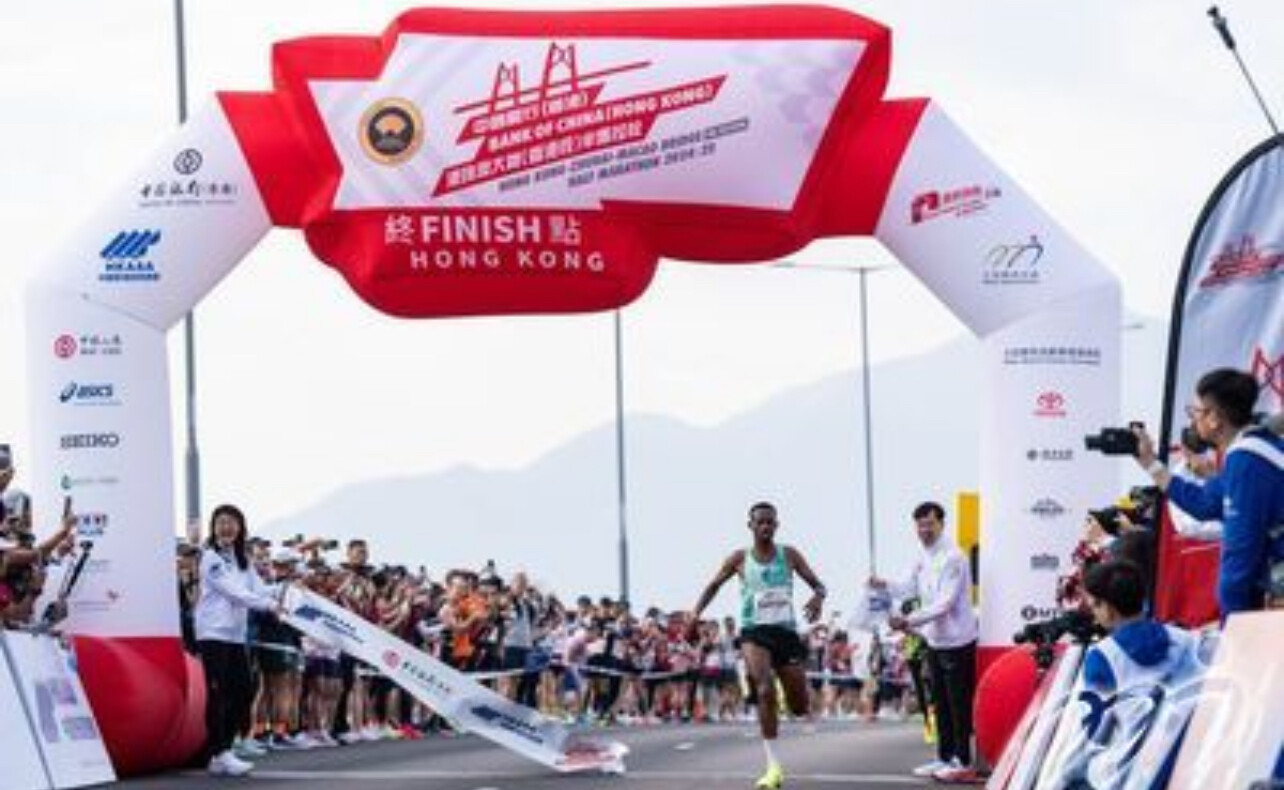
Mengesha remained patient through the early kilometres as a tightly packed lead group controlled the tempo. He broke clear late in the race, asserting his strength when conditions began to bite. Kenya’s Patrick Mosin stayed close throughout but settled for second in 1:01:30, just three seconds back, while fellow Ethiopian Haftu Teklu completed the podium in 1:02:54.
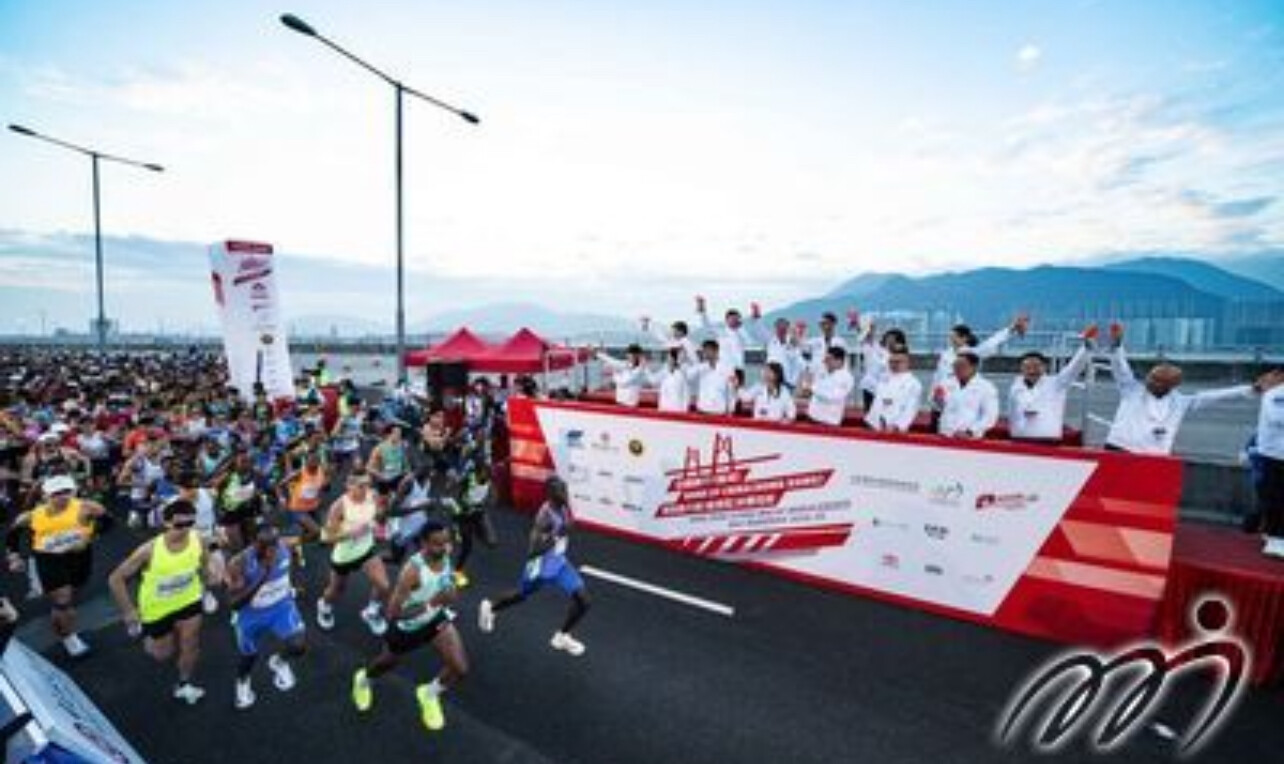
A Course That Tests Rhythm and Resolve

Unlike traditional city courses lined with spectators, the bridge route is defined by exposure. January brought cool temperatures and steady coastal winds—ideal for fast running but demanding precise pacing. With little shelter on the open deck, runners were forced to manage rhythm and energy as gusts disrupted stride patterns and pack dynamics.
The out-and-back layout added another tactical layer, allowing athletes to measure themselves directly against the field. The turnaround point became a revealing moment, separating those with reserves left for the return leg from those already on the edge.
Loibach Leads Kenyan Sweep in the Women’s Race
In the women’s contest, Kenya’s Grace Loibach Nawowuna underlined her rising status on the international road circuit, claiming victory in 1:07:56 after a fiercely contested race among a deep Kenyan contingent.
She was followed closely by Sheila Chelangat (1:08:06) and Viola Chepngeno (1:08:09), with the top four women finishing within half a minute of one another—a reflection of both tactical racing and the course’s unforgiving nature.
Loibach’s winning time marked an improvement on last year’s performance, highlighting both favourable conditions and the increasing depth of competition the race continues to attract.
A Step Forward From Last Year
In the previous edition, winning times were marginally slower, shaped by cautious early pacing. This year’s performances—particularly at the front—reflected a shift toward more assertive racing, aided by calm early conditions and strong international fields from East Africa and Asia.
The Zhuhai–Macao Bridge Half Marathon is rapidly establishing itself as a destination race for elite and sub-elite runners alike, offering genuine speed potential on a course unlike any other on the global road calendar.
For many competitors, it was more than a race for time or position—it was an experience of running between sea and sky, where concentration, patience, and strength mattered as much as raw speed.
RESULTS – ZHUHAI–MACAO BRIDGE HALF MARATHON
Men
1. Milkesa Mengesha (ETH) — 1:01:27
2. Patrick Mosin (KEN) — 1:01:30
3. Haftu Teklu (ETH) — 1:02:54
4. Weldon Langat (KEN) — 1:02:57
5. Luke Kiprop (KEN) — 1:02:57
6. Negasa Dekeba (ETH) — 1:05:03
7. Yuki Kawauchi (JPN) — 1:07:52
8. Chong See Yeung (HKG) — 1:09:44
9. Man Ho (HKG) — 1:10:36
Women
1. Grace Loibach Nawowuna (KEN) — 1:07:56
2. Sheila Chelangat (KEN) — 1:08:06
3. Viola Chepngeno (KEN) — 1:08:09
4. Gladys Chepkurui (KEN) — 1:08:23
5. Gotytom Gebreslase (ETH) — 1:08:54
6. Miriam Chebet (KEN) — 1:09:59
7. Daisy Jepkemei (KAZ) — 1:10:08
8. Megertu Mideksa (ETH) — 1:11:41
9. Ying Chu Lo (HKG) — 1:16:45
10. Shiu Yan Leanne Szeto (HKG) — 1:20:15
by Robert Kibet for My Best Runs
Login to leave a comment
Kosgei Shatters Course Record as Mengesha Leads Ethiopian Sweep at the 2025 Shanghai Marathon
The 2025 Shanghai Marathon delivered the kind of fireworks organizers were hoping for on Sunday, November 30—fast times, dominant front-running, and a powerful statement that Shanghai is ready to join the World Marathon Majors.
More than 23,000 runners started at the Bund at 7 a.m., racing through one of the world’s most iconic skylines before finishing at Shanghai Stadium. Both the men’s and women’s races produced standout performances.
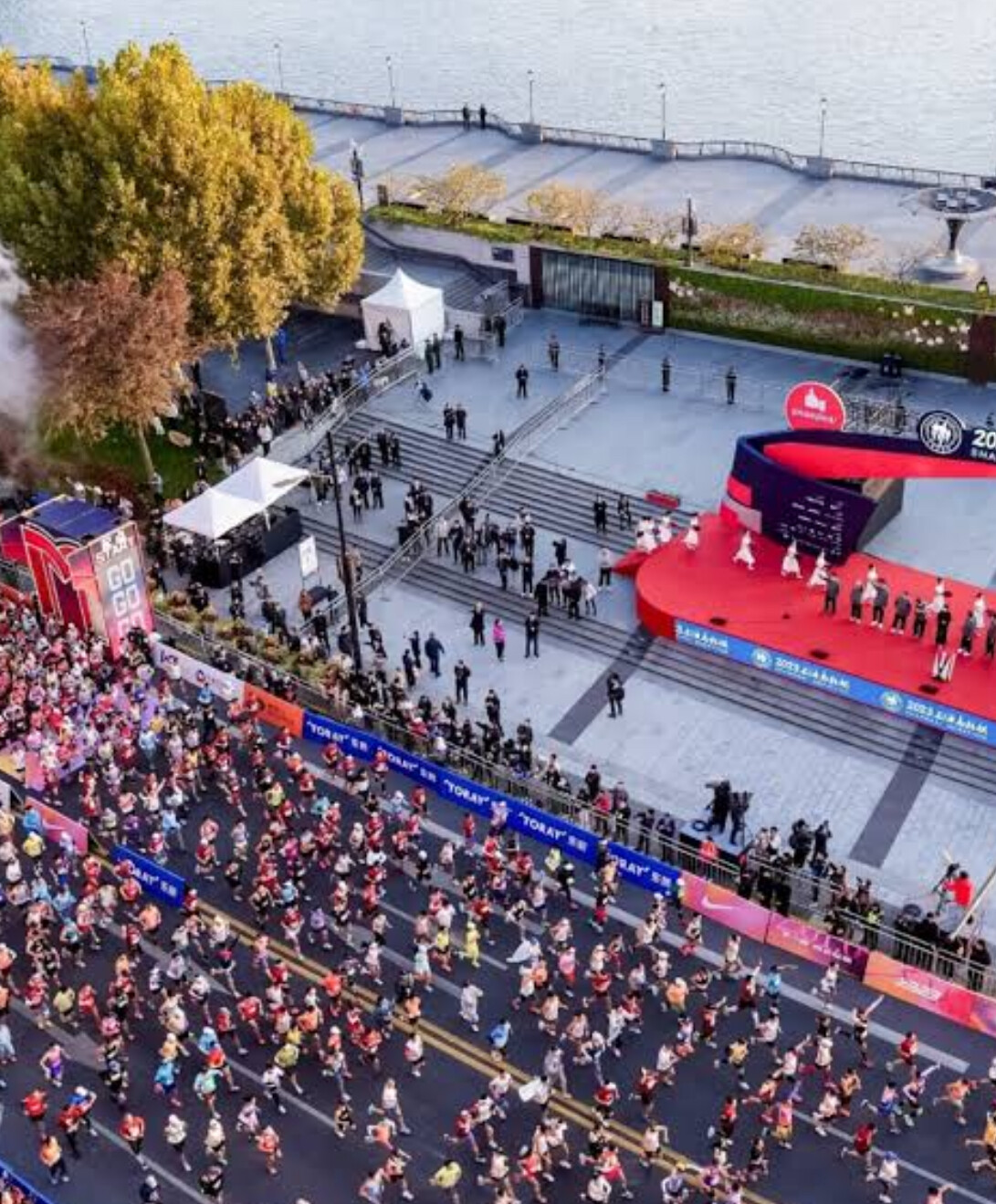
Kosgei Back on Top With a Historic Run
Former world record-holder Brigid Kosgei returned to the top of the podium in commanding style. The 31-year-old Kenyan surged early, hit halfway under 69 minutes, and never looked back, winning in 2:16:36—
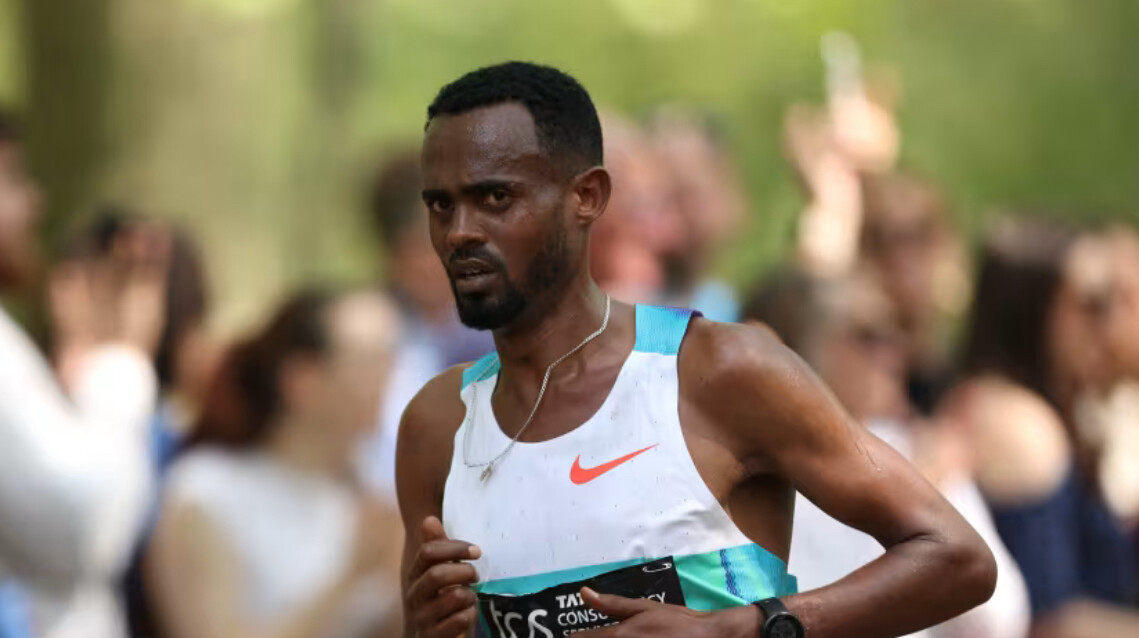
• the fastest marathon ever run on Chinese soil,
• a new Shanghai course record, and
• the third-fastest performance of her career.
Only compatriot Irine Chepet Cheptai could stay close in the early miles, eventually taking second in 2:18:51. Ethiopia’s Tiruye Mesfin finished third in 2:20:38, followed closely by fellow Ethiopian Bekelech Gudeta at 2:20:59.
China’s top star Zhang Deshun placed fifth in 2:25:13, continuing her impressive streak of top domestic finishes.
Ethiopia Sweeps the Men’s Podium
The men’s race unfolded differently—a large, aggressive pack early on before Ethiopia dominated the final 10K. In a furious sprint to the line, Milkesa Mengesha broke the tape in 2:06:25, edging compatriot Dawit Wolde by two seconds. Deresa Geleta finished third in 2:06:36, completing an all-Ethiopian podium.
Five Ethiopians broke 2:07, underscoring the depth at the front.
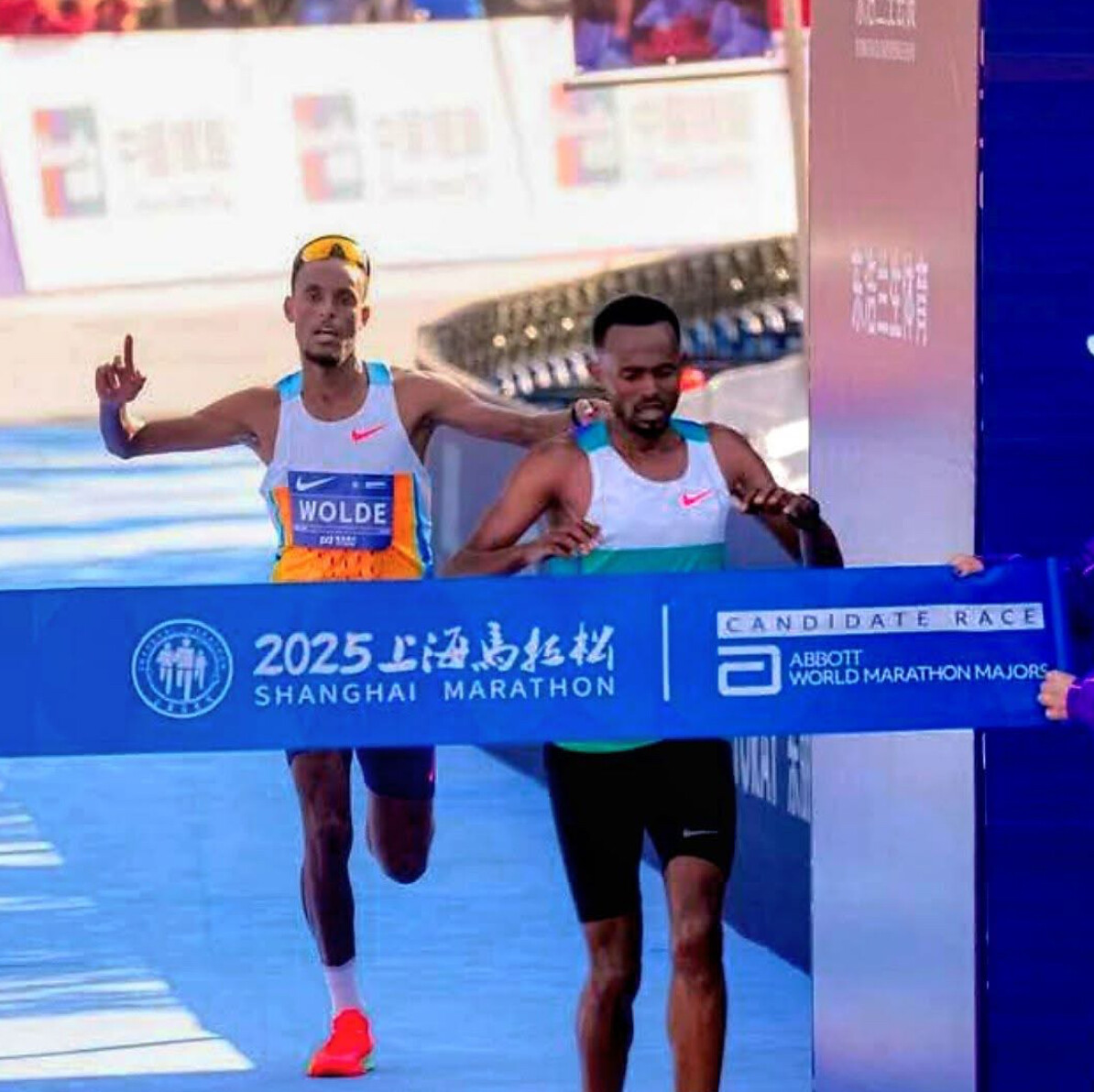
China’s Feng Peiyou delivered the best domestic performance of the day, clocking 2:08:36, the fastest marathon ever run by a Chinese athlete in Shanghai. Countrymen Yang Kegu, Li Dalin, and Ma Rui also cracked the top ten.
Top 10 Results
Men
1. Milkesa Mengesha (ETH) – 2:06:25
2. Dawit Wolde (ETH) – 2:06:27
3. Deresa Geleta (ETH) – 2:06:36
4. Haftu Teklu (ETH) – 2:06:57
5. Challa Gossa (ETH) – 2:08:06
6. Feng Peiyou (CHN) – 2:08:36
7. Solomon Kirwa Yego (KEN) – 2:09:42
8. Yang Kegu (CHN) – 2:12:00
9. Li Dalin (CHN) – 2:13:11
10. Ma Rui (CHN) – 2:13:26
Women
1. Brigid Kosgei (KEN) – 2:16:36 (course & Chinese all-comers record)
2. Irine Chepet Cheptai (KEN) – 2:18:51
3. Tiruye Mesfin (ETH) – 2:20:38
4. Bekelech Gudeta (ETH) – 2:20:59
5. Zhang Deshun (CHN) – 2:25:13
6. Veronicah Njeri Maina (KEN) – 2:26:33
7. Wu Shuang (CHN) – 2:27:17
8. Yao Miao (CHN) – 2:31:13
9. Shen Jiayao (CHN) – 2:31:57
10. Ma Xuexian (CHN) – 2:34:51
Shanghai’s Road to Becoming a Major
For the second straight year, organizers staged the race under the “Run Beyond Borders” banner, showcasing deep elite fields, expanded medical and volunteer support, and international broadcast coverage. Shanghai is currently undergoing World Marathon Majors evaluation, with the earliest possible inclusion in 2027.
by Boris Baron
Login to leave a comment
Shanghai International Marathon
Shanghai International Marathon has established itself as the marquee running event on China’s Marathon calendar. Every November, tens of thousand participants run passing the many historical places of this city such as Bund Bull, Customs House, Shanghai Museum, Shanghai Grand Theater, Shanghai Exhibition center, Jing’an Temple, Nan Pu Bridge, Lu Pu Bridge, Long Hua Temple, Shanghai Stadium. The course records...
more...Stacked Fields Set for Sunday’s Shanghai Marathon as Kosgei and Kipchumba Return
The 2025 Shanghai Marathon — a World Athletics Platinum Label event — is set for Sunday (30), and both the women’s and men’s races are shaping up as some of the strongest in the event’s history. Former world record-holder Brigid Kosgei and defending men’s champion Philimon Kiptoo Kipchumba headline a deep international lineup chasing fast times on one of Asia’s premier courses.
The mass start field in Shanghai will once again deliver the energy and depth that has become a signature of this Platinum Label event, with tens of thousands of runners pouring through the city streets behind one of the strongest elite line-ups of the season. Local club runners, age-group veterans, first-time marathoners, and international amateurs will all share the course with the world’s best, creating a fast, colorful, and highly competitive atmosphere from start to finish.
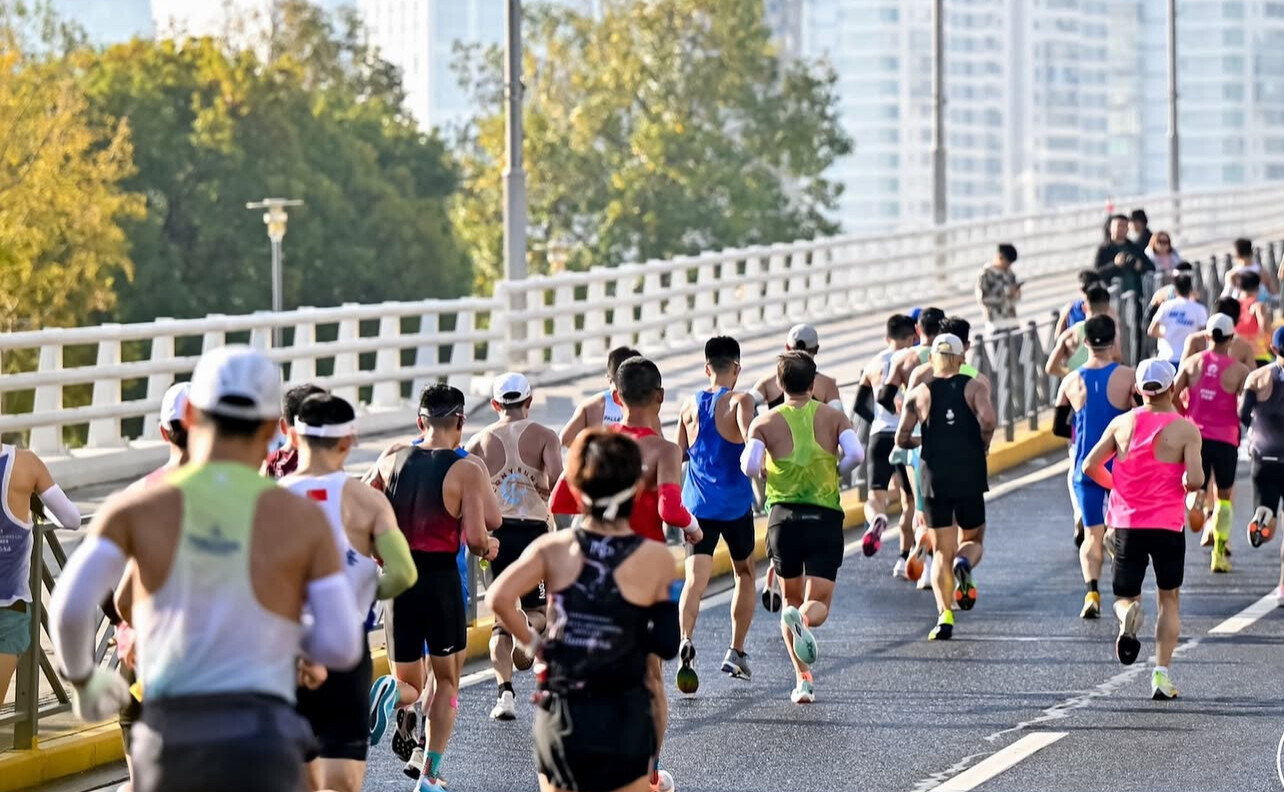
With ideal late-November conditions expected and Shanghai’s reputation for producing personal bests, the mass field is poised for another year of standout performances and unforgettable marathon moments.

Kosgei Targets First Win in Two Years — and a Course Record
Brigid Kosgei, whose 2:14:04 stood as the world record from 2019 to 2023, lines up for her third marathon of the year. The 31-year-old Kenyan has been consistently sharp in 2025—second in Hamburg (2:18:26) and again in Sydney (2:18:56).
A victory in Shanghai would be her first since Abu Dhabi 2023, but the stakes go beyond winning:
• The course record stands at 2:20:36 (Yebrgual Melese, 2018).
• Pacers have been asked to roll out at 2:17:50 pace, fast enough to challenge both the course mark and the Chinese all-comers’ record (2:18:09 by Ruti Aga, 2023).
Kosgei will not be alone. Two sub-2:20 performers stand in her way:
• Irine Cheptai (KEN) — PB 2:17:51, coming off strong runs in Chicago and Boston.
• Tiruye Mesfin (ETH) — PB 2:18:35, part of Ethiopia’s long history of dominance here.
Ethiopian women have won 10 of the last 14 editions, and Mesfin leads their charge again.
China brings a serious contender as well.
• Zhang Deshun, the No. 3 all-time Chinese marathoner (2:20:53 at Tokyo), returns just two weeks after winning the National Games.
Add in Bekelech Gudeta (ETH) — who won marathons in Seoul and Mexico City this year — and the women’s race becomes one of the most competitive in Shanghai’s history.
Four Sub-2:04 Ethiopians Lead Men’s Lineup
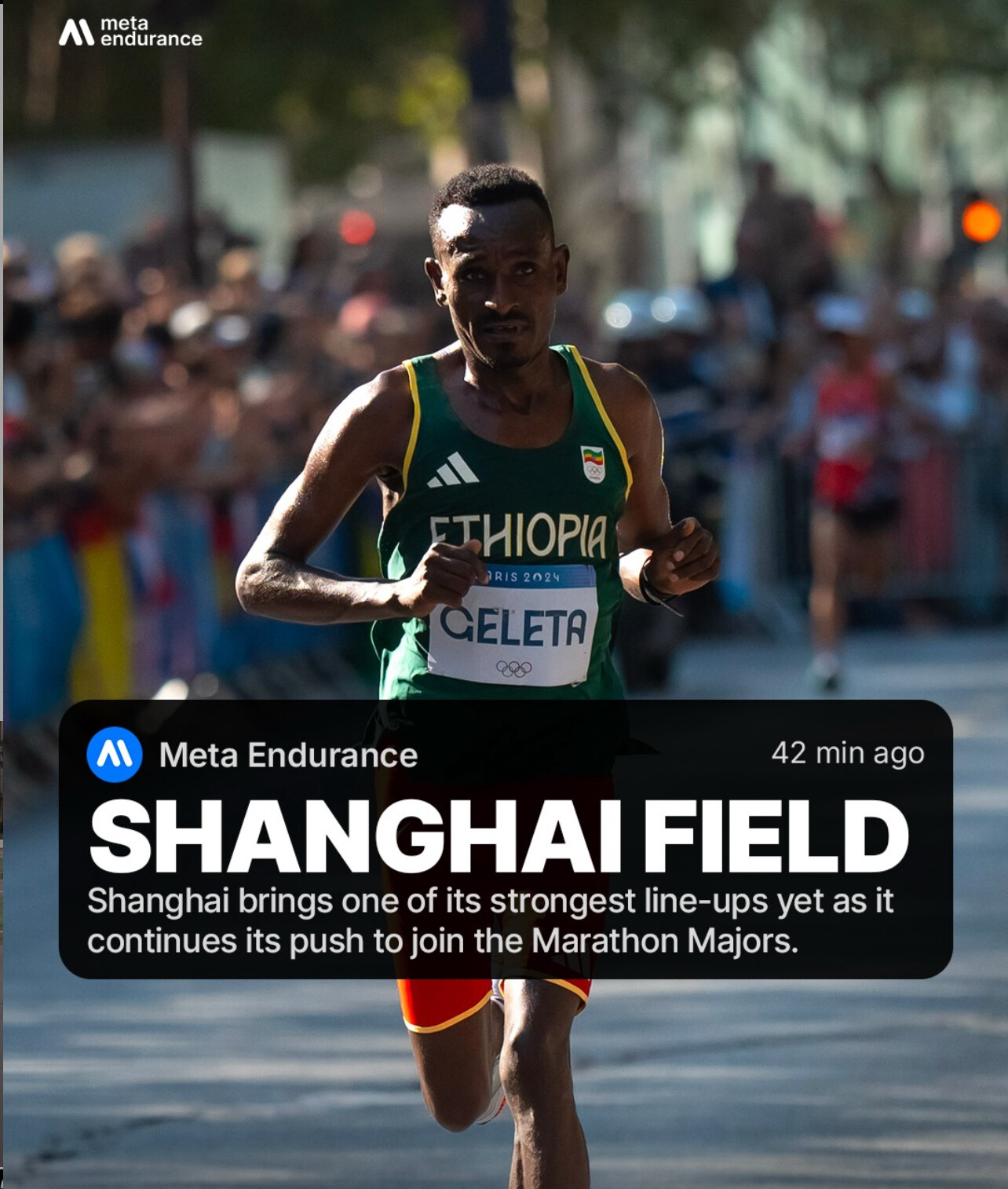
The men’s race may be even deeper. Ethiopia sends a quartet capable of pushing into all-time territory:
• Deresa Geleta (ETH) — 2:02:38, fastest in the field
• Birhanu Legese (ETH) — 2:02:48, two-time Tokyo champion
• Milkesa Mengesha (ETH) — 2024 Berlin winner
• Dawit Wolde (ETH) — former Xiamen champion
Geleta has been brilliant when healthy, clocking 2:02:38 in Valencia and 2:03:51 in Tokyo this year, though he dropped out of Wuxi and the World Championships. Legese tuned up with a 1:00:54 at the New Delhi Half.
But Ethiopia is far from guaranteed victory.
Kiptoo Kipchumba Returns to Defend His Title
Kenya’s Philimon Kiptoo Kipchumba, the 2023 champion, owns the Chinese all-comers’ record of 2:05:35 set in Shanghai. He hasn’t raced since placing 10th here last year, but he returns with unfinished business.
He is joined by a strong Kenyan contingent:
• Titus Kipruto — 2:04:54
• Solomon Kirwa Yego — 2:05:42
• Kenneth Keter — 2:05:53
• Edmond Kipngetich — 2:06:47
China’s biggest hope is Feng Peiyou, the second-fastest Chinese marathoner ever (2:07:06). A small improvement would break the national record of 2:06:57.
Pacers will target 2:58/km (≈2:05:00) — fast enough to threaten Kiptoo’s all-comers’ record.
Leading Entries
Women
• Brigid Kosgei (KEN) – 2:14:04
• Irine Chepet Cheptai (KEN) – 2:17:51
• Tiruye Mesfin (ETH) – 2:18:35
• Selly Chepyego Kaptich (KEN) – 2:20:03
• Zhang Deshun (CHN) – 2:20:53
• Bekelech Gudeta (ETH) – 2:21:36
• Veronicah Njeri Maina (KEN) – 2:24:46
• Xia Yuyu (CHN) – 2:25:45
• Wu Bing (CHN) – 2:26:01
• Li Meizhen (CHN) – 2:27:51
• Shen Ni (CHN) – 2:28:47
• Huang Xuemei (CHN) – 2:29:51
Men
• Deresa Geleta (ETH) – 2:02:38
• Birhanu Legese (ETH) – 2:02:48
• Dawit Wolde (ETH) – 2:03:48
• Haftu Teklu (ETH) – 2:04:42
• Titus Kipruto (KEN) – 2:04:54
• Philimon Kiptoo Kipchumba (KEN) – 2:05:35
• Solomon Kirwa Yego (KEN) – 2:05:42
• Kenneth Keter (KEN) – 2:05:53
• Edmond Kipngetich (KEN) – 2:06:47
• Feng Peiyou (CHN) – 2:07:06
• Challa Gossa (ETH) – 2:07:32
• Wu Xiangdong (CHN) – 2:08:04
by World Athletics
Login to leave a comment
Shanghai International Marathon
Shanghai International Marathon has established itself as the marquee running event on China’s Marathon calendar. Every November, tens of thousand participants run passing the many historical places of this city such as Bund Bull, Customs House, Shanghai Museum, Shanghai Grand Theater, Shanghai Exhibition center, Jing’an Temple, Nan Pu Bridge, Lu Pu Bridge, Long Hua Temple, Shanghai Stadium. The course records...
more...Andreas Almgren Breaks European Record as Agnes Ngetich Runs Second Fastest Half Marathon Ever in Valencia
Valencia, Spain — October 26, 2025 - The 2025 Valencia Half Marathon Trinidad Alfonso Zurich once again lived up to its global reputation as the fastest half marathon on Earth. The flat, coastal course produced extraordinary performances from both the men’s and women’s elite fields — highlighted by Sweden’s Andreas Almgren becoming the first European ever to break 59 minutes, and Kenya’s Agnes Jebet Ngetich clocking the second-fastest women’s time in history.
MEN’S RACE: ALMGREN MAKES HISTORY AS KEJELCHA DOMINATES
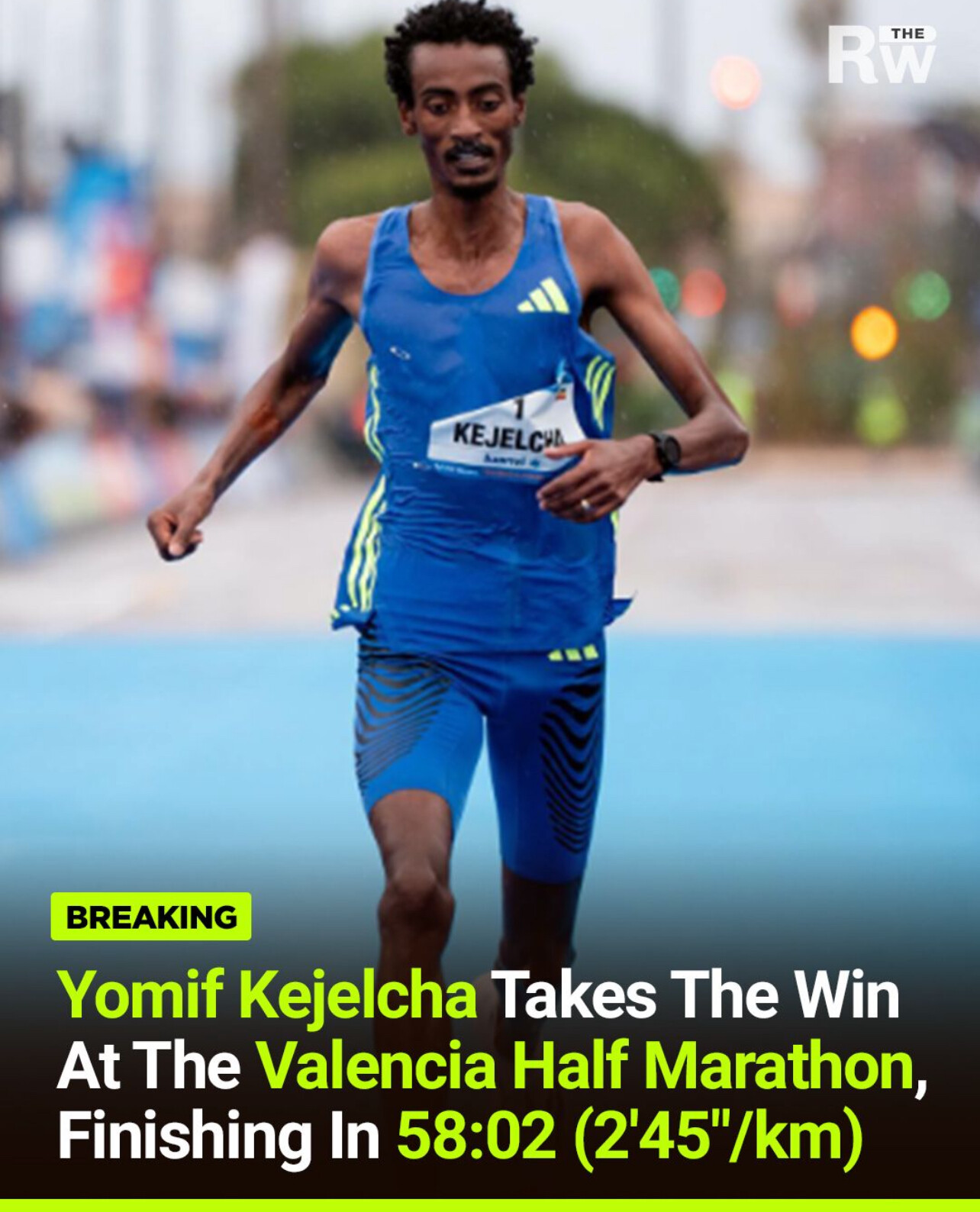
Ethiopia’s Yomif Kejelcha retained his Valencia title with a blistering 58:02, further cementing his place among the all-time greats. Though it was outside the current world record of 56:42, set earlier this year by Uganda’s Jacob Kiplimo at the Barcelona Half Marathon, Kejelcha’s effort was commanding from start to finish.
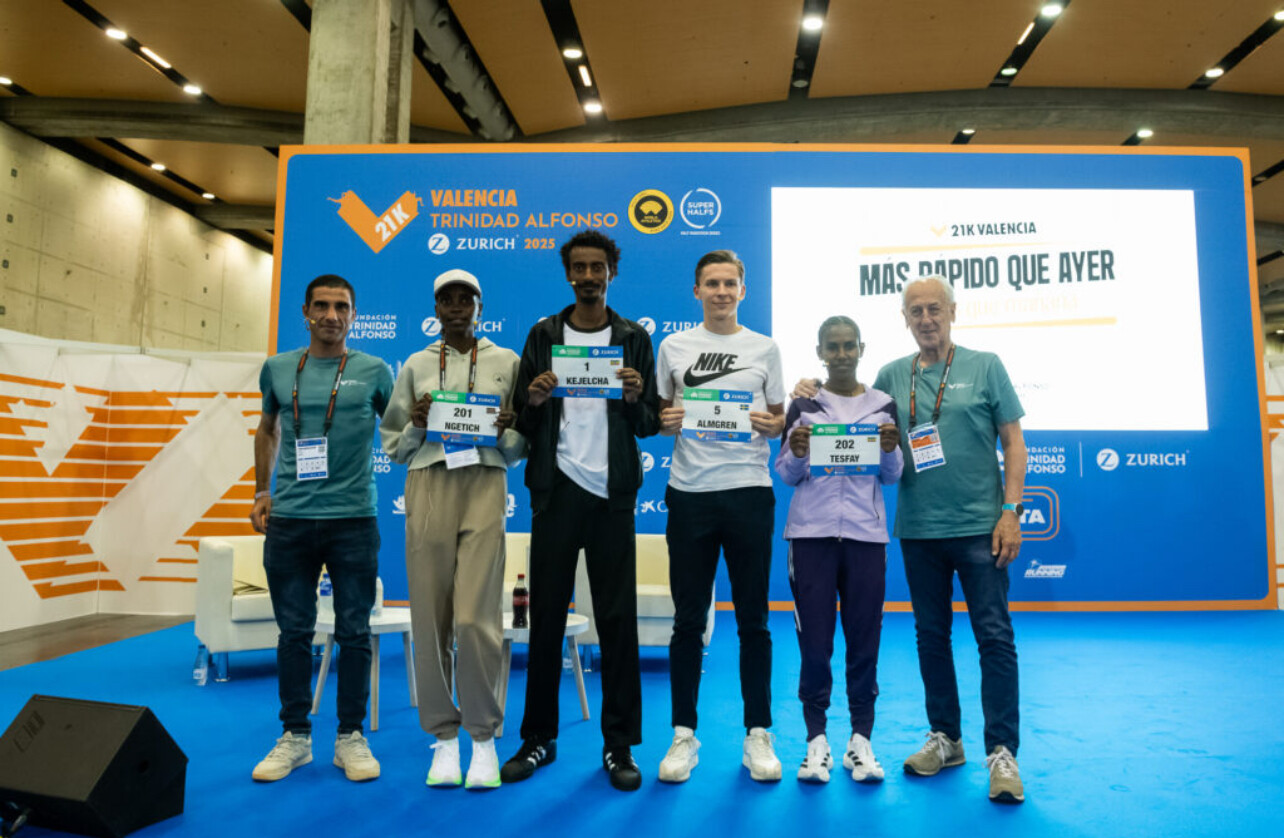
Running in his slipstream, Rodrigue Kwizera of Burundi and Brian Kibor of Kenya both crossed in 58:39, but the day’s biggest breakthrough came from Sweden’s Andreas Almgren, who stormed home in 58:41 — a stunning new European record.
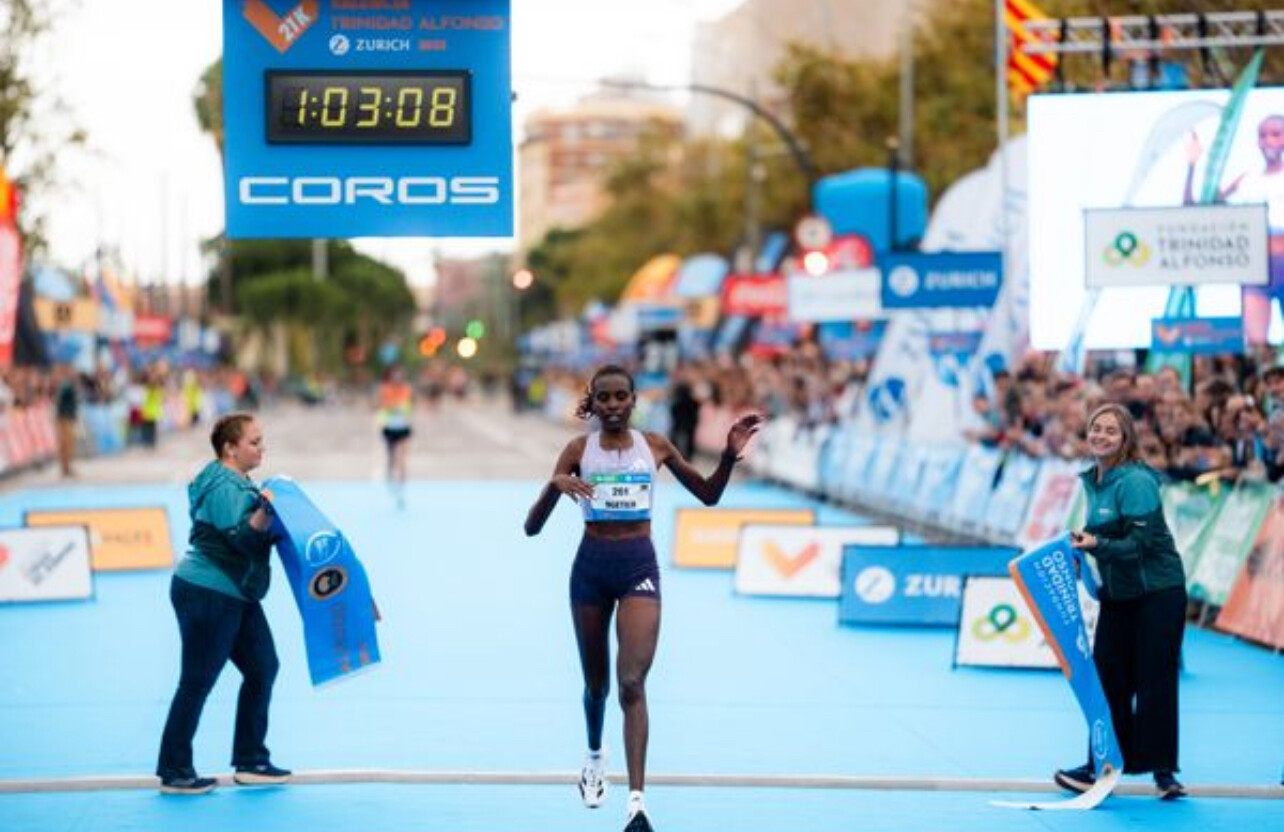
The 29-year-old Almgren shattered the previous continental best of 59:13, set by Julien Wanders in 2019, and became the first European athlete in history to dip under the 59-minute barrier.
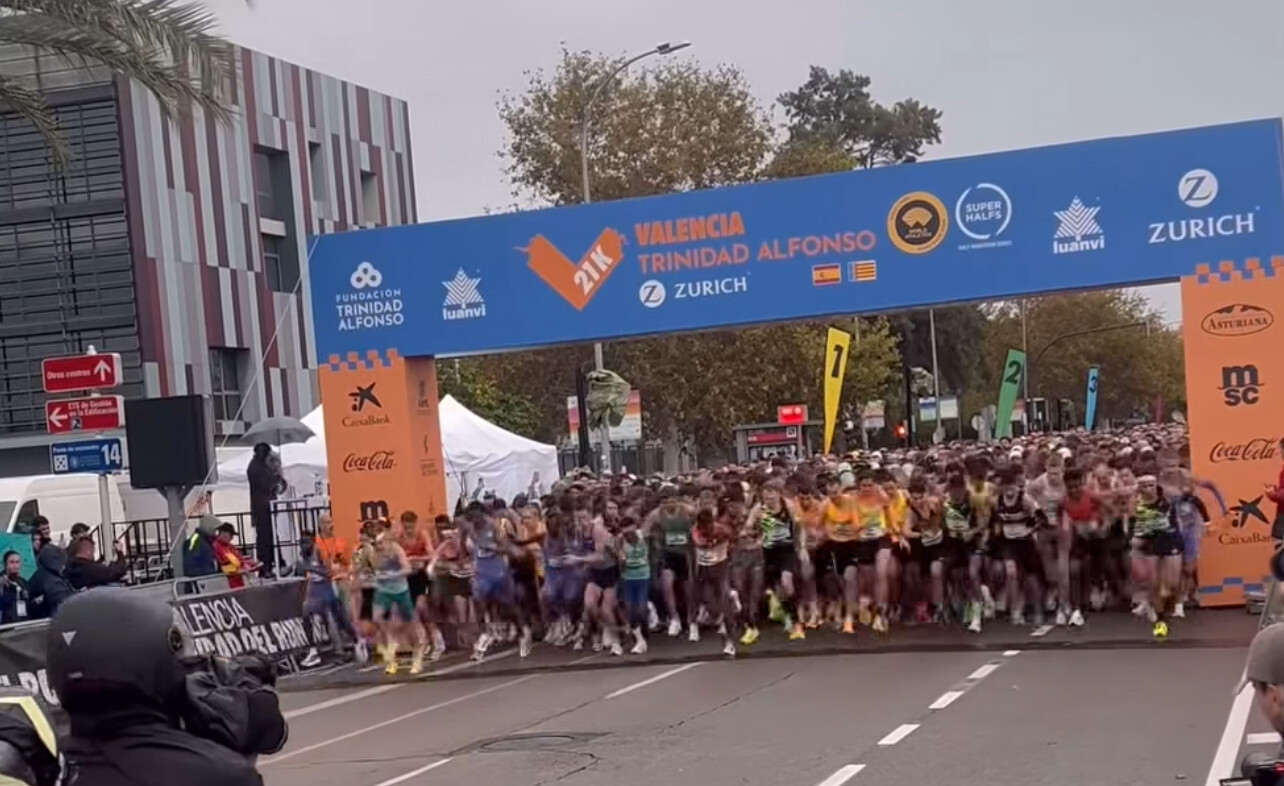
“This means everything,” Almgren said after the finish. “I came to Valencia knowing it was the place for fast times, but to run 58:41 — it’s beyond my dreams. Europe is back in the game.”
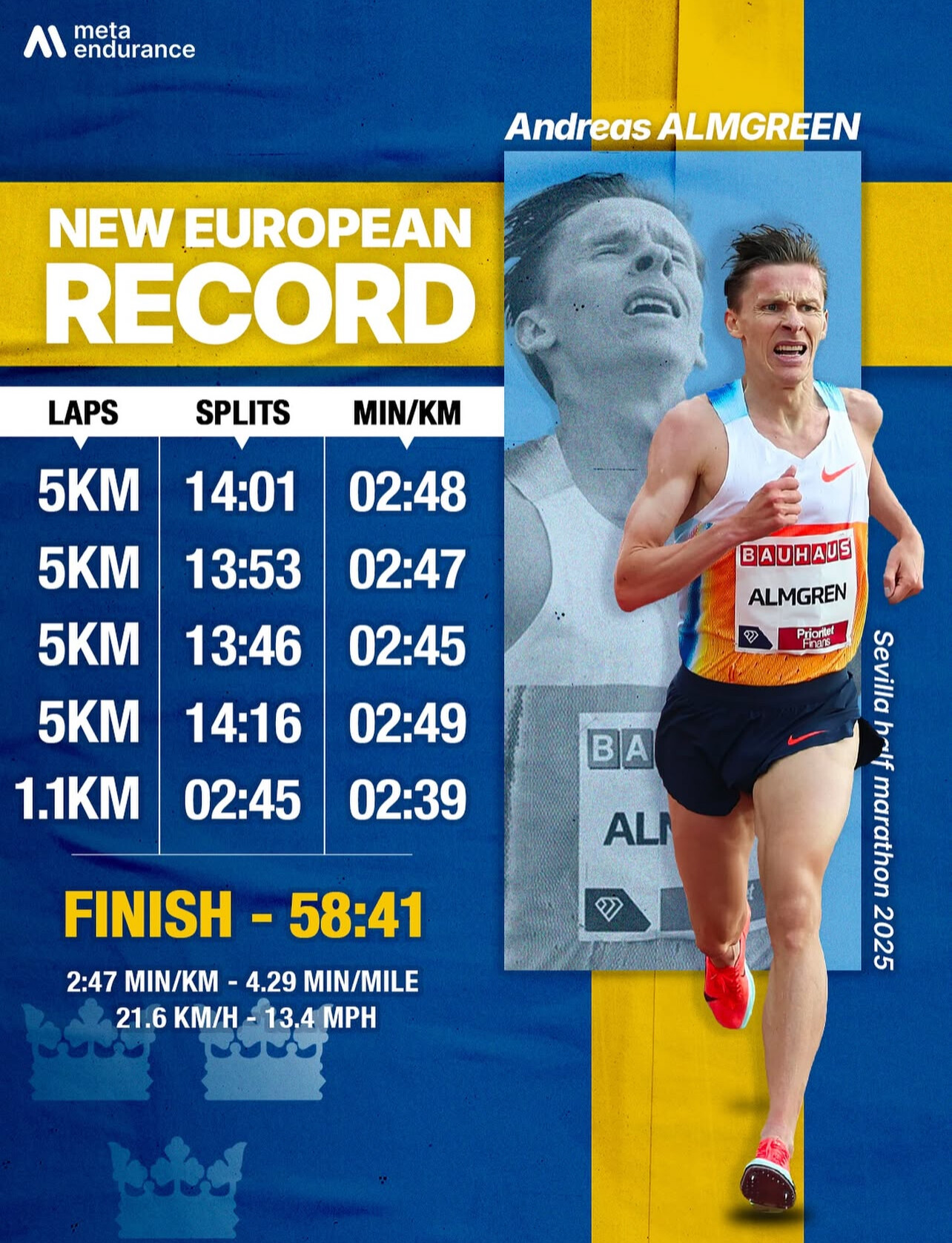
Kejelcha went out hard with early splits suggesting another sub-58 performance might be possible, hitting 10K in around 27:13. Slight headwinds in the final kilometers kept him just off world-record pace, but his margin of control was never in doubt.
WOMEN’S RACE: NGETICH CLOSES IN ON THE WORLD RECORD
Kenya’s Agnes Jebet Ngetich produced yet another masterpiece on the streets of Valencia, winning the women’s title in 1:03:08, the second-fastest time ever recorded for the half marathon. Only Letesenbet Gidey’s world record of 1:02:52, also set in Valencia in 2021, stands ahead of her on the all-time list.
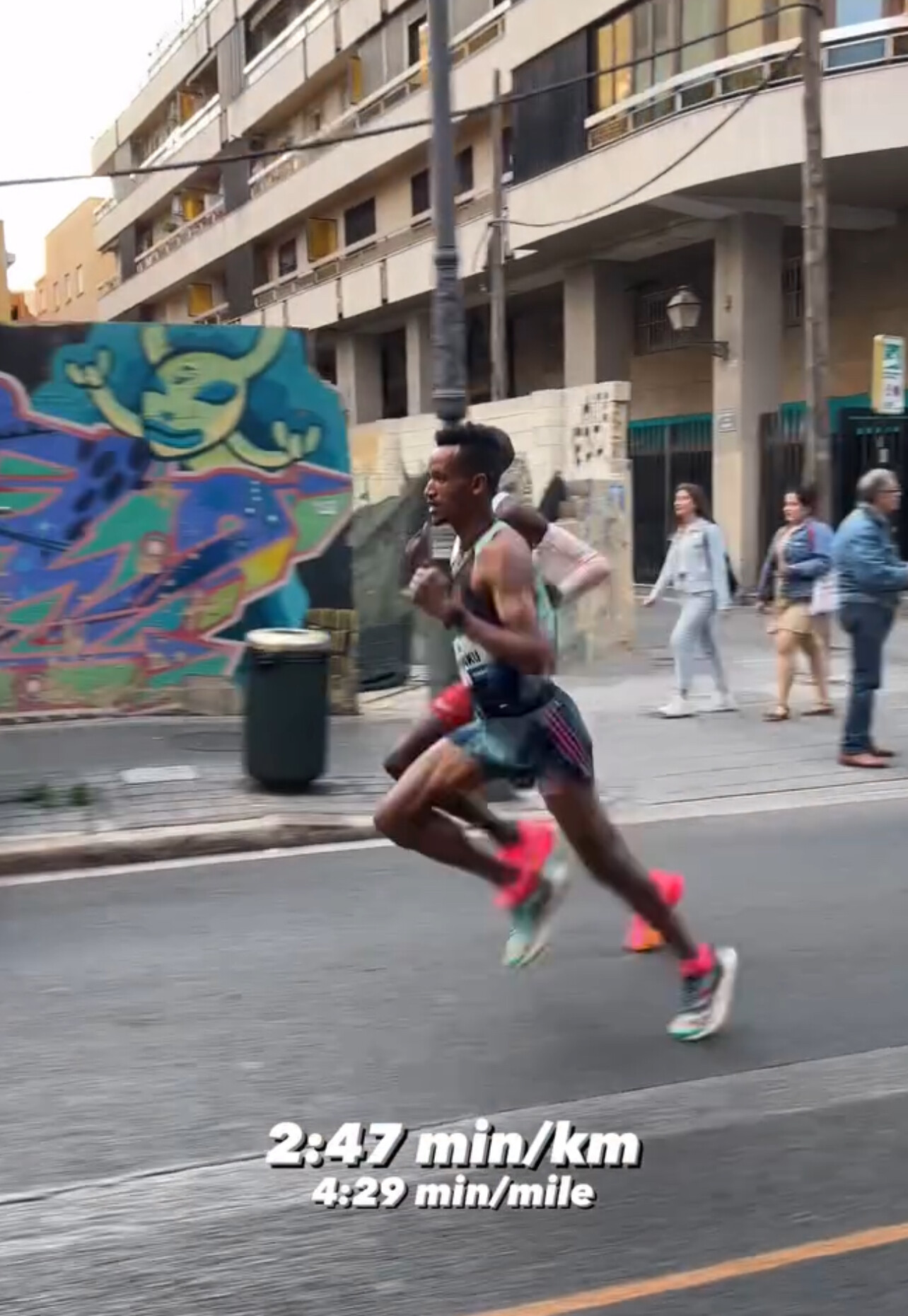
Ngetich went out aggressively, passing 10K in 29:28, well inside world-record pace. But a headwind over the final five kilometers cost her valuable seconds. Despite missing the record, her performance once again showcased her dominance and her special connection with the streets of Valencia, where she has repeatedly delivered career-defining runs.
“Valencia brings out the best in me,” Ngetich said. “I felt strong, and even though I missed the record, I know it’s within reach. I’ll be back.”
Ethiopia’s Fotyen Tesfay took second in 1:05:11, while Kenya’s Veronica Loleo ran a superb personal best of 1:05:46 to finish third. The top performances underscored the remarkable depth and quality in women’s distance running today.
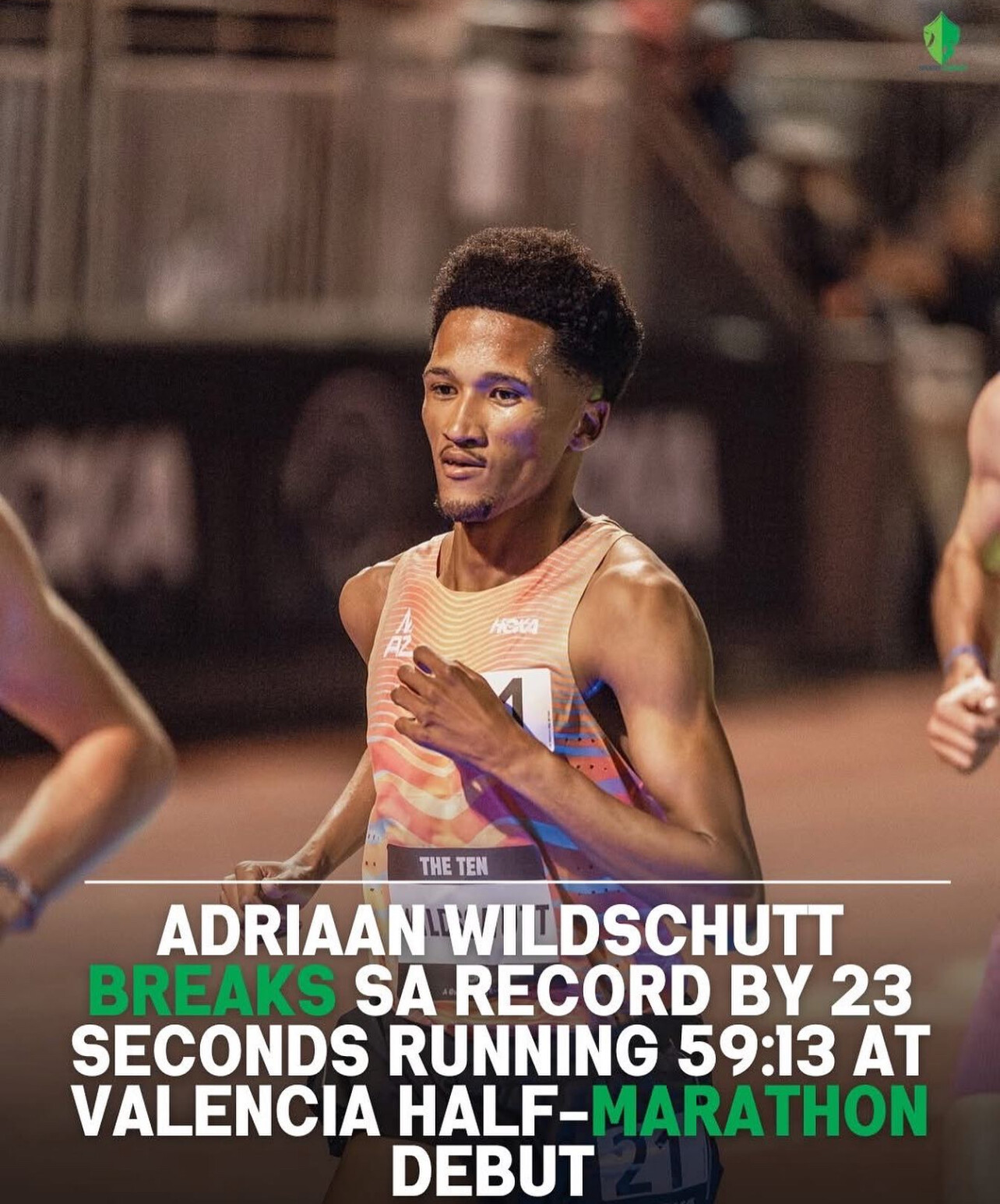
RACE CONDITIONS AND COURSE
Cool temperatures, light humidity, and minimal wind set the stage for another record-friendly day in Valencia. The famously flat and fast course — celebrated for its long straightaways and sea-level setting — once again proved why it’s the go-to destination for athletes chasing lifetime bests and global marks.
Pacemakers set an aggressive tempo from the start in both races, and despite minor breezes in the final stretch, the results confirmed that Valencia remains the gold standard for road racing worldwide.
TOP RESULTS
Men’s Elite Results
1. Yomif Kejelcha (Ethiopia) – 58:02
2. Rodrigue Kwizera (Burundi) – 58:39
3. Brian Kibor (Kenya) – 58:39
4. Andreas Almgren (Sweden) – 58:41 (European Record)
5. Milkesa Mengesha (Ethiopia) – 59:12
6. Boniface Kibiwott (Kenya) – 59:16
7. Sebastian Sawe (Kenya) – 59:22
8. Mohamed Essa (Morocco) – 59:45
9. Tadese Worku (Ethiopia) – 59:58
10. Gabriel Geay (Tanzania) – 1:00:02
Women’s Elite Results
1. Agnes Jebet Ngetich (Kenya) – 1:03:08 (Second-fastest time ever)
2. Fotyen Tesfay (Ethiopia) – 1:05:11
3. Veronica Loleo (Kenya) – 1:05:46 (Personal Best)
4. Irine Cheptai (Kenya) – 1:06:03
5. Melat Kejeta (Germany) – 1:06:37
6. Viola Chepngeno (Kenya) – 1:06:44
7. Tsige Haileslase (Ethiopia) – 1:06:56
8. Eilish McColgan (Great Britain) – 1:07:09
9. Selly Chepyego (Kenya) – 1:07:16
10. Marta Galimany (Spain) – 1:08:21
WHY VALENCIA CONTINUES TO INSPIRE THE WORLD
For more than a decade, Valencia has been the epicenter of half-marathon excellence. From Gidey’s women’s world record in 2021, to Kandie’s men’s mark in 2020, to Kejelcha’s near-record runs and now Almgren’s European breakthrough — the course has become synonymous with speed and history.
This year’s edition reinforced three powerful truths about modern distance running:
1. Yomif Kejelcha remains one of the greatest half-marathon specialists of all time.
2. Agnes Jebet Ngetich has brought women’s road racing to new heights, now sitting just seconds shy of a world record.
3. Andreas Almgren’s European record symbolizes a resurgent era for European endurance running.
FINAL SUMMARY
Event: 2025 Valencia Half Marathon Trinidad Alfonso Zurich
Date: October 26, 2025
Location: Valencia, Spain
Men’s Champion: Yomif Kejelcha (Ethiopia) – 58:02
Women’s Champion: Agnes Jebet Ngetich (Kenya) – 1:03:08 (Second-fastest ever)
European Record: Andreas Almgren (Sweden) – 58:41
by Boris Baron
Login to leave a comment
Valencia Half Marathon
The Trinidad Alfonso Valencia Half Marathon has become one of the top running events in the world. Valencia is one of the fastest half marathon in the world. The race, organized by SD Correcaminos Athletics Club, celebrated its silver anniversary in style with record participation, record crowd numbers, Silver label IAAF accreditation and an atmosphere that you will not find...
more...Sawe and Wanjiru Lead Record-Setting Fields at Berlin Marathon
A world-class lineup is set for the 51st edition of the BMW Berlin Marathon on September 21. Kenyans Sabastian Sawe and Rosemary Wanjiru headline the fields with personal bests of 2:02:05 and 2:16:14, respectively, making them clear favorites. Yet the men’s race also includes defending champion Milkesa Mengesha of Ethiopia, who clocked his 2:03:17 PB on this course last year.
The men’s start list features 10 athletes with personal bests under 2:05, while six women have already broken 2:19. By the numbers, it is the strongest PO Berlin lineup in history. The flat and fast course has been the stage for 13 world records over the past five decades, and another swift contest seems inevitable.
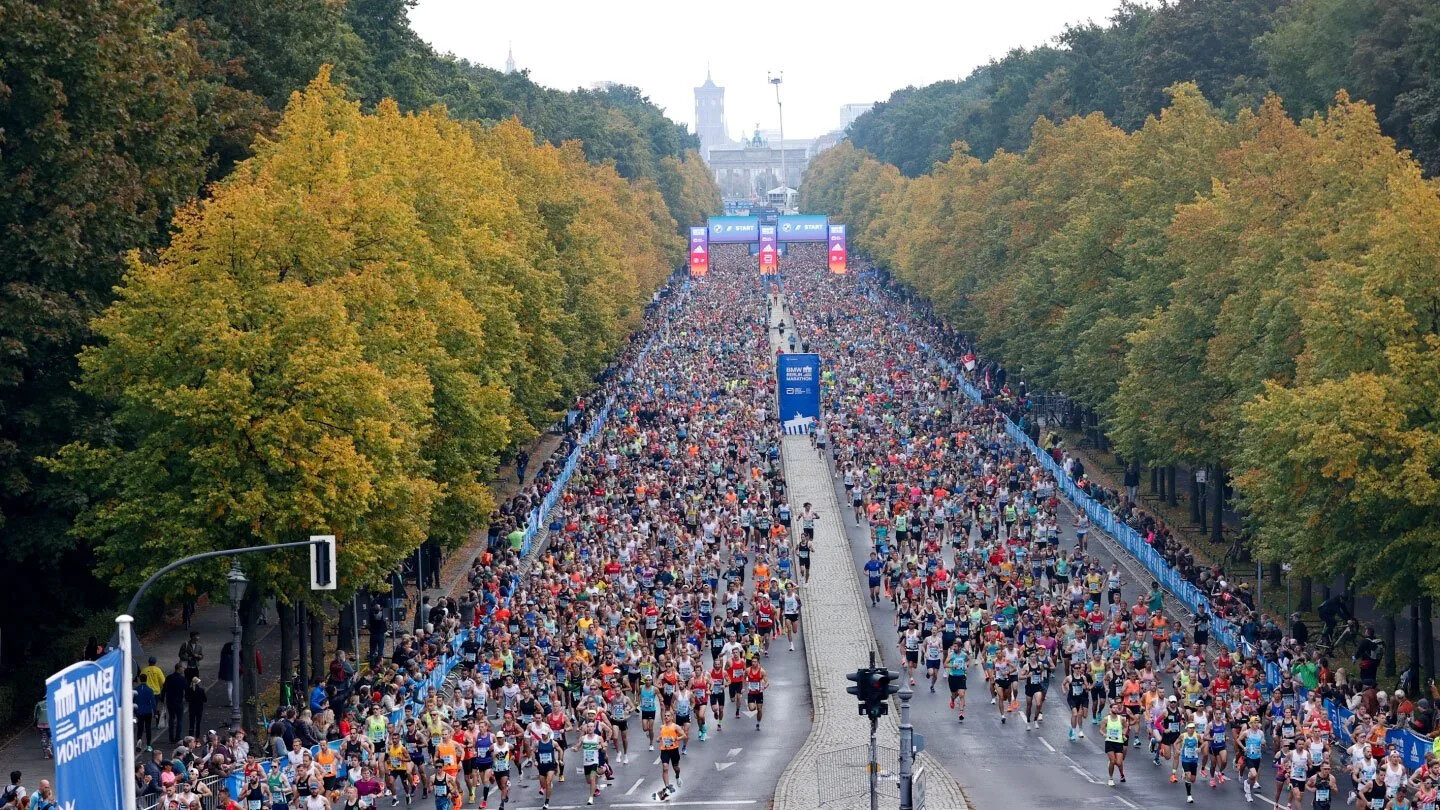
Organizers also achieved something remarkable: both Japanese marathon record holders will compete. Kengo Suzuki holds the men’s national record at 2:04:56, while Honami Maeda is the fastest Japanese woman of all time with her 2:18:59 mark. For the first time in at least 25 years, a city marathon outside Japan has managed to bring together both record holders, underscoring Berlin’s global prestige in long-distance running.
Selected Top Entries
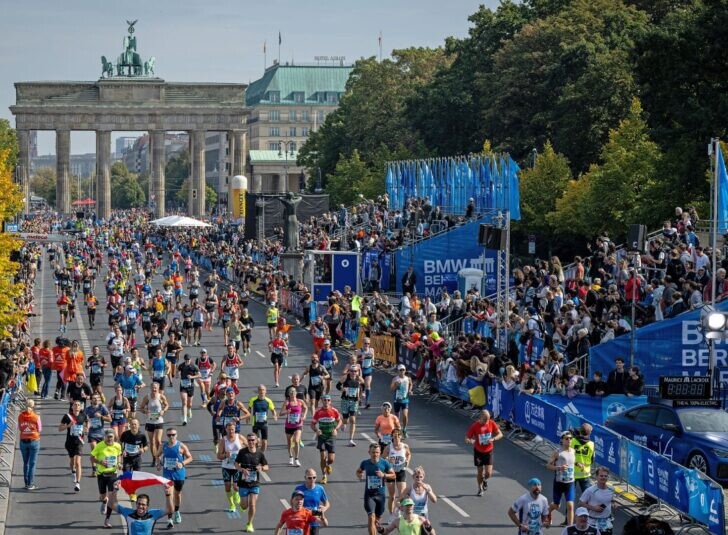
Men
• Sabastian Sawe (KEN) – 2:02:05, Valencia 2024
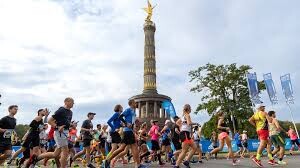
• Gabriel Geay (TAN) – 2:03:00, Valencia 2022
• Milkesa Mengesha (ETH) – 2:03:17, Berlin 2024
• Haymanot Alew (ETH) – 2:03:31, Berlin 2024
• Guye Adola (ETH) – 2:03:46, Berlin 2017
• Daniel Mateiko (KEN) – 2:04:24, Valencia 2024
• Kengo Suzuki (JPN) – 2:04:56, Otsu 2021
Women
• Rosemary Wanjiru (KEN) – 2:16:14, Tokyo 2024
• Degitu Azimeraw (ETH) – 2:17:58, London 2021
• Dera Dida (ETH) – 2:18:32, Dubai 2025
• Tigist Girma (ETH) – 2:18:52, Valencia 2022
• Honami Maeda (JPN) – 2:18:59, Osaka 2024
• Sharon Chelimo (KEN) – 2:19:33, Barcelona 2025
With such depth across both fields, the 2025 BMW Berlin Marathon is primed for fireworks—and perhaps even another historic performance on the sport’s fastest stage.
by Boris Baron
Login to leave a comment
BMW Berlin Marathon
The story of the BERLIN-MARATHON is a story of the development of road running. When the first BERLIN-MARATHON was started on 13th October 1974 on a minor road next to the stadium of the organisers‘ club SC Charlottenburg Berlin 286 athletes had entered. The first winners were runners from Berlin: Günter Hallas (2:44:53), who still runs the BERLIN-MARATHON today, and...
more...Men’s Elite Field Set for a Sizzling Showdown at the 2025 Berlin Marathon
Berlin, Germany – September 29, 2025 (Race Day)
With its flat, fast course and history of record-breaking performances, the BMW Berlin Marathon has become a magnet for the world’s best distance runners—and this year is no exception.
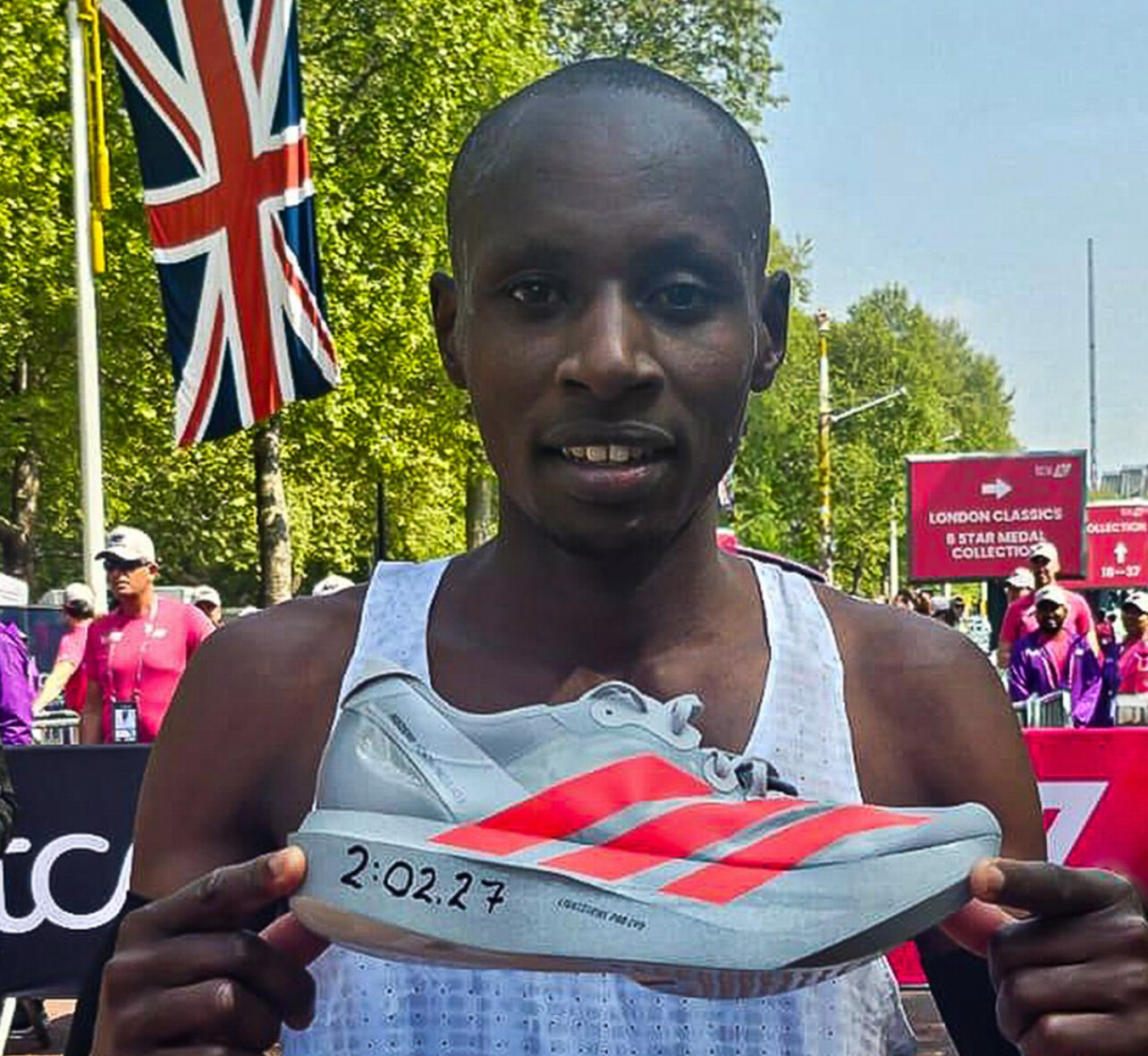
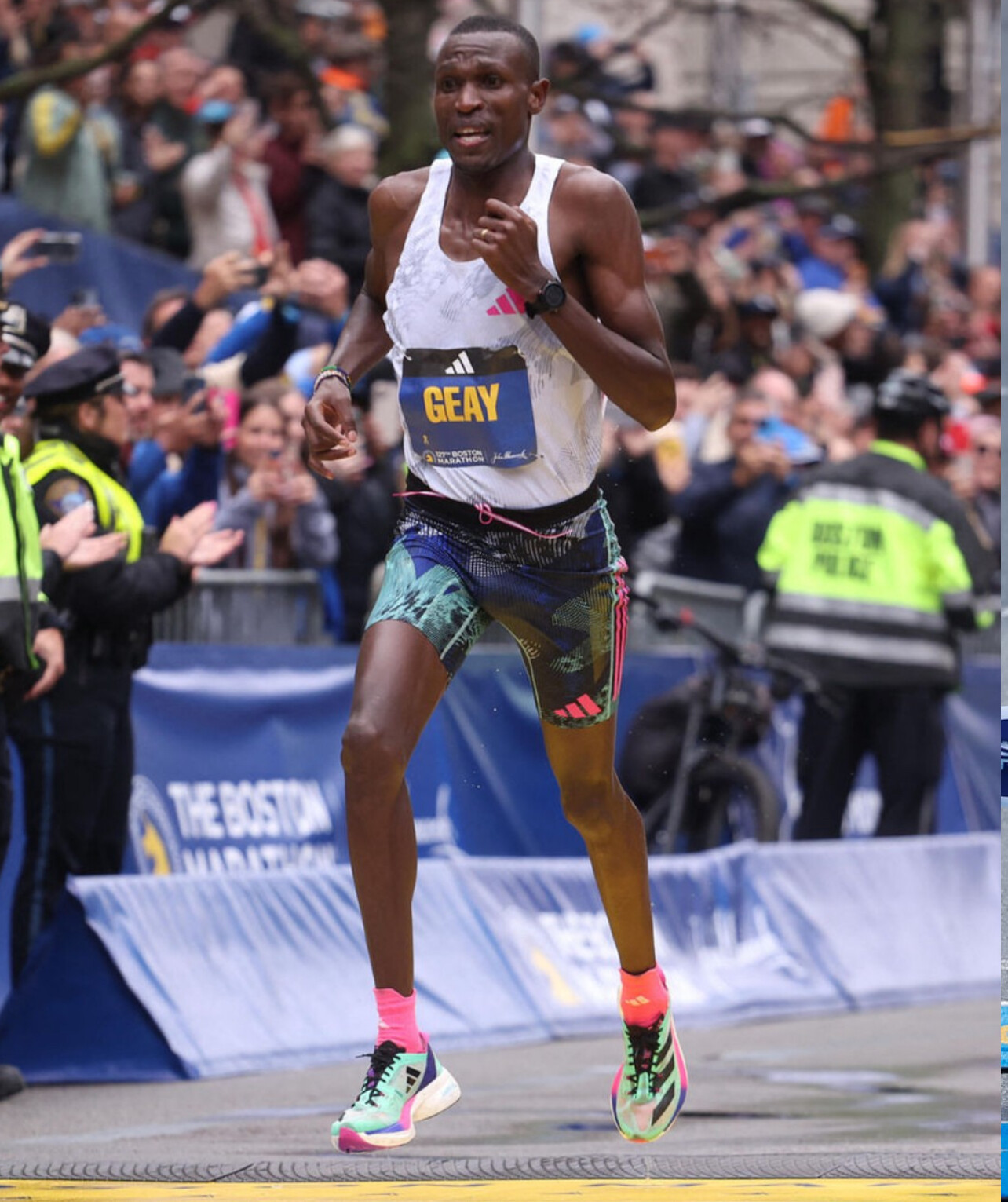
The 2025 men’s elite field is stacked with sub-2:05 talent from Kenya, Ethiopia, Tanzania, and Japan, including several proven champions and emerging stars. On September 29, all eyes will be on Berlin to see if the next marathon milestone can be broken.
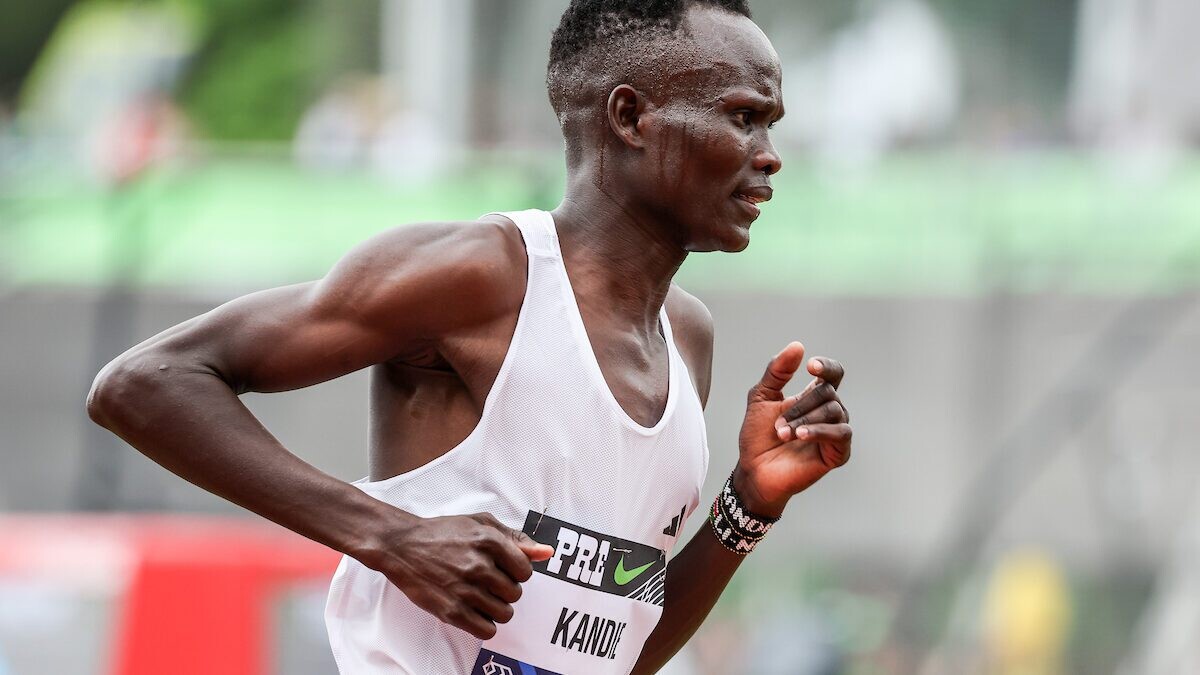
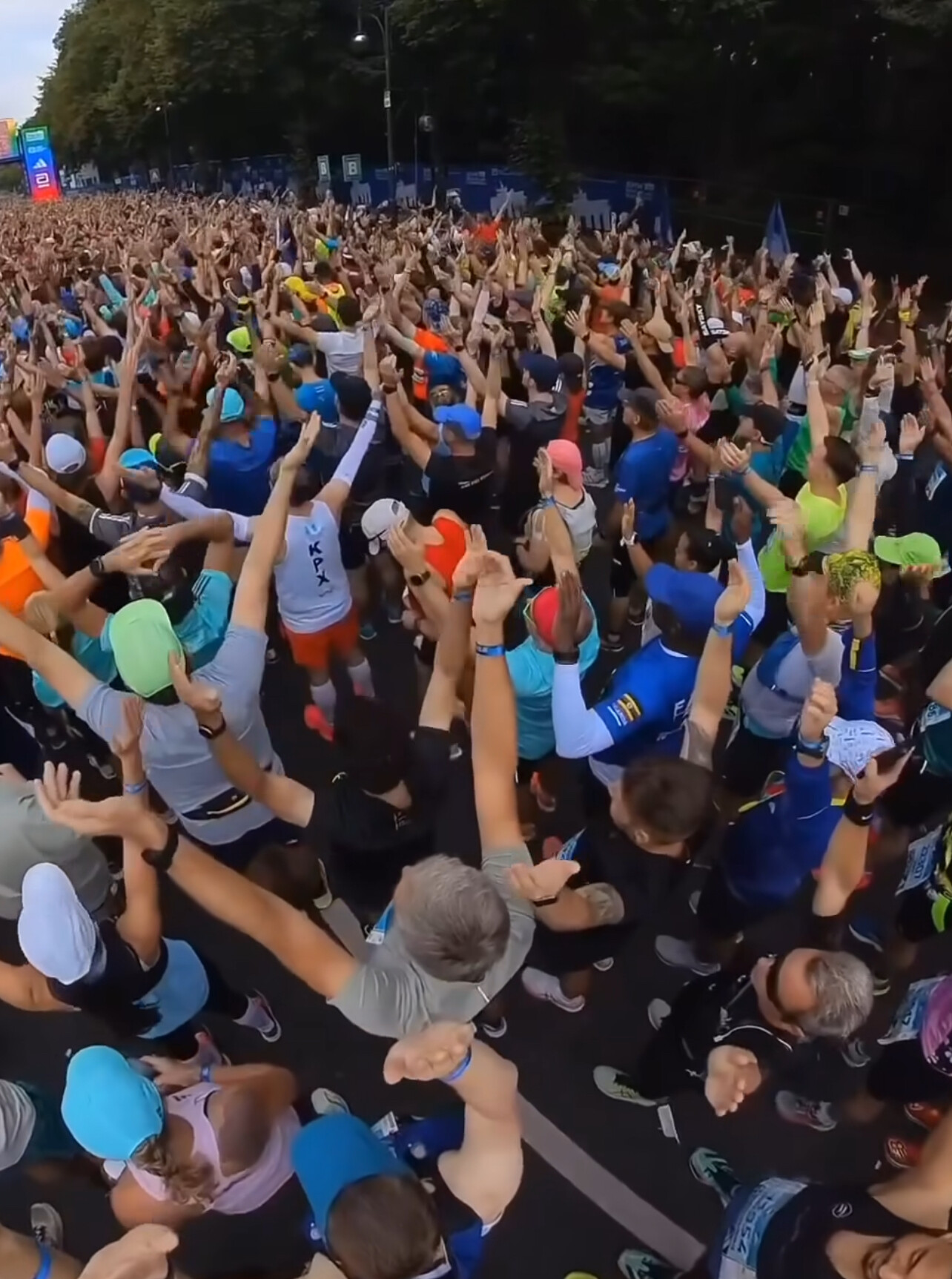
Top Contenders and Their Personal Bests
|
Name |
Country |
Personal Best |
|
Sabastian Sawe |
KEN |
2:02:05 |
|
Gabriel Gerald Geay |
TAN |
2:03:00 |
|
Milkesa Mengesha |
ETH |
2:03:17 |
|
Haymanot Alew |
ETH |
2:03:31 |
|
Guye Adola |
ETH |
2:03:46 |
|
Leul Gebresilase |
ETH |
2:04:02 |
|
Tesfaye Deriba |
ETH |
2:04:13 |
|
Daniel Mateiko |
KEN |
2:04:24 |
|
Haftu Teklu |
ETH |
2:04:42 |
|
Chimdessa Debele |
ETH |
2:04:44 |
|
Kengo Suzuki |
JPN |
2:04:56 |
|
Abel Kirui |
KEN |
2:05:04 |
|
Chala Regasa |
ETH |
2:05:06 |
|
Samwel Mailu |
KEN |
2:05:08 |
|
Yihunilign Adane |
ETH |
2:05:3 |
|
|
|
Kenya and Ethiopia Headline the Race
Kenya’s Sabastian Sawe, with a PB of 2:02:05, enters as the top seed. He’s followed closely by Tanzania’s Gabriel Geay, who made headlines in Boston and New York with aggressive front-running. Ethiopia is sending a deep and dangerous lineup—including Milkesa Mengesha, Haymanot Alew, and veteran Guye Adola (the 2021 Berlin champion).
Daniel Mateiko of Kenya, a former half marathon standout, will look to solidify his position as a full marathon threat, while Abel Kirui, the two-time world champion, continues to defy age with elite performances.
The Global Wildcard: Japan’s Kengo Suzuki
With a 2:04:56 personal best, Kengo Suzuki is the fastest Japanese marathoner ever and could be a serious factor if conditions align. His presence adds global depth to a field heavily dominated by East Africa.
Fast Times Almost Guaranteed
Berlin’s pancake-flat course, combined with cool fall weather and top-tier pacers, means fast times are almost inevitable. With six men holding PBs under 2:04 and over a dozen under 2:05, there’s a strong chance we could see a sub-2:03 winner, or even a new course record.
While the official world record still stands at 2:00:35 (set in 2023 by Eliud Kipchoge), several in this year’s field have the credentials—and ambition—to challenge history.
Race Day Outlook
• Date: Sunday, September 29, 2025
• Course: Flat and record-ready, through the streets of Berlin
• Weather Forecast: Typically cool (expected 11–13°C), ideal for fast times
• Live Coverage: Streaming and TV coverage expected worldwide
Stay tuned to My Best Runs for full coverage, live updates, and post-race analysis from Berlin!
by Boris Baron
Login to leave a comment
BMW Berlin Marathon
The story of the BERLIN-MARATHON is a story of the development of road running. When the first BERLIN-MARATHON was started on 13th October 1974 on a minor road next to the stadium of the organisers‘ club SC Charlottenburg Berlin 286 athletes had entered. The first winners were runners from Berlin: Günter Hallas (2:44:53), who still runs the BERLIN-MARATHON today, and...
more...Sebastian Sawe Stuns Legendary Field to Win 2025 London Marathon
In a race billed as the most competitive men’s marathon field ever assembled, Kenya’s Sebastian Sawe delivered a performance for the ages, clinching victory at the 2025 London Marathon with a time of 2:02:27.
Sawe, 30, who burst onto the marathon scene with a 2:02:05 debut in Valencia last December, showcased his prowess by outpacing a field laden with Olympic champions and world record holders. His decisive move came after the 30-kilometer mark, where he surged ahead, leaving his competitors trailing. This win marks only his second marathon, solidifying his status as one of the sport’s rising stars.
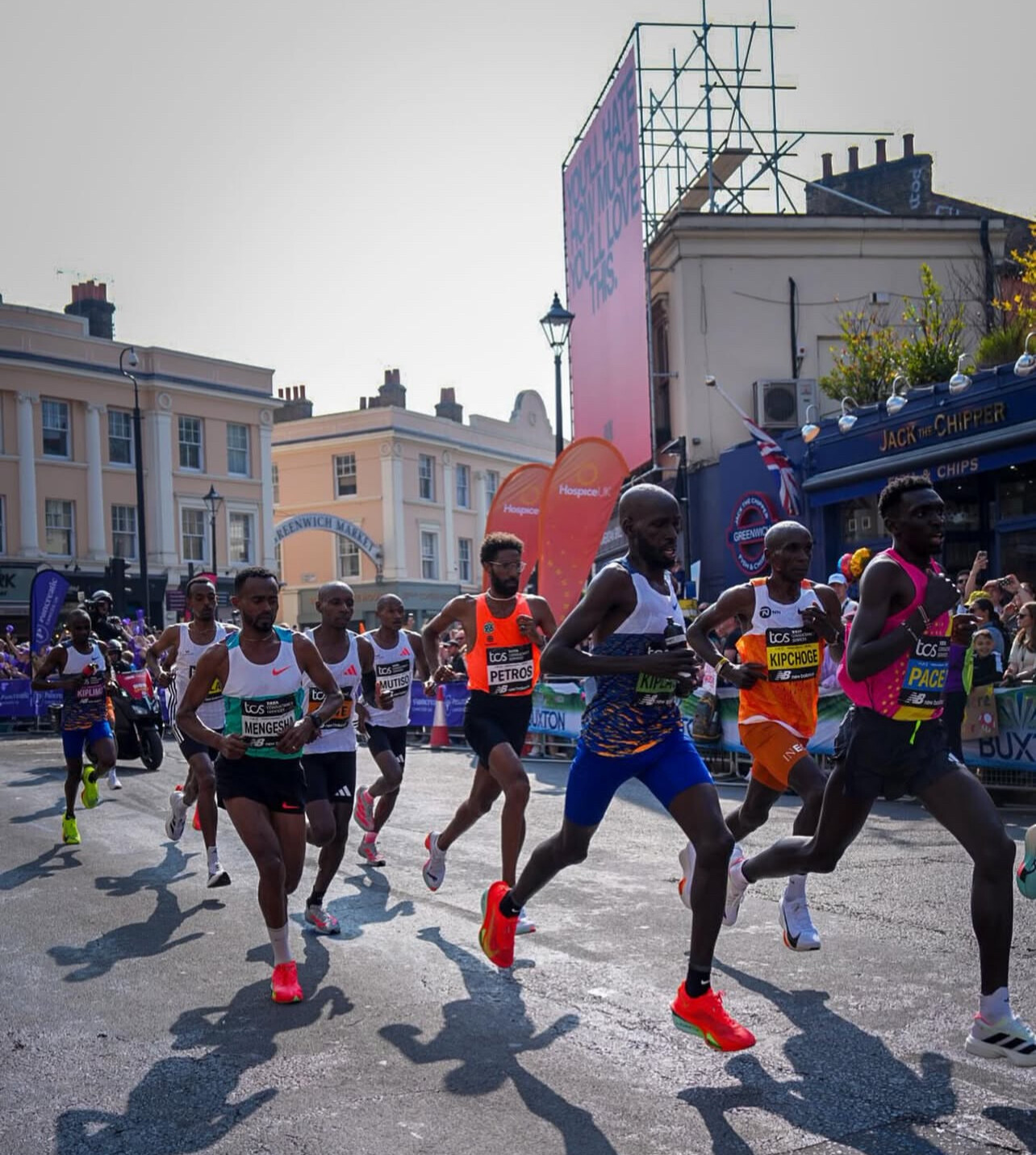
Men’s Elite Top 25 Finishers
Top 25 Men’s Elite Finishers
1. Sabastian Sawe (KEN) – 2:02:27
2. Jacob Kiplimo (UGA) – 2:03:37
3. Alexander Mutiso Munyao (KEN) – 2:04:20
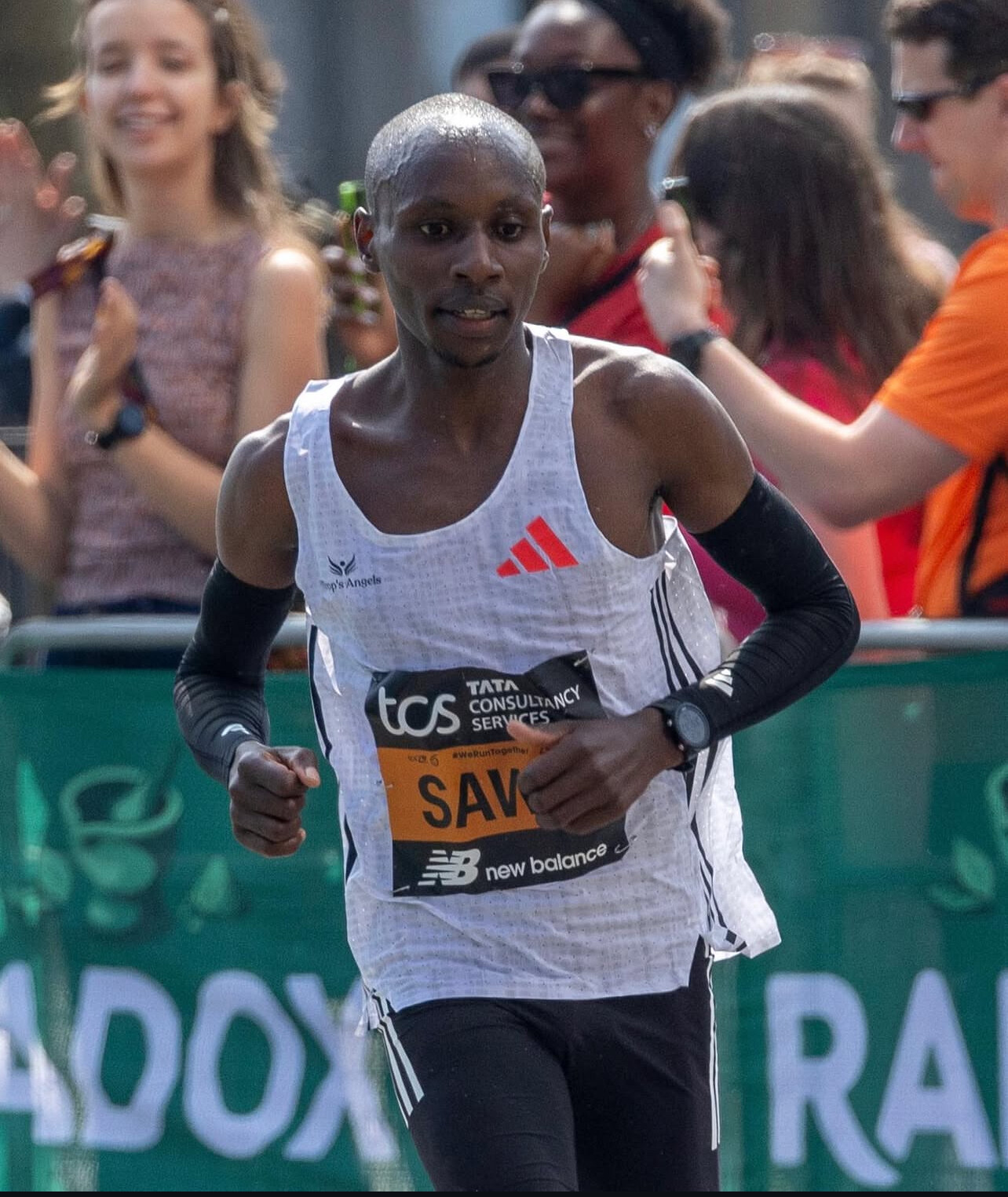
4. Abdi Nageeye (NED) – 2:04:20
5. Tamirat Tola (ETH) – 2:04:42
6. Eliud Kipchoge (KEN) – 2:05:25
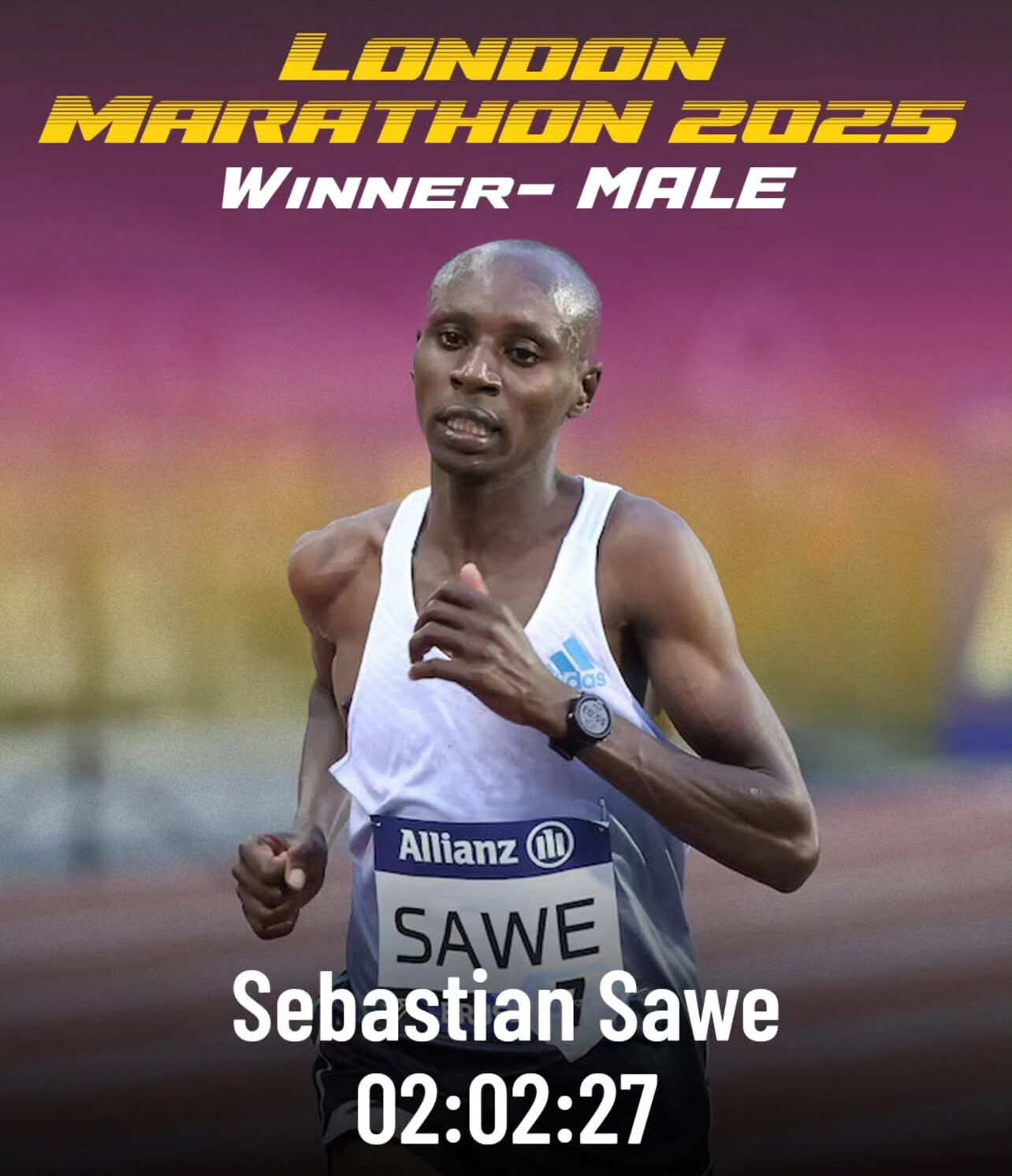
7. Hillary Kipkoech (KEN) – 2:06:05
8. Amanal Petros (GER) – 2:06:30
9. Mahamed Mahamed (GBR) – 2:08:52
10. Milkesa Mengesha (ETH) – 2:09:01
11. Andrew Buchanan (AUS) – 2:09:11
12. Adam Lipschitz (RSA) – 2:09:48
13. Sondre Nordstad Moen (NOR) – 2:09:57
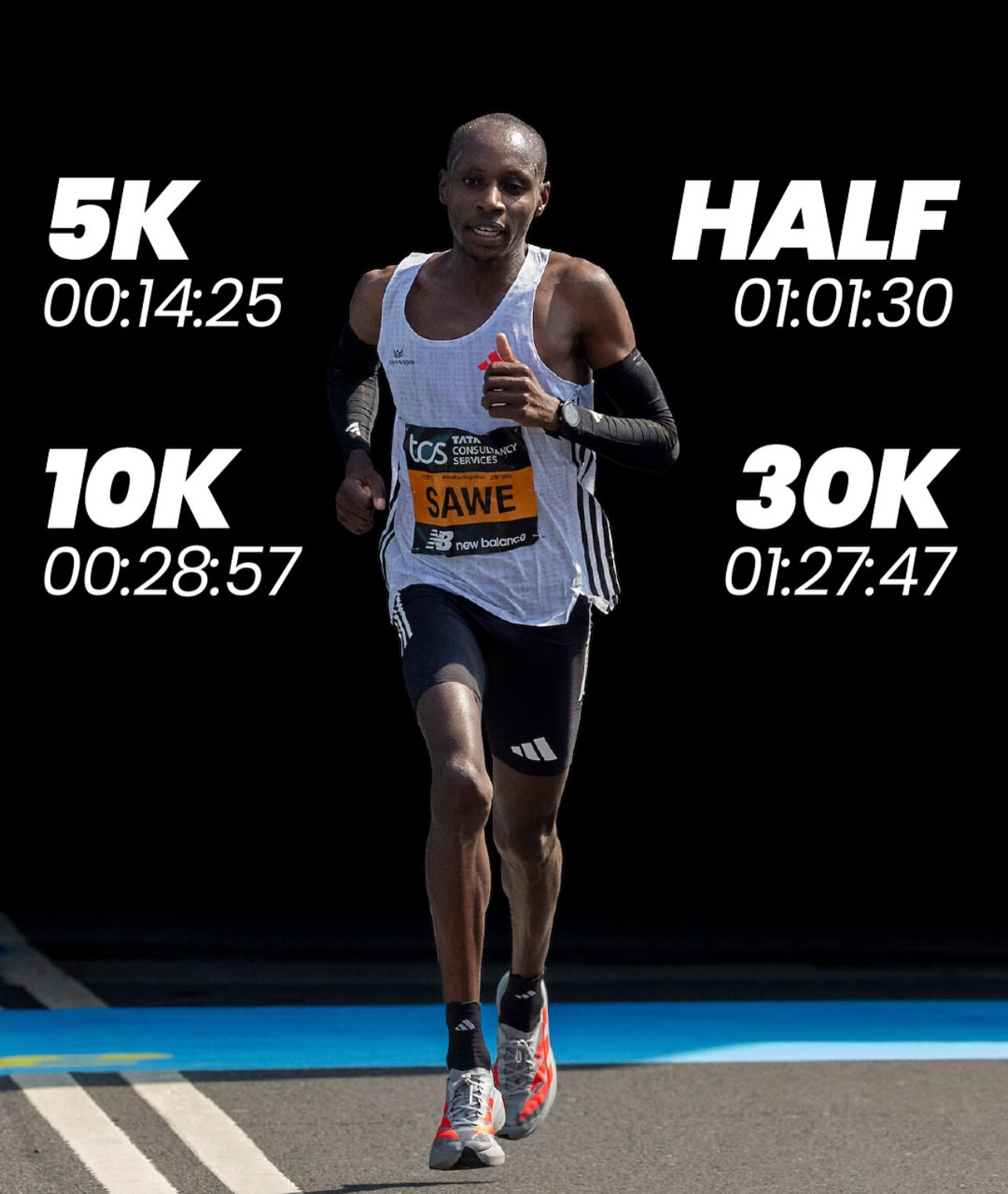
14. Alex Yee (GBR) – 2:11:08
15. Weynay Ghebresilasie (GBR) – 2:11:21
16. Jake Smith (GBR) – 2:11:57
17. Marcelo Laguera (MEX) – 2:12:03
18. Kevin Salvano (USA) – 2:13:03
19. Alex Milne (GBR) – 2:14:03
20. Philip Sesemann (GBR) – 2:14:46
21. Sean Hogan (GBR) – 2:14:51
22. Logan Smith (GBR) – 2:15:23
23. David Bishop (GBR) – 2:15:58
24. Ross Braden (GBR) – 2:21:05
25. Carl Avery (GBR) – 2:23:19
Notably, marathon legend Eliud Kipchoge, aiming for a record-extending fifth London title, finished sixth with a time of 2:05:25. Despite a strong start, Kipchoge couldn’t match the relentless pace set by Sawe in the latter stages of the race.
Uganda’s Jacob Kiplimo impressed in his marathon debut, securing second place with a commendable 2:03:37 finish. Defending champion Alexander Mutiso Munyao and Dutch record-holder Abdi Nageeye both clocked 2:04:20, with Mutiso narrowly edging out Nageeye for the third spot.
The race unfolded under sunny skies and ideal running conditions, with temperatures around 16°C (61°F), providing a perfect backdrop for this historic event.
Sawe’s triumph not only underscores his meteoric rise in long-distance running but also adds a new chapter to the rich history of the London Marathon.
by Boris Baron
Login to leave a comment
Five guys under 2:05 and 13 under 2:10! I know the organizers wanted sub 2 hours but it was a stunning event as it was. And the fastest time for a women’s only marathon. Congrats all around including to the organizers! Well done! - Bob Anderson 4/27 4:30 pm |
Ethiopia’s Mengesha wins Hong Kong-Zhuhai-Macau Bridge race
The Bank of China Hong Kong-Zuhai-Macau Bridge Half Marathon made a considerable improvement on its flawed previous edition as it was praised by elite and amateur runners on Sunday.
After criticism following the inaugural race 14 months ago, the logistical aspects were as important as the identities of the winners at this second event.
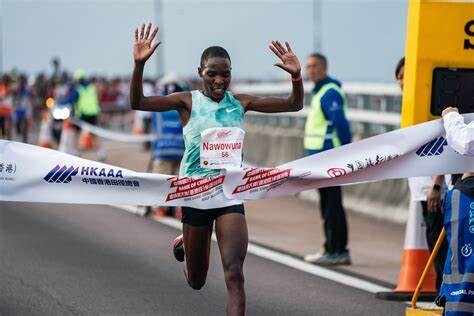
Handily for organizers, the first man and woman over the line, Milkesa Mengesha and Grace Nawowuna, were gushing in their assessments of the race, which is staged inside a border checkpoint at the Hong Kong end of the world’s longest sea-crossing bridge.
Ethiopian Mengesha, winner of last year’s Berlin Marathon, completed the 13.1 miles (21km) in one hour, one minute and 27 seconds, three seconds ahead of Patrick Mosin, from Kenya, who finished in 1:01.30.
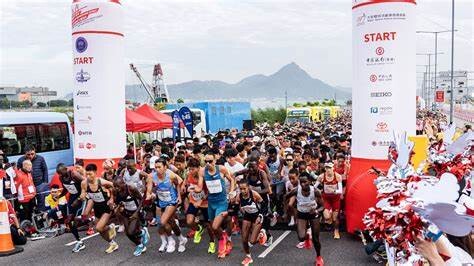
“I am so happy to win here, the level of everything has been perfect, even above my expectations,” Mengesha said.
The 21-year-old Kenyan Nawowuna clocked 1:07.56, ahead of compatriot Sheila Chelangat in 1:08.06. She said the mixed reviews of November 2023 had not been a factor when deciding whether to compete.
“The organisation was everything we could have asked for and Hong Kong is beautiful,” Nawowuna said.
Complaints following the debut race focused on a scarcity of toilets, delays transporting runners between their AsiaWorld-Expo assembly point and the course, an absence of food and shortage of drink, and a pre-race drop-off about a 1.5km walk from the start line.
Simon Yeung Sai-mo, chairman of the organising committee, said a backlash from “runners and the media” had prompted a host of changes.
“There were more than 70 toilets in the starting and finishing areas,” Yeung said. “The drop-off point was fewer than 500 metres from the start line and we provided food and drinks for runners.”
As they walked to the start, flanked by rows of portable toilets, some of the 8,000 runners were heard saying lessons had been learned. Out on the course, there were six water stations, with food available from those on the homeward straight.
The start was watched by government officials including Secretary for Culture, Sports and Tourism Rosanna Law Shuk-pui.
Fleets of buses were waiting to take runners back to AsiaWorld-Expo, where they were greeted with gift bags containing a banana, crackers, water and a towel, before collecting their bags.
Amateur runner Rick Yam said: “I heard a lot about last year, but there isn’t anything I can say that needs improving.
“We could see the start line when we got off the bus and the transport was good. It can’t be as easy as some other races, because we’re in an area where there is usually restricted access. Overall, it was pretty good.”
Fellow runner Alan Zagury said the toilets and shuttle bus service were faultless, but he would not be back for future editions “because it is a huge logistical headache”. “I left home at 4.30am, it’s now past 9.30am, which is far too much for a half-marathon,” he said.
Zagury also said the 45-minute wait in a confined area before starting was “too long and meant we could not warm-up”.
Given the race’s location, however, hanging around before starting was the nature of the beast.
Virginia Lo Ying-chiu, the first Hong Kong woman home in 1:16.45, said it had been a “privilege to be involved”. “I think the problems were solved,” she said. “We didn’t need to wait for toilets, or walk to the start line. The arrangement is much better.”
Japan’s 2018 Boston Marathon winner, Yuki Kawauchi, finished seventh in 1:07.52 before being mobbed for autographs and selfies. He said it had been a “good decision” to compete and rated the event above his own country’s Chiba Aqualine Marathon, where runners race on the bridge section of the Tokyo Bay Aqua-Line.
Yeung said the race would return next year, on condition of government support, but the plan was to make it “better rather than bigger”.
“If we increased numbers, it would not be a good experience for runners,” he said. “We can’t have any more, because we have to give the bridge back to the government as soon as possible.”
After assembling a strong international field, organisers were rewarded when World Athletics designated the event a Gold Label Road Race, one rung beneath its top-tier Platinum Label races.
by Paul McNamara
Login to leave a comment
Kenyans target a double hat-trick in Munich
Kenya’s elite runners target a double hat-trick at Sunday’s Generali Munich Marathon: If successful it will be the third time in a row that runners from this country take Germany’s fourth biggest marathon race.
Cosmas Birech and Shamilah Kipsiror are heading the start list with personal bests of 2:08:03 and 2:27:33 respectively.
Organizers registered a record total of over 27,000 entries from 120 countries for the 38th edition of the Generali Munich Marathon, which will start and finish next to the iconic Munich Olympic Stadium. Due to building works in the arena runners can not finish inside on the track this year. While the total figure includes races at shorter distances there will be around 6,200 marathon runners on Sunday.
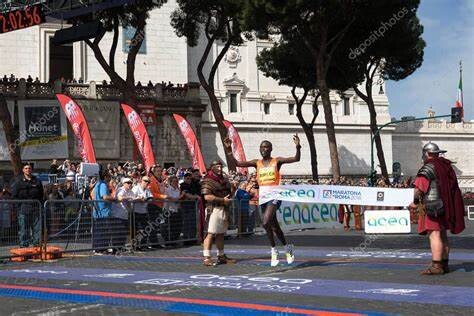
A number of athletes had to cancel their start due to either injuries of visa problems. The latest withdrawal came from Dominic Nyairo of Kenya, who would have been a strong favorite on Sunday. However there is still enough talent left to produce a good race. “It is our aim to achieve winning times of sub 2:09 and sub 2:26,“ said Michael Kraus, the elite field coordinator. The weather might be challenging, but we remain optimistic to see faster winning times than last year.“
Cosmas Birech ran his personal record when he won the Rome Marathon in 2018 with 2:08:03. Rome is not known as a particularly fast course, so Birech hopes to achieve a similar time at the Generali Munich Marathon. Fellow Kenyans William Kibor and Benard Chumba are also among the favorites. Kibor has a PB of 2:08:32 from the Vienna City Marathon back in 2012 and Chumba ran 2:10:33 in Marrakech last year. All three of them are from Kaptagat and train together. “My training went very well and I feel that I am in the same kind of shape as when I ran my personal best. If the weather is good I hope to run between 2:07 and 2:09 on Sunday,“ said William Kibor at Friday’s press conference in Munich.
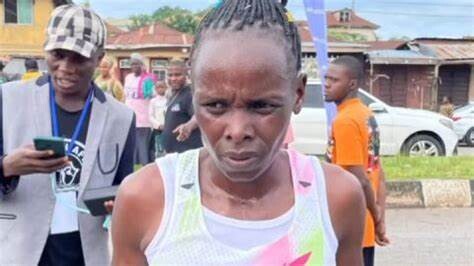
A marathon debutant could do very well on Sunday: Kenya’s Nehemiah Kipyegon showed very promising form recently. The 26 year-old improved his half marathon PB to 60:34 in Copenhagen last month. In the highly competitive race he finished ninth. Siyum Tola of Ethiopia is another athlete who will run his debut in the Generali Munich Marathon. He has been involved in marathons as a pacemaker and is a training partner of Milkesa Mengesha who won the Berlin Marathon two weeks ago.
In the women’s race Shamilah Kipsiror will be the main favorite. The Kenyan improved to 2:27:33 for fourth place in Rome this spring. Her half marathon PB of 67:53 indicates that there is potentially more to come, especially on a flat course like Munich. A trio of Ethiopians will most likely be her strongest rivals on Sunday. Gelane Senbete has a personal record of 2:29:54 while Gadise Negasa has run 2:30:30. Asmare Assefa could be in for a surprise and a big improvement. So far she has not run faster than 2:33:10 but the Generali Munich Marathon will be her first race outside Africa. Assefa is in the same training group with Tola and Mengesha in Addis Ababa.
“We are thrilled by the record entry which means we have a 20 percent surge compared to last year. We are proud of these figures which show that our event and the course are really popular,“ said Gernot Weigl, who runs the Generali Munich Marathon as Race Director for almost 25 years. Stronger elite fields and international media work have helped bring up the numbers recently.
Although the city of Munich benefits from the growing number of international runners the event attracts, it was Munich’s government that clouded the future of the Generali Munich Marathon. Officers of the city’s district department (Kreisverwaltungsreferat) decided to pass on the right of staging a marathon in the city to a new organizer who has never ever staged a road race. There is talk of a two-lap marathon course and it looks as if the city of Munich gambles with a successful international event that in addition keeps a legacy of the 1972 Munich Olympic Games. “I have never heard of anything like this happening to a major international marathon race,” said Gernot Weigl, who is now legally challenging the decision of the Munich district department.
by AIMS
Login to leave a comment
Generali Munich Marathon
The GENERALI MUNICH MARATHON has held the elite label of the WORLD ATHLETICS since 2020 and the marathon route is officially measured and recognized. The route runs from the Olympic Park and Schwabing to Leopoldstraße with the Siegestor, via Königsplatz and the Pinakotheken to the English Garden. From there past the Chinese Tower and Art Nouveau villas in Bogenhausen, through...
more...Mengesha and Ketema claim Berlin Marathon crowns
Milkesa Mengesha and Tigist Ketema achieved an Ethiopian double at the BMW Berlin Marathon, a World Athletics Platinum Label road race, on Sunday (29).
Racing at the 50th edition of the event, held on a sunny morning in Germany’s capital, Mengesha kicked away from Cybrian Kotut in the closing stages to win the men’s title in a PB of 2:03:17, while Ketema solo ran her way to a 2:16:42 triumph in the women’s race.
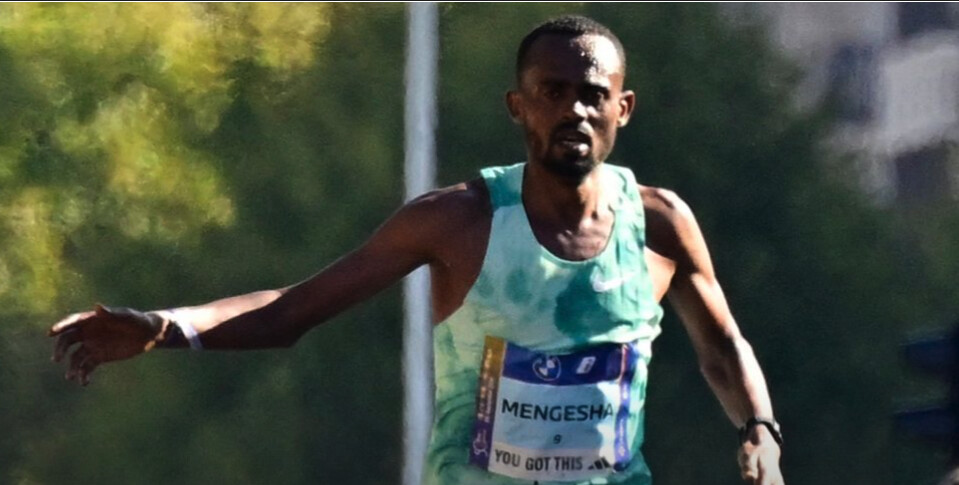
Kenya’s Kotut finished five seconds behind Mengesha, securing second place in 2:03:22, with Ethiopia’s Haymanot Alew third in 2:03:31. Ketema led an Ethiopian top four in the women’s race, winning by more than two minutes ahead of her compatriots Mestawut Fikir (2:18:48), Bosena Mulatie (2:19:00) and Aberu Ayana (2:20:20).
After a fast start Mengesha, who finished sixth in the World Championships marathon last year, was part of a lead group of 11 that followed the pacemakers through the halfway mark still on sub-2:02 pace, in 1:00:57.
Kenya’s former world half marathon record-holder Kibiwott Kandie was to the fore as the pacemakers stepped aside just after 25km. The group had reduced to eight and was bunched together by the time 30km was reached in 1:27:21, and seven were still in contention – including Ethiopia’s Tadese Takele, the fastest man in the field – as they passed the 35km mark in 1:42:14.
Kandie, Takele and Ethiopia’s Dejene Megersa couldn’t hold on and the race was down to Mengesha, Kotut, Kenya’s Stephen Kiprop and Alew with around 5km to go. They reached the 40km mark in 1:56:59 before Mengesha and Kotut strode ahead.
Mengesha dropped his rival with the Brandenburg Gate finish line in sight, crossing it to win in 2:03:17, the third fastest time in the world so far this year and a PB that improves the previous best he set in Valencia in 2022 by more than two minutes.
He dropped to his knees and was followed over the finish line by Kotut in 2:03:22, also a PB by more than a minute.
Ketema was a dominant winner of the women’s race. The 26-year-old, who ran 2:16:07 when making her marathon debut in Dubai in January, is a training partner of Tigist Assefa, who set a world record of 2:11:53 when winning in Berlin last year.
This time Ketema was in control and she was joined by her compatriot Azmera Gebru and a group of men’s race runners as 5km was reached in 16:06 and 10km in 32:14.
Ketema was 12 seconds ahead at halfway, which she hit in 1:07:53, and she only increased her advantage from there. She reached 30km in 1:36:59, by which point Gebru had been overtaken, with Ketema’s closest challengers being Mulatie, Fikir and Ayana who were running together 1 minute and 53 seconds back.
Ketema continued to forge ahead and she reached 40km in 2:09:24, with a gap of 2 minutes and 20 seconds. While Fikir closed slightly, Ketema was well clear and she won in 2:16:42, the third fastest time in the women’s race at the Berlin Marathon.
Fikir was second in 2:18:48, a PB by almost two minutes, while Mulatie was third in 2:19:00, taking almost eight minutes off her previous best set on her debut in Houston in January.
Login to leave a comment
BMW Berlin Marathon
The story of the BERLIN-MARATHON is a story of the development of road running. When the first BERLIN-MARATHON was started on 13th October 1974 on a minor road next to the stadium of the organisers‘ club SC Charlottenburg Berlin 286 athletes had entered. The first winners were runners from Berlin: Günter Hallas (2:44:53), who still runs the BERLIN-MARATHON today, and...
more...Ketema and Takele head entries for 50th Berlin Marathon
Ethiopia’s Tigist Ketema and Tadese Takele start as the fastest in the fields and will be hoping to lead the way when they line up for the BMW Berlin Marathon, a World Athletics Platinum Label road race, on Sunday (29).
Ketema, previously better known as an 800m and 1500m specialist, made her mark in the marathon in Dubai in January as she ran 2:16:07, a time that places her ninth on the women’s world marathon all-time list. She then ran 2:23:21 to place seventh in London in April and Berlin will be her first race since then.
“I have prepared for a personal best and plan to run the first half on Sunday in around 68 minutes,” she said. “I hope it won't be too cold because I prefer to run in slightly warmer weather.”
Ketema is one of three women with sub-2:20 PBs on the entry list, as her competition includes her compatriots Genzebe Dibaba and Yebrugal Melese, who have respective PBs of 2:18:05 and 2:19:36.
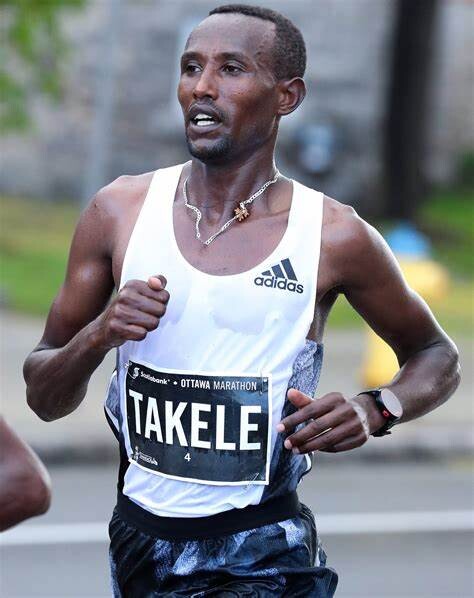
Dibaba ran that PB on her debut in Amsterdam in 2022 and she clocked 2:21:47 in Chicago a year later. “I saw Haile Gebrselassie run two world records in Berlin on TV and since then I've always wanted to run in Berlin,” she said. “Now the time has come. It would be a success for me if I ran a personal best.”
Another eight women on the entry list have dipped under 2:22 for the marathon in their careers so far, including Mestawot Fikir (2:20:45), Azmera Gebru (2:20:48), Sisay Gola (2:20:50), Fikrte Wereta (2:21:32) and Aberu Ayana (2:21:54), as well as Japan’s Mizuki Matsuda (2:20:52) and Ai Hosoda (2:21:42).
Germany’s Melat Kejeta is also part of that group, having clocked 2:21:47 in Dubai in January. She placed sixth at the Tokyo Olympics but was unable to finish the Olympic marathon in Paris due to stomach problems.
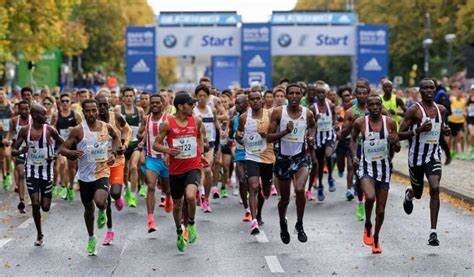
A total of 13 world records have so far been set in the Berlin Marathon, the most recent being the 2:11:53 by Tigist Assefa – a training partner of Ketema – in last year’s women’s race.
The men’s title on that occasion was won by Eliud Kipchoge, as he claimed a record fifth victory.
Kipchoge does not return this year but Takele does, following his third-place finish in last year’s race in a PB of 2:03:24. That was his most recent race due to injury, but he says he is now fit and ready to run. “I’ve trained very well,” he said, “and expect to run a strong race.”
Another four men to have dipped under 2:05 feature on the entry list, including Kenya’s Cybrian Kotut, who ran his PB of 2:04:34 when finishing second in Amsterdam last year, and Ethiopia’s Hailemaryam Kiros and Bazezew Asmare, who respectively clocked 2:04:41 in Paris in 2021 and 2:04:57 in Amsterdam in 2022.
Kenya’s former world half marathon record-holder Kibiwott Kandie races the marathon for the third time and will be looking to build on the PB of 2:04:48 he set in Valencia last year as he hunts for a first win over the distance.
They will be joined by athletes including Kenya’s Samwel Mailu, the world half marathon bronze medallist who set a course record of 2:05:08 to win the Vienna City Marathon last year and continues his comeback after injury, and Ethiopia’s Milkesa Mengesha, who finished sixth at the World Championships last year and has a best of 2:05:29.
Elite fields
Women
Tigist Ketema (ETH) 2:16:07
Genzebe Dibaba (ETH) 2:18:05
Yebrugal Melese (ETH) 2:19:36
Mestawot Fikir (ETH) 2:20:45
Azmera Gebru (ETH) 2:20:48
Sisay Gola (ETH) 2:20:50
Mizuki Matsuda (JPN) 2:20:52
Fikrte Wereta (ETH) 2:21:32
Ai Hosoda (JPN) 2:21:42
Melat Kejeta (GER) 2:21:47
Aberu Ayana (ETH) 2:21:54
Calli Hauger-Thackery (GBR) 2:22:17
Bekelech Gudeta (ETH) 2:22:54
Lisa Weightman (AUS) 2:23:15
Betelihem Afenigus (ETH) 2:23:20
Veronica Maina (KEN) 2:24:46
Bosena Mulatie (ETH) 2:26:59
Alisa Vainio (FIN) 2:27:26
Sonia Samuels (GBR) 2:28:04
Nora Szabo (HUN) 2:28:25
Philippa Bowden (USA) 2:29:14
Pauline Esikon (KEN) debut
Men
Tadese Takele (ETH) 2:03:24
Cybrian Kotut (KEN) 2:04:34
Hailemaryam Kiros (ETH) 2:04:41
Kibiwott Kandie (KEN) 2:04:48
Bazezew Asmare (ETH) 2:04:57
Samwel Mailu (KEN) 2:05:08
Milkesa Mengesha (ETH) 2:05:29
Haymanot Alew (ETH) 2:05:30
Philimon Kipchumba (KEN) 2:05:35
Josphat Boit (KEN) 2:05:42
Dejene Megersa (ETH) 2:05:42
Enock Onchari (KEN) 2:05:47
Oqbe Ruesom (ERI) 2:05:51
Justus Kangogo (KEN) 2:05:57
Haimro Alame (ISR) 2:06:04
Ashenafi Moges (ETH) 2:06:12
Asbel Rutto (KEN) 2:07:04
Samuel Tsegay (SWE) 2:06:53
Yohei Ikeda (JPN) 2:06:53
Stephen Kiprop (KEN) 2:07:04
Hendrik Pfeiffer (GER) 2:07:14
Kento Kikutani (JPN) 2:07:26
Melaku Belachew (ETH) 2:07:28
Godadaw Belachew (ISR) 2:07:45Y
uhei Urano (JPN) 2:07:52
Guojian Dong (CHN) 2:08:12
Filimon Abraham (GER) 2:08:22
Haftom Welday (GER) 2:08:24
Sebastian Hendel (GER) 2:08:51
Olonbayar Jamsran (MGL) 2:08:58
Haftamu Gebresilase (ETH) debut
by World athletics
Login to leave a comment
BMW Berlin Marathon
The story of the BERLIN-MARATHON is a story of the development of road running. When the first BERLIN-MARATHON was started on 13th October 1974 on a minor road next to the stadium of the organisers‘ club SC Charlottenburg Berlin 286 athletes had entered. The first winners were runners from Berlin: Günter Hallas (2:44:53), who still runs the BERLIN-MARATHON today, and...
more...50th BMW Berlin-Marathon Sunday: Deep fields promise fast and exciting races in Berlin’s jubilee marathon
The 50th edition of the BMW Berlin Marathon promises fast and exciting elite races. Deep fields will be assembled with 14 men who have already run sub 2:06:00. While there is no strong favourite among them it is different with the women: Ethiopia’s Tigist Ketema heads the list with her stunning 2:16:07 debut time, which makes her the ninth-fastest marathon runner ever.
Ten more women have personal bests of sub 2:22:00. Thirteen world records were broken in the history of the BMW Berlin Marathon, many more than in any other marathon. The jubilee edition of Germany’s most spectacular road race will have a record number of around 50,000 participants.
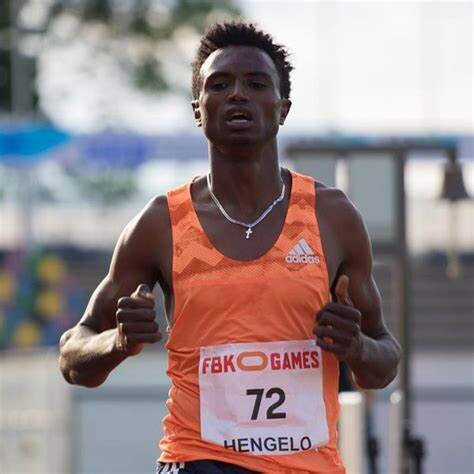
Men’s field
Without Kenya’s superstar Eliud Kipchoge, the winner of the past two editions, the fastest on paper is Tadese Takele. The Ethiopian was third in Berlin a year ago when he improved to 2:03:24. Since another fast race is expected Takele will probably have to run quicker to be in contention for the prestigious marathon victory at the Brandenburg Gate.
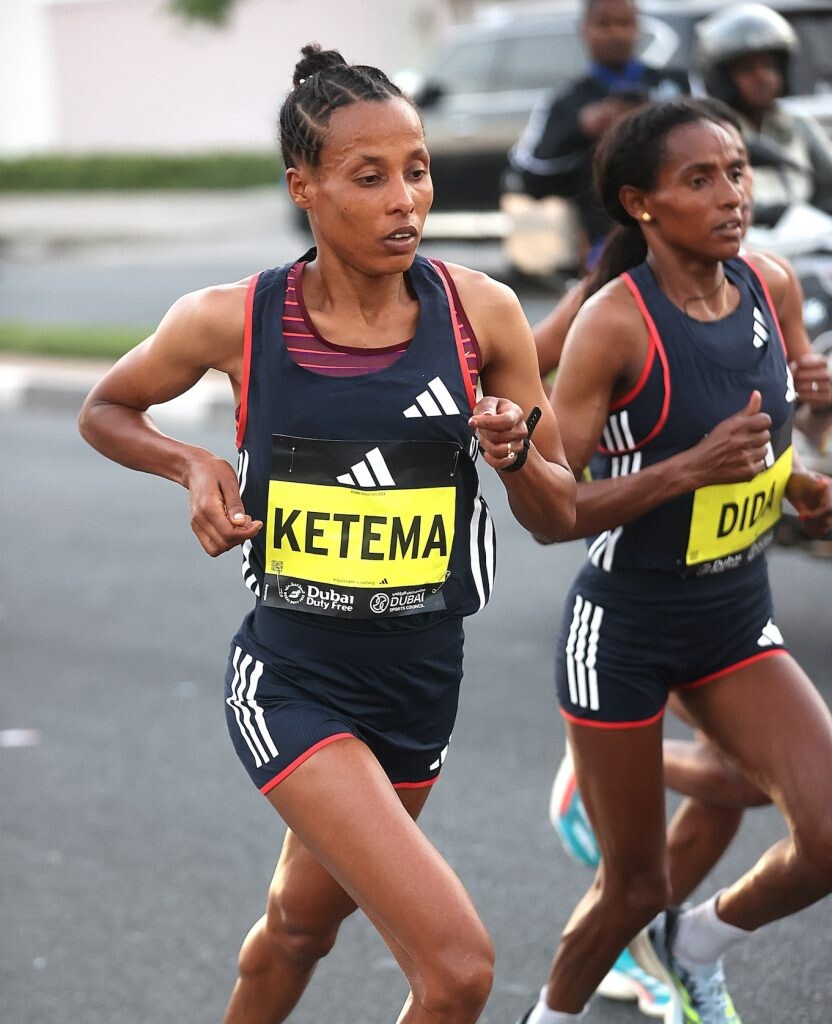
Fellow Kenyan Kibiwott Kandie could well challenge for his first triumph over the classic distance. The Kenyan is the former world half marathon record holder (57:32) with great potential. Germany’s Hendrik Pfeiffer leads a group of strong domestic runners. He improved to 2:07:14 early this year in Houston.
Women’s field
Tigist Ketema stormed to a sensational victory in Dubai at the beginning of the year, clocking an unofficial world debut record of 2:16:07. Coming to another very fast course now the training partner of Tigst Assefa, who smashed the world record here with 2:11:53 a year ago, might look to improve her personal best.
The women’s field includes a former world record holder as well, but at a much shorter distance: Genzebe Dibaba ran 3:50.07 in the 1,500m in 2015. When she switched to the marathon she ran a fast debut with 2:18:05 in Amsterdam two years ago.
Unfortunately, Kenya’s Rosemary Wanjiru had to cancel her start due to injury. But Germany’s Melat Kejeta is a late addition to the field. She dropped out of the Olympic Marathon early because of stomach problems and now hopes to bounce back in Berlin with a personal best. Kejeta might well try to become the second German woman after Irina Mikitenko (2:19:19 in Berlin in 2008) to break 2:20:00.
MEN
Tadese Takele ETH 2:03:24
Cybrian Kotut KEN 2:04:34
Hailemaryam Kiros ETH 2:04:41
Kibiwott Kandie KEN 2:04:48
Bazezew Asmare ETH 2:04:57
Samwel Mailu KEN 2:05:08
Milkesa Mengesha ETH 2:05:29
Haymanot Alew ETH 2:05:30
Philimon Kipchumba KEN 2:05:35
Josphat Boit KEN 2:05:42
Dejene Megersa ETH 2:05:42
Enock Onchari KEN 2:05:47
Oqbe Ruesom ERI 2:05:51
Justus Kangogo KEN 2:05:57
Haimro Alame ISR 2:06:04
Ashenafi Moges ETH 2:06:12
Asbel Rutto KEN 2:07:04
Samuel Tsegay SWE 2:06:53
Yohei Ikeda JPN 2:06:53
Stephen Kiprop KEN 2:07:04
Hendrik Pfeiffer GER 2:07:14
Kento Kikutani JPN 2:07:26
Melaku Belachew ETH 2:07:28
Godadaw Belachew ISR 2:07:45
Yuhei Urano JPN 2:07:52
Guojian Dong CHN 2:08:12
Filimon Abraham GER 2:08:22
Haftom Welday GER 2:08:24
Sebastian Hendel GER 2:08:51
Olonbayar Jamsran MGL 2:08:58
Haftamu Gebresilase ETH Debut
WOMEN
Tigist Ketema ETH 2:16:07
Genzebe Dibaba ETH 2:18:05
Yebrugal Melese ETH 2:19:36
Mestawot Fikir ETH 2:20:45
Azmera Gebru ETH 2:20:48
Sisay Gola ETH 2:20:50
Mizuki Matsuda JPN 2:20:52
Fikrte Wereta ETH 2:21:32
Ai Hosoda JPN 2:21:42
Melat Kejeta GER 2:21:47
Aberu Ayana ETH 2:21:54
Calli Hauger-Thackery GBR 2:22:17
Bekelech Gudeta ETH 2:22:54
Lisa Weightman AUS 2:23:15
Betelihem Afenigus ETH 2:23:20
Veronica Maina KEN 2:24:46
Bosena Mulatie ETH 2:26:59
Alisa Vainio FIN 2:27:26
Sonia Samuels GBR 2:28:04
Nora Szabo HUN 2:28:25
Philippa Bowden USA 2:29:14
Pauline Esikon KEN Debut
by Christopher Kelsall
Login to leave a comment
BMW Berlin Marathon
The story of the BERLIN-MARATHON is a story of the development of road running. When the first BERLIN-MARATHON was started on 13th October 1974 on a minor road next to the stadium of the organisers‘ club SC Charlottenburg Berlin 286 athletes had entered. The first winners were runners from Berlin: Günter Hallas (2:44:53), who still runs the BERLIN-MARATHON today, and...
more...50th BMW BERLIN-MARATHON ON 29 SEPTEMBER: ELITE FIELD
The men’s elite field for the 50th edition of the BMW BERLIN-MARATHON race comes with a change that reflects the recent development at the very top of elite marathon racing.
It will be the first time since 2014 that you will not find the name of either Eliud Kipchoge or Kenenisa Bekele on the start list of the BMW BERLIN-MARATHON. However the Elite Race Director of the marathon where most world records (13) were broken, Mark Milde, can be confident that not so much will change regarding the outcome. Although world-records will not be the target on 29th September, the jubilee race could well deliver extraordinary fast times yet again.
A record number of more than 50,000 runners are expected to run the 50th BMW BERLIN-MARATHON on 29th September. The race, that saw its first edition back in 1974 with 244 finishers, never had over 50,000 runners before.
From those on the men’s start list at least one has the potential to become Kenya’s next marathon superstar: Kibiwott Kandie is a former world half marathon record holder with a personal best of 57:32. This time suggests that he could become one of the fastest marathon runners of all time if he can transform his talent to the classic distance. The 28 year-old, who has a current PB of 2:04:48 and was inspired by former Berlin world record breaker Paul Tergat, is one of half a dozen runners who feature very strong personal bests of sub 2:05:00.
Returning to the BMW BERLIN-MARATHON will be Ethiopia’s Tadese Takele and Ronald Korir of Kenya, who placed third and fourth last year. Both ran their personal bests of 2:03:24 and 2:04:22 here. Kenya’s Cybrian Kotut, a younger brother of former Abbott World Marathon Majors Champion Martin Lel, will run his first BMW BERLIN-MARATHON. Kotut features a PB of 2:04:34. Ethiopians Hailemaryam Kiros (2:04:41) and Bazezew Asmare (2:04:57) are the other two runners with sub 2:05 PBs. Another runner who could challenge for a place on the podium is Samwel Mailu. The Kenyan smashed the course record of the Vienna City Marathon last year with 2:05:08. Due to an injury the bronze medallist from the 2023 World Half Marathon Championships was unable to compete this spring.
The women’s race could see a battle between Ethiopia’s newcomer Tigist Ketema and Kenya’s Rosemary Wanjiru. With their personal bests they are among the top ten on the marathon all-time list. Tigist Ketema took the Dubai Marathon this year with an unofficial world debut record of 2:16:07.
She is a training partner of Tigst Assefa, who smashed the world record at the BMW BERLIN-MARATHON a year ago. Rosemary Wanjiru ran her marathon debut in Berlin two years ago and finished second with a brilliant 2:18:00. This year she improved to 2:16:14 when she was runner-up in Tokyo.
Former 1,500m world record holder Genzebe Dibaba, who is the younger sister of Ethiopian running legend Tirunesh Dibaba, will hope to achieve a fast time on the flat Berlin course. She ran a 2:18:05 debut in Amsterdam two years ago, but was not yet able to improve this time. Genzebe Dibaba was the 2014 Laureus World Sportswoman of the Year. Fellow-Ethiopian Yebrgual Melese is the fourth woman on the start list who has a sub 2:20 PB with 2:19:36.
Elite Runners for the 50th BMW BERLIN-MARATHON:
MEN
Tadese Takele ETH 2:03:24
Ronald Korir KEN 2:04:22
Cybrian Kotut KEN 2:04:34
Hailemaryam Kiros ETH 2:04:41
Kibiwott Kandie KEN 2:04:48
Bazezew Asmare ETH 2:04:57
Samwel Mailu KEN 2:05:08
Milkesa Mengesha ETH 2:05:29
Haymanot Alew ETH 2:05:30
Philimon Kipchumba KEN 2:05:35
Stephen Kiprop KEN 2:07:04
WOMEN
Tigist Ketema ETH 2:16:07
Rosemary Wanjiru KEN 2:16:14
Genzebe Dibaba ETH 2:18:05
Yebrugal Melese ETH 2:19:36
Mestawot Fikir ETH 2:20:45
Azmera Gebru ETH 2:20:48
Sisay Gola ETH 2:20:50
Ababel Yeshaneh ETH 2:20:51
Mizuki Matsuda JPN 2:20:52
Fikrte Wereta ETH 2:21:32
Login to leave a comment
BMW Berlin Marathon
The story of the BERLIN-MARATHON is a story of the development of road running. When the first BERLIN-MARATHON was started on 13th October 1974 on a minor road next to the stadium of the organisers‘ club SC Charlottenburg Berlin 286 athletes had entered. The first winners were runners from Berlin: Günter Hallas (2:44:53), who still runs the BERLIN-MARATHON today, and...
more...Kepchirchir breaks women-only world marathon record in London
Olympic champion Peres Jepchirchir smashed the women-only world record by 45 seconds at the TCS London Marathon, winning the World Athletics Platinum Label road race in 2:16:16* on Sunday (21).
In what was widely regarded as one of the deepest and highest-quality women’s fields ever assembled, the three-time world half marathon champion sprinted away from world record-holder Tigist Assefa, 2021 London winner Joyciline Jepkosgei and last year’s runner-up Megertu Alemu – all of whom finished inside 2:17 – to notch up her third victory in a World Marathon Majors race.
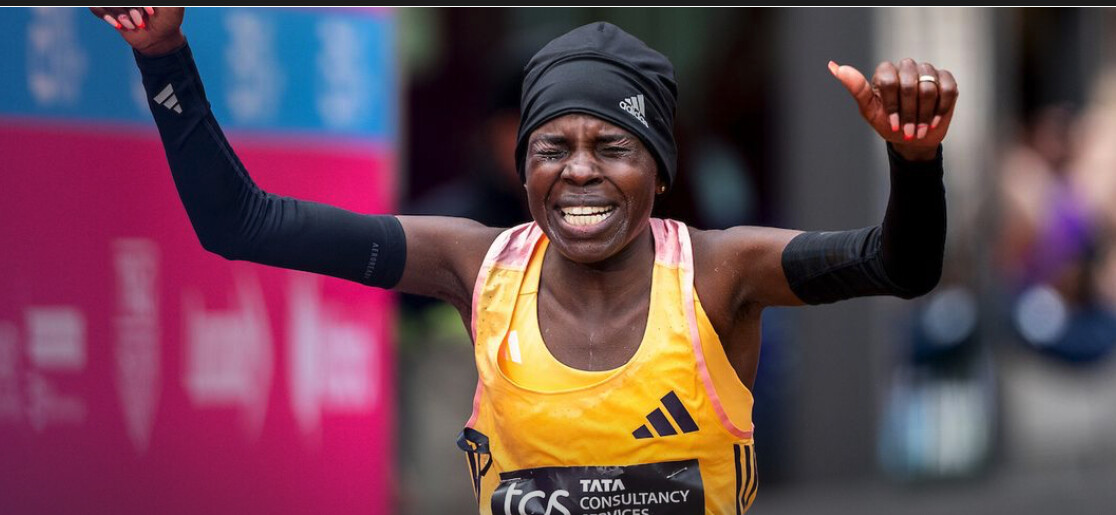
Jepchirchir’s compatriot Alexander Mutiso Munyao made it a Kenyan double, winning the men’s race in 2:04:01 to defeat Ethiopian distance legend Kenenisa Bekele by 14 seconds.
No secret had been made of the fact that breaking Mary Keitany’s women-only world record of 2:17:01 was the big target for the women’s race. With that at the forefront of their minds, a lead pack comprising all the big contenders soon detached themselves from the rest of the field and blazed through the first 5km in 15:44 – comfortably inside 2:13 pace.
They maintained that tempo through 10km, covered in 31:26, and at this point they were 67 seconds ahead of Ethiopia’s Tsige Haileslase, the closest challenger to the lead pack.
The front group – which included Assefa alongside past London winners Jepkosgei, Yalemzerf Yehualaw and Brigid Kosgei – got to 15km in 47:37. Soon after, Sheila Chepkirui – the runner-up in Berlin last year – started to drift off the pack.
Not long after passing the drinks station at the 20km point, 2019 world champion Ruth Chepngetich lost contact with the leaders. It meant that just seven women remained in the pack as they reached the half-way point in 1:07:04 – the second-fastest half-way split ever recorded in London, and putting them on schedule to smash the women-only world record by almost three minutes.
Kosgei was the next to drift back, and with the pacemakers having done their job, it left six women out in front: Jepchirchir, Assefa, training partner and Dubai marathon champion Tigist Ketema, 2022 London winner Yehualaw, 2021 London champion Jepkosgei, and 2023 London runner-up Megertu Alemu.
The sextet ran together through 25km (1:19:38) and 17 miles, but Ketema and Yehualaw were unable to hold on for much further and started to lose contact, leaving four women – Assefa, Jepchirchir, Jepkosgei and Alemu – to battle it out for the three podium places.
The difference between 25km and 30km, 16:18, was the slowest 5km section of the race. The lead quartet was either starting to feel the effects of their early efforts, or they were starting to bide their team for an anticipated surge in the closing stages.
With 1:44 on the clock, the four leading women managed to navigate their way around the two lead vehicles that had been forced to stop due to a wheelchair racer who was experiencing some technical difficulties.
Assefa and Jepchirchir both took turns testing the waters by making subtle surges to see how their opponents would respond, but their overall pace continued to drop and they reached 35km in 1:52:48, putting them on course for a 2:16 finish.They passed 40km in 2:09:13, still running side by side. It was clear that no one else other than these four would be claiming places on the podium, but predicting a winner – and, indeed, the athlete who’d miss out on the podium – was still impossible with less than two kilometres to go.
As the clock ticked to 2:15, with little more than a minute of running left, Alemu was finally dropped. Seconds later, Jepchirchir unleashed her trademark finish to leave behind Jepkosgei and Assefa.
The diminutive Kenyan charged through the finish line in 2:16:16, finishing seven seconds ahead of Assefa. Jepkosgei (2:16:24) and Alemu (2:16:34) followed soon after, making this the first marathon in which four women have finished inside 2:17.
Jepchirchir will now turn her attention to defending her Olympic title in Paris in less than four months’ time where she’ll aim to become the first ever back-to-back women’s marathon gold medallist in the history of the Games.
The men’s race played out in similar fashion with a surprisingly large group remaining together into the second half before the final few contenders were left to battle it out in the closing stages.The late Kelvin Kiptum’s world (2:00:35) and course (2:01:25) records were not being targeted by the elite men, but a lead pack of 12 nevertheless set off as a respectable pace, going through 5km in 14:35 and 10km in 29:03.
They remained together through 15km (58:20) with the likes of Munyao, Bekele, 2022 world champion Tamirat Tola and 2021 Chicago winner Seifu Tura all in the lead pack.
They reached half way in 1:01:29 with 10 men still running together, more than 80 seconds ahead of Britain’s Emile Cairess, who was running alone in 13th place. France’s Hassan Chahdi soon drifted off the lead pack, and eight men were in the pack at the 30km point (1:27:20).
With 1:30 on the clock, big changes started to happen. The lead pack was down to five men: Munyao, Bekele, Tola, Ethiopia’s Dawit Wolde and compatriot Milkesa Mengesha. Less than 10 minutes later, Tola and Wolde had dropped back, leaving Bekele, Munyao and Mengesha as the lead trio. Mengesha lasted five more minutes before he, too, succumbed to the pace, unable to stick with Munyao and the 41-year-old Bekele.
Just before the clock ticked over to 1:55, Munyao finally dropped multiple world and Olympic gold medallist Bekele, who was visibly struggling to match the Kenyan’s pace.
Munyao maintained his lead to the finish, eventually winning in 2:04:01 to Bekele’s 2:04:15, the fastest time ever by an athlete over the age of 40.
With several of the leading contenders dropping out in the closing stages, Cairess came through to take third place in 2:06:46 ahead of fellow Briton Mahamed Mahamed, who clocked 2:07:05, both setting huge PBs.
by World Athletics
Login to leave a comment
TCS London Marathon
The London Marathon was first run on March 29, 1981 and has been held in the spring of every year since 2010. It is sponsored by Virgin Money and was founded by the former Olympic champion and journalist Chris Brasher and Welsh athlete John Disley. It is organized by Hugh Brasher (son of Chris) as Race Director and Nick Bitel...
more...Ethiopians Jemal Yimer (60:42) and Sutume Kebede (64:37) won the overall titles in Houston Half
In what is becoming an annual tradition, Weini Kelati ran 66:25 on Sunday to break the American record at the 2024 Aramco Houston Half Marathon. It was the third straight year the record was broken in Houston as the 27-year-old Kelati, making her half marathon debut, followed in the footsteps of Sara Hall (67:15 in 2022) and Emily Sisson (66:52 in 2023) to become a record-breaker in Houston. Sunday marked the third time the record had been broken in the past year as Keira D’Amatolowered Sisson’s record to 66:39 at the Asics Half Marathon in Australia in July.
Kelati finished 4th overall as Ethiopia’s Sutume Kebede, a late addition to the women’s field, upset Hellen Obiri to win in 64:37, a US all-comers record that moves her into a tie for 9th on the all-time list. The time was a pb of more than three minutes for Kebede, who was previously best known for finishing 3rd at the 2020 Tokyo Marathon and running 2:18:12 at the 2022 Seoul Marathon. Obiri, who was with Kebede through 10k (30:28) faded over the second half and wound up a distant 2nd in 66:07.
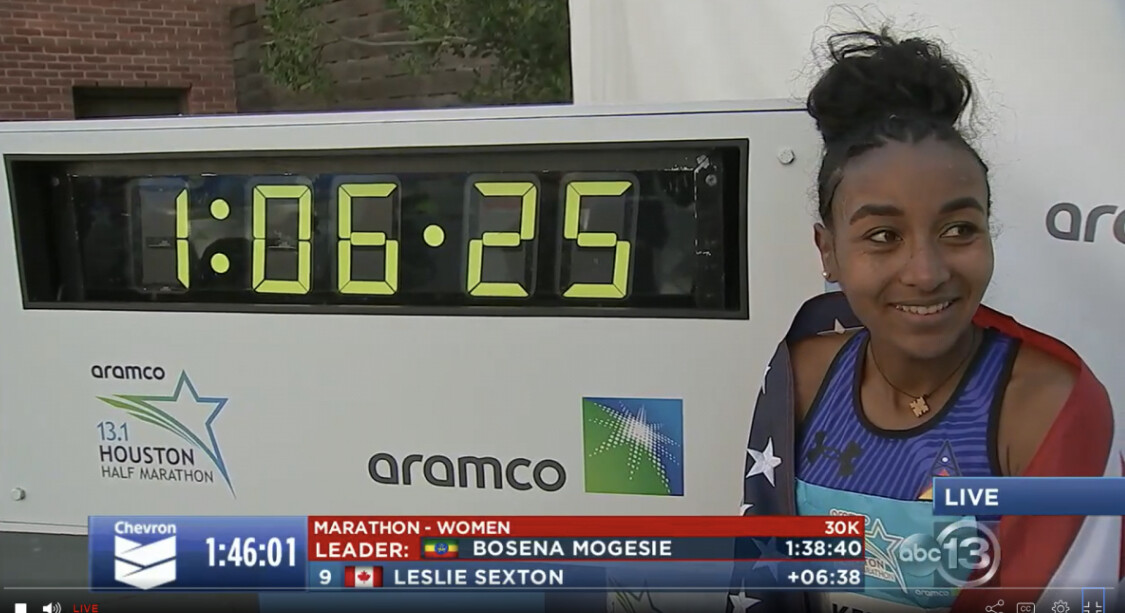
The men’s race came down to a five-man sprint finish with Ethiopia’s Jemal Yimer, who won in Houston in 2020 and was 4th at the World Half Marathon Championships in October, prevailing in 60:42. Wesley Kiptoo of NAZ Elite and Kenya was 2nd for the second straight year in 60:43 with 2022 champ Milkesa Mengeshaof Ethiopia 3rd in 60:45.
Biya Simbassa was the top American man in 60:45 in 4th, just ahead of a resurgent Diego Estrada, who led for the first 20 minutes and finished 5th in a pb of 60:49. Galen Rupp, tuning up for the Olympic Marathon Trials three weeks from now, hung back from the leaders and finished 14th in 62:37.
In the Chevron Houston Marathon, contested simultaneously, former NAIA star Zouhair Talbi of Morocco won the men’s race in 2:06:39 to boost his chances of Olympic selection. 2016 NCAA XC champion Patrick Tiernan, now training as part of Alistair and Amy Cragg’s Puma Elite Running team in North Carolina, was 4th in 2:07:45, hitting the Olympic standard and moving to #2 on the all-time Australian marathon list.
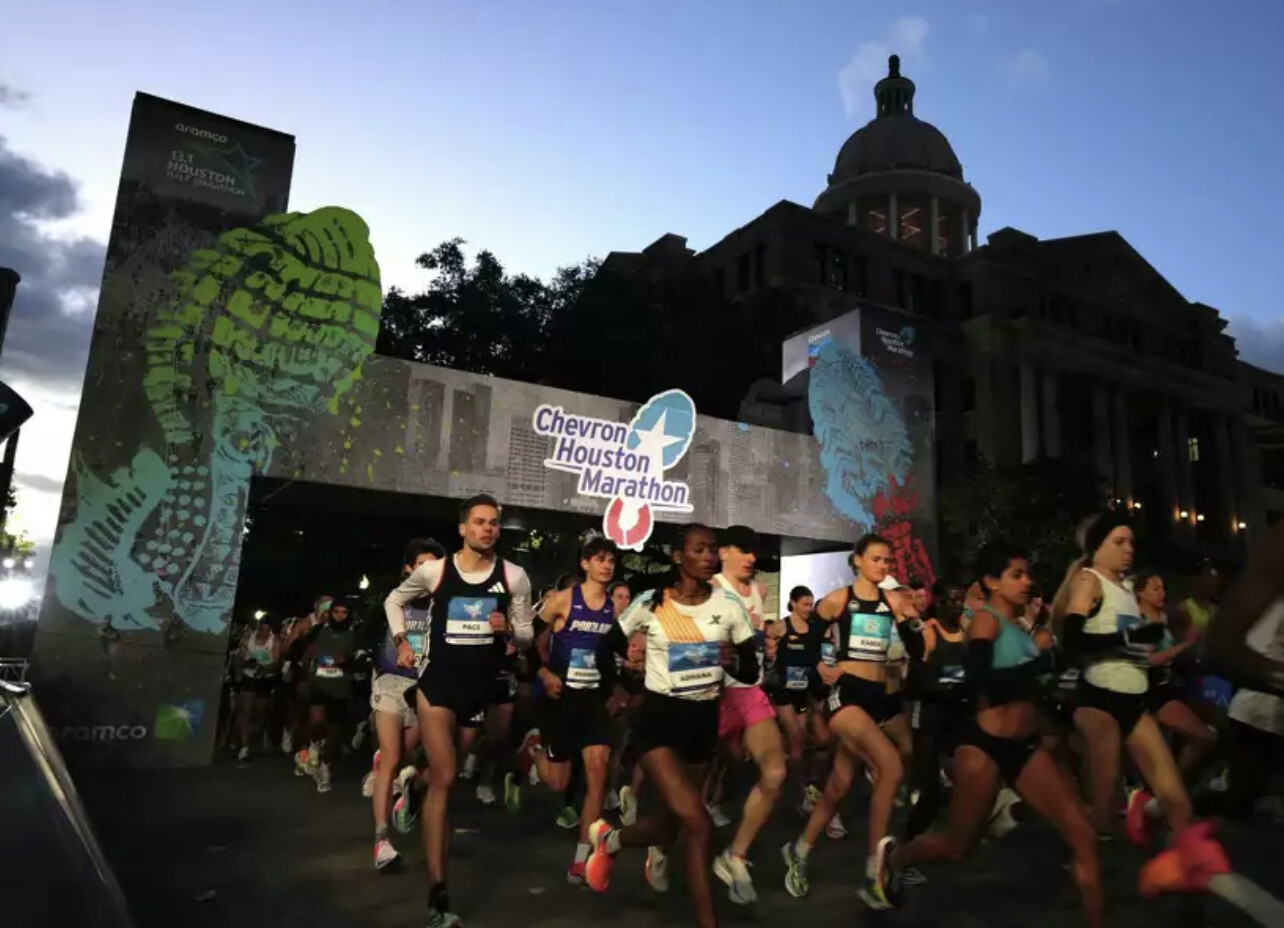
Ethiopia’s Rahma Tusa, the runner-up behind American Betsy Saina in September’s Sydney Marathon, won the women’s marathon in Houston in 2:19:33.
The races featured temperatures in the low 40s with 10 mph winds and gusts up to 17 mph, which made for a challenging end to the half marathon as miles 9, 10, and 11 were run directly into the teeth of the wind.
Below, six takeaways from the day’s racing in Houston.
2024 Houston Half Marathon men’s top 51. 60:42 Jemal Yimer, Ethiopia2. 60:43 Wesley Kiptoo, Kenya3. 60:45 Milkesa Mengesha, Ethiopia4. 60:45 Biya Simbassa, USA5. 60:49 Diego Estrada, USA14. 62:37 Galen Rupp, USA
2024 Houston Half Marathon women’s top 51. 64:37 Sutume Kebede, Ethiopia2. 66:07 Hellen Obiri, Kenya3. 66:24 Buze Diriba, Ethiopia4. 66:25 AR Weini Kelati, USA5. 67:36 Mestawut Fikir, Ethiopia
by Jonathan Gault (Let’s Run)
Login to leave a comment
Aramco Houston Half Marathon
The Chevron Houston Marathon provides runners with a one-of-a-kind experience in the vibrant and dynamic setting of America's fourth-largest city. Renowned for its fast, flat, and scenic single-loop course, the race has earned accolades as the "fastest winter marathon" and the "second fastest marathon overall," according to the Ultimate Guide to Marathons. It’s a perfect opportunity for both elite athletes...
more...World Athletics Championships Budapest 23 preview: marathon
In Oregon last year, Tamirat Tola ran his way into the World Championships history books with the fastest ever winning time in the men’s marathon: 2:05:36. Thirteen months on, the 31-year-old Ethiopian has the chance to add his name to the select band of marathon men to manage a successful title defence.
Only three have achieved the feat thus far: Spain’s Abel Anton (1997, 1999), Jaouad Gharib of Morocco (2003, 2005) and the Kenyan whose championship record Tola broke in Oregon, Abel Kirui (2009, 2011).
Tola was a class apart in 2022, the 2016 Olympic 10,000m bronze medallist showing his track pedigree as he blitzed the final 10km circuit in 28:31 to finish a decisive 1:08 clear of compatriot Mosinet Gerenew, also the silver medallist in Doha in 2019.
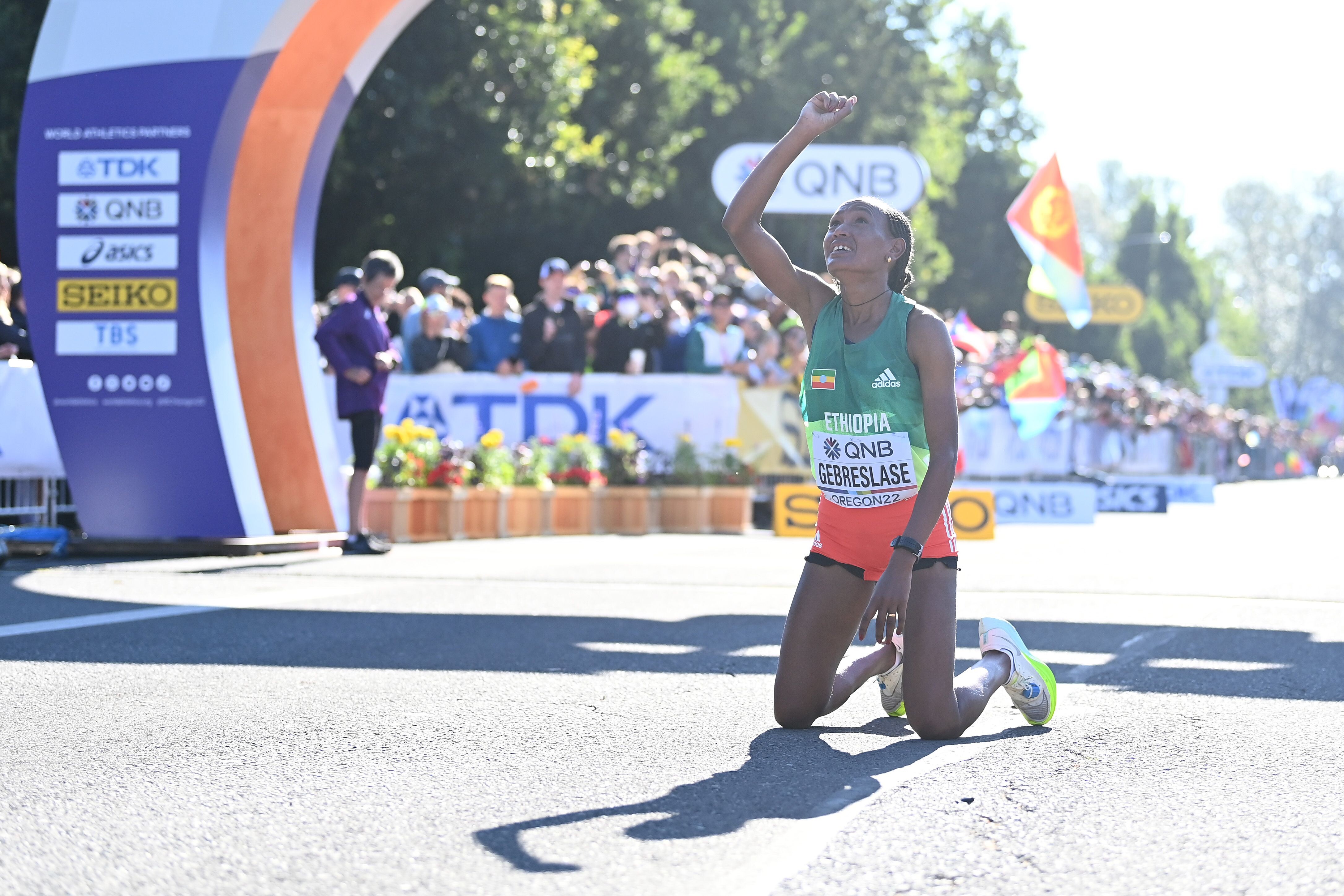
Tola, who was the marathon runner-up at the 2017 World Championships, has maintained his form this year, finishing third at the London Marathon in April in 2:04:59, behind Kelvin Kuptum (2:01:25) and Geoffrey Kamworor (2:04:23).
Neither of those two Kenyans will be on the start line in Budapest, but the defending champion will face two rivals from Kenya who have run faster than him in 2023. Timothy Kiplagat stands third on the world list with the 2:03:50 he clocked as runner-up to Belgium’s Bashir Abdi in Rotterdam in April. Abdi, the bronze medallist in Eugene, will be absent in Budapest but Kiplagat will be joined on the Kenyan team by Joshua Belet, runner-up at the Hamburg Marathon in April in 2:04:33. The third Kenyan in the field is Titus Kipruto, fourth at this year’s Tokyo Marathon in 2:05:32, who set a PB of 2:04:54 as runner-up in Amsterdam last year.
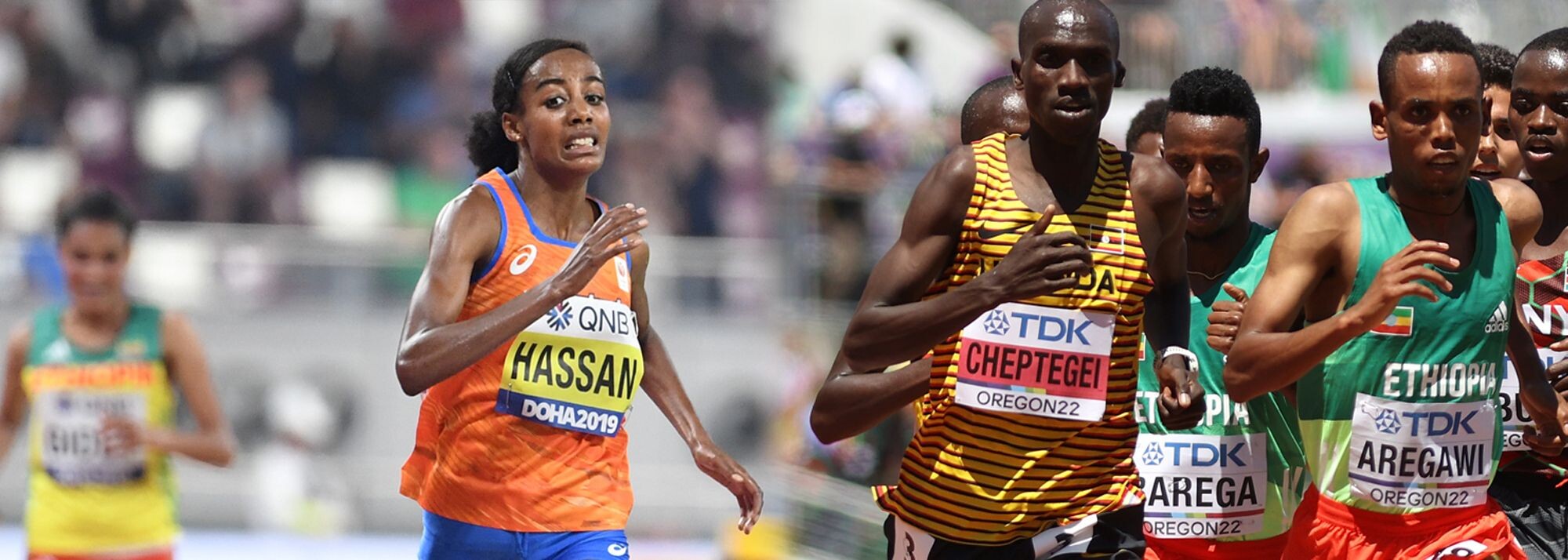
Ethiopians have finished first and second at the last two World Championships and Tola will have notable support in Budapest. Milkesa Mengesha, the 2019 world U20 cross-country champion, won the Daegu Marathon in April and clocked a best of 2:05:29 in Valencia last December. Chalu Deso won in Tokyo in March in 2:05:22. Leul Gebresilasie finished second and fourth at the last two London Marathons and has a best of 2:05:12. Tsegaye Getachew placed third in Tokyo in April in 2:05:25.
Not that the race looks like being an exclusive battle between the two established East African giants of distance running.
Abdi Nageeye of the Netherlands was runner-up to Eliud Kipchoge in the 2021 Olympic marathon in Sapporo. The 34-year-old finished third in New York last November and in Rotterdam in April.
Tanzania’s Alphonce Felix Simbu is a seasoned major championship marathon campaigner. The 31-year-old earned world bronze in London in 2017 and Commonwealth silver in Birmingham last year. He also finished fifth and seventh in the last two Olympic marathons.
Commonwealth champion Victor Kaplangat is joined on the Ugandan team by Stephen Kissa, who set a national record of 2:04:48 in Hamburg last year. Morocco’s Mohamed Reda El Aarby placed second in New York in 2021 and fourth last year.
There are a host of other sub-2:06 performers in the field: Israel’s European bronze medallist Gashu Ayale, Kaan Kigen Ozbilen of Turkey, Eritreans Goitom Kifle and Oqbe Kibrom, plus the Japanese duo Kenya Sonota and Ichitaka Yamashita.
Ayale’s Israeli teammate Marum Terifi is the second-highest placed runner from last year’s race on the entry list. He finished 11th in Oregon and then took silver at the European Championships in Munich.
Veteran Spaniard Ayam Lamdassem was sixth in Munich but fifth at global level in the Olympic marathon in 2021. Another 41-year-old on the start line will be the remarkable Ser-od Bat-Ochir. The Mongolian is unlikely to be troubling the medal contenders but will be contesting his 11th successive World Championships marathon – his 16th successive global championship marathon, having also contested the past five Olympic marathons.
Women's marathon
In Oregon last year Gotytom Gebreslase won in the fastest ever time in a women’s championship marathon, 2:18:11, but the Ethiopian will have to beat two of the six fastest women of all time if she is to successfully defend her title in Budapest.
The 2011 world U18 3000m champion was unable to keep up with one of them on the rolling hills of Boston in April, finishing 10th in her only marathon of the year in 2:24:34 – eight places and 2:44 behind compatriot Amane Beriso Shankule, who was runner-up to two-time world champion Hellen Obiri.
At 31, the formerly injury-plagued Beriso produced a stunning performance in Valencia in December last year, upsetting world 10,000m champion Letesenbet Gidey’s world record attempt with a victory in 2:14:58, putting her third on the world all-time list behind Kenyans Brigid Kosgei (2:14:04) and Ruth Chepngetich (2:14:18).
Gebreslase will also have to contend with Rosemary Wanjiru, who moved above Gidey to sixth on the world all-time list with a winning time of 2:16:28 in Tokyo in March. The 28-year-old Kenyan, fourth in the world 10,000m final in Doha in 2019, clocked one of the fastest marathon debuts in history, 2:18:00, as runner-up to Ethiopia’s Tigist Assefa in Berlin last year.
In addition to Gebreslase, five other finishers from the top 10 in Oregon last year will be on the start line: bronze medallist Lonah Salpeter from Israel and fourth-placed Nazret Weldu of Eritrea, plus Keira D’Amato of the US (eighth), Japan’s Mizuki Matsuda (ninth) and Mexico’s Citiali Moscote (10th).
The loaded field also includes the second-fastest woman of 2023, Ethiopia’s Tsehay Gemechu, the runner-up to Wanjiru in Tokyo in 2:16:56, who finished fourth in the 5000m in Doha in 2019, and Bahrain’s 2017 marathon world champion Rose Chelimo.
The Ethiopian challenge will be strengthened by world 10km record-holder Yalemzerf Yehualaw, who ran 2:17:23 on her marathon debut last year then won in London later in 2022 before finishing fifth at this year’s edition of the race. Wanjiru, meanwhile, is joined on the Kenyan team by 2014 world half marathon bronze medallist Selly Kaptich, who was third in Berlin in 2019, and Shyline Jepkorir, a winner in Enschede in April in 2:22:45.
At 36, the veteran Kaptich is four years younger than Australia’s two-time Commonwealth medallist Lisa Weightman, who showed her enduring class with 2:23:15 for fourth place in Osaka in February.
Another notable entrant is Poland’s Aleksandra Lisowska, who broke away in the final 2km to win the European title in Munich 12 months ago.
Bat-Ochir made his world debut in Paris back in 2003 and boasts a highest placing of 19th in Daegu in 2011. He finished 26th in Oregon last year, his second-best global performance. His appearance in Budapest will match Portuguese race walker Joao Viera’s tally of 11 – two shy of Spanish race walker Jesus Angel Garcia’s record.
by World Athletics
Login to leave a comment
World Athletics Championships Budapest 23
From August 19-27, 2023, Budapest will host the world's third largest sporting event, the World Athletics Championships. It is the largest sporting event in the history of Hungary, attended by athletes from more than 200 countries, whose news will reach more than one billion people. Athletics is the foundation of all sports. It represents strength, speed, dexterity and endurance, the...
more...Simiu confident of Budapest trip after setting course record in South Africa
Commonwealth Games 10,000m bronze medalist Daniel Simiu has shifted focus on earning a slot in Team Kenya to the World Athletics Championships in Budapest after his victory at the Absa 10km Run Your City title in Gqebera, South Africa.
Simiu, who represented Kenya at the World Cross country Championships in Bathurst, Australia won the South African race with a course record of 27:21, beating hosts Precious Mashele to second in 27:35 and Thabang Mosiako in 27:51.
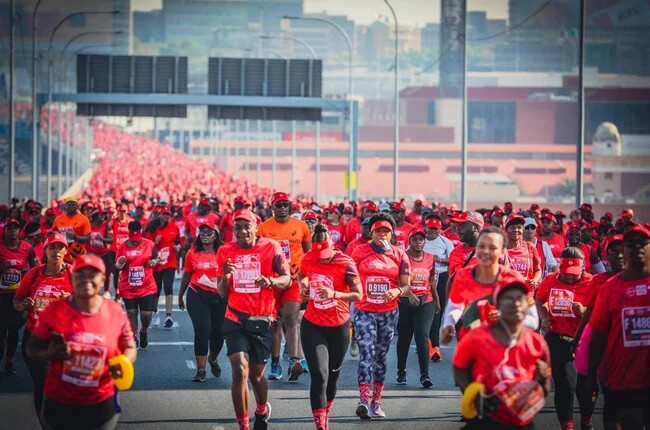
Another Kenyan, Dennis Kipngetich, finished fourth in 28:01.
"I came here with the purpose of winning and that has come to pass alongside a course record. Running 27 in 10km is easy for me and this has opened the door as I prepare for the World Championships in Budapest," said Simiu.
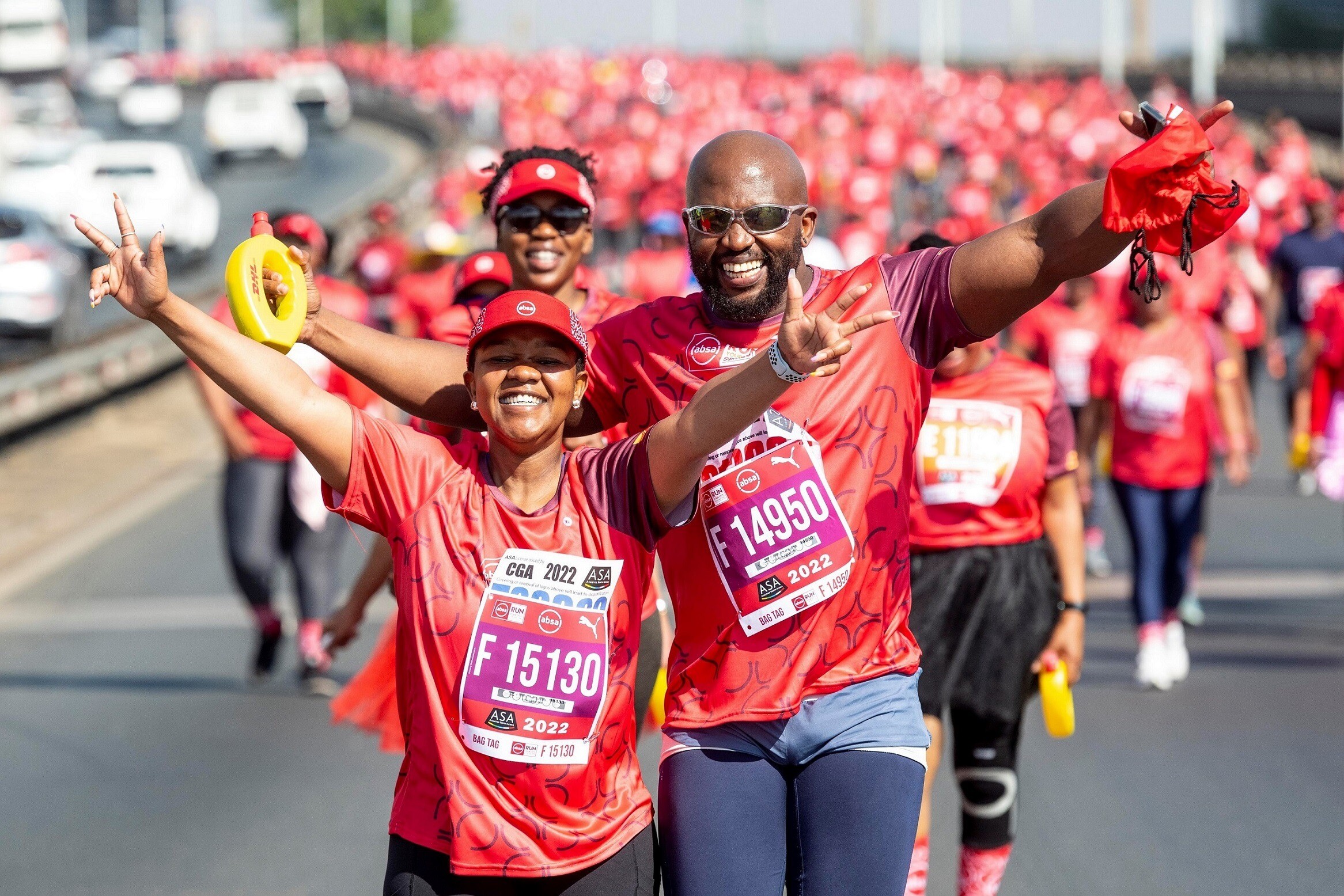
However, he said the world record of 26:11 by Ugandan Joshua Cheptegei is not in his plans but could give it a try later in his career.
"These things you don't plan but a time will come and they will be shown to the world. I don't normally have plans for myself but the coaches and management plan for me. I am only told that I have to prepare for a certain race," added Ebenyo.
In the women's race, Ethiopian Bekelech Wariyo won the title in 31:37 ahead of Kenyan Fridah Ndinda (31:41), Ugandan Docus Ajok (32:15) as another Kenyan, Diana Chesang, finished seventh in 33:39.
In China, Kenya's Kenyan Philemon Kiptoo and Meseret Abebayehu of Ethiopia were the winners of the Xiamen Marathon.
Running his maiden race in Xiamen, Kipchumba took the men's honours 2:08.04 ahead of Ethiopian Lencho Tesfaye Anbesa and Moroccan Omar Ait Chitachen, who they timed 2:08.29 and 2:08:59 respectively.
As Alemu won the title in 2:24:42, Kenyan Gladys Chesir was second in 2:25:51 followed by Ethiopian Guteni Shone in 2:25:58.
In South Korea, Ethiopian pair of Milkesa Mengesha and Ayantu Abera were the winners of the Daegu Marathon.
In men's race, Tolosa took the title in 2:06:49 followed by Kenyan Stanley Bett (2:07:00) and Ethiopian Berhane Tsegay (2:07.21).
Abera won the women's title in 2:25:44 followed by compatriot medina Deme Armino (2:27:27) as Kenyan Janet Runguru completed the podium places in 2:28.13.
Kenyans ruled the Ibiza Marathon as William Cheboi and Monica Cheruto emerged winners in men's and women's races in 2:11:31 and 2:35:17 respectively.
In Germany, Sebastien Sawe recorded his fourth half marathon victory at the Berlin Half Marathon.
The Rome-Ostia half marathon champion won the title in 59:01 in a Kenyan clean sweep that had Alex Kibet (59:12) in second and Bravin Kiprop in 59:22.
England's Eilish McColgan won the women's race won the title in 65:43 followed by the Ethiopian pair of Tisigie Gebreselama (66:13) and Yelemget Yeregal (66:27).
In France, Kenyan Helah Kiprop won the Paris Marathon in 2:23:19 ahead of Ethiopian Atalel Anmut in 2:23:19 as another Ethiopian, Fikrte Wereta (2:23:22) was third.
The men's title went to Abeye Ayana in 2:07:15 ahead of compatriot Guye Adolain in 2:07:35 and Josphat Boit was third in 2:07:40.
by Emmanuel Sabuni
Login to leave a comment
World Athletics Championships Budapest 23
From August 19-27, 2023, Budapest will host the world's third largest sporting event, the World Athletics Championships. It is the largest sporting event in the history of Hungary, attended by athletes from more than 200 countries, whose news will reach more than one billion people. Athletics is the foundation of all sports. It represents strength, speed, dexterity and endurance, the...
more...Ethiopian duo Mengesha and Teshome secure Ethiopian double in Copenhagen
Milkesa Mengesha and Tadu Teshome took top honors at the Copenhagen Half Marathon on Sunday (18). And with 15 men finishing inside an hour at the World Athletics Elite Label road race, the event witnessed record depth.
Mengesha, the 2019 world U20 cross-country champion, beat a quality field to notch up his second half marathon victory of the year, winning in a PB of 58:58. Teshome, meanwhile, smashed her PB to lead an Ethiopian 1-2-3, winning in 1:06:13.
After a steady opening 5km of 14:02, the pace dropped slightly in the following few kilometers of the men’s race as the large lead pack reached 10km in 28:10. The leading contenders – which included Mengesha and his compatriots Amedework Walelegn and Chala Regasa, Kenya’s Felix Kipkoech, Vincent Kipkemoi and Edmund Kipngetich, and South Sudan’s Dominic Lobalu – then started to increase the pace.
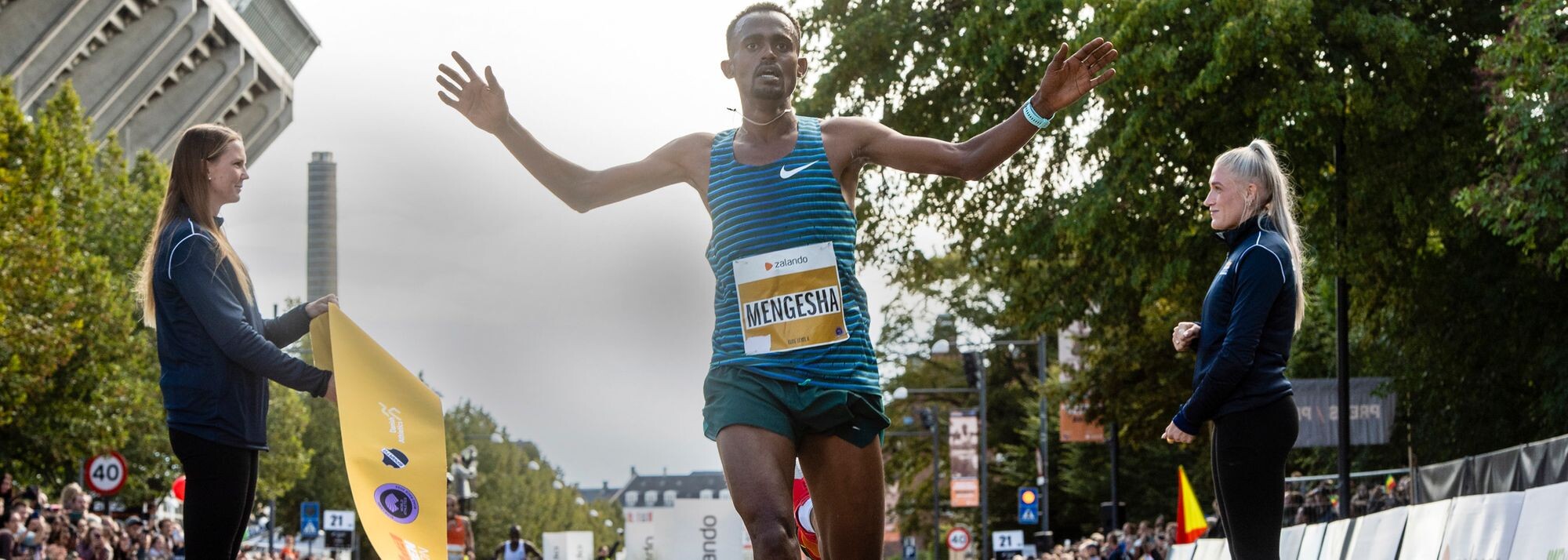
By the time of the 15km checkpoint, reached in 42:06, the lead pack was down to 12. They remained bunched together for a few more kilometers before Mengesha started to ease away, carving out a small lead before going on to win in 58:58. Compatriot Walelegn followed him home in 59:05, two seconds ahead of Kipkoech.
Lobalu, winner of the 3000m at the Wanda Diamond League meeting in Stockholm earlier this year, was fifth in a national record of 59:12. Further back, Switzerland’s 40-year-old Tadesse Abraham became the oldest man in history to finish inside 60 minutes for a half marathon, clocking 59:53.
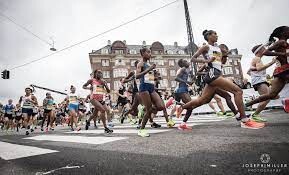
In contrast to the men’s race, which increased in pace as it went on, the women’s race started off remarkably quick but soon became a war of attrition as athletes tried to hold on as best they could.
When the first 5km was covered in a swift 15:19, most of the lead pack decided to ease off the pace, but Teshome and Tsigie Gebreselama maintained that tempo for another 5km, reaching 10km in 30:40 – inside both of their PBs for 10km.
Gebreselama then broke away from Teshome and opened up a gap of 30 seconds by 15km, reached in 46:39, but it didn’t last. Teshome came back over the next few kilometers and caught her compatriot with about two kilometers to go.
Once she was in the lead, Teshome continued to pull away and she went on to win in 1:06:13, 22 seconds ahead of Gebreselama, who was making her half marathon debut. Ethiopia’s Tiruye Mesfin almost caught Gebreselama, eventually finishing third in 1:06:42.
Leading results
Women
1 Tadu Teshome (ETH) 1:06:13
2 Tsigie Gebreselama (ETH) 1:06:35
3 Tiruye Mesfin (ETH) 1:06:42
4 Magdalena Shauri (TAN) 1:06:52
5 Eunice Chumba (BRN) 1:07:34
6 Sintayehu Tilahun (ETH) 1:07:41
7 Janet Ruguru (KEN) 1:07:51
8 Anchalem Haymanot (ETH) 1:08:09
9 Vicoty Chepngeno (KEN) 1:08:22
10 Betelihem Afenigus (ETH) 1:08:35
Men
1 Milkesa Mengesha (ETH) 58:58
2 Amedework Walelegn (ETH) 59:05
3 Felix Kipkoech (KEN) 59:07
4 Vincent Kipkemoi (KEN) 59:09
5 Dominic Lobalu (SSD) 59:12
6 Chala Regasa (ETH) 59:13
7 Edmund Kipngetich (KEN) 59:25
8 Matthew Kimeli (KEN) 59:39
9 Titus Kimutai (KEN) 59:44
10 Ronald Kirui (KEN) 59:51
by World Athletics
Login to leave a comment
Copenhagen Half Marathon
The Copenhagen Half Marathon was the first road race in Scandinavia and is one of the fastest half marathons in the world. The Copenhagen Half Marathon has been awarded with the International Association of Athletics Federation's (IAAF) most distinguished recognition - the IAAF Road Race Gold Label. Copenhagen Half Marathon was awarded the IAAF Road Race Bronze Label in January...
more...Ethiopia Has Changed Its Team Again for the 2022 Worlds
On Tuesday, the Ethiopian Athletics Federation announced its team for the 2022 World Athletics Championships in Eugene. If this sounds familiar, that’s because Ethiopia already named its team on June 13…and then updated it four days later to sub in Dawit Seyaum after she ran 14:25 to win the Oslo Diamond League.
Tuesday’s list — which the federation says is the final roster (it pretty much has to be, since entries were due to World Athletics on Monday) — features even more changes, which will have a major impact on Worlds, which begin on July 15 at Hayward Field. Remember, at World Indoor Championships earlier this year in Belgrade, Ethiopian athletes won eight of the 12 available medals across the 1500 and 3000 meters — including all four golds and a 1-2-3 sweep in the women’s 1500. The country is a distance powerhouse.
Here is the full roster, with changes, followed by some analysis on what it all means.
Men’s 800 (no changes)Ermiyas GirmaTolosa Bodena
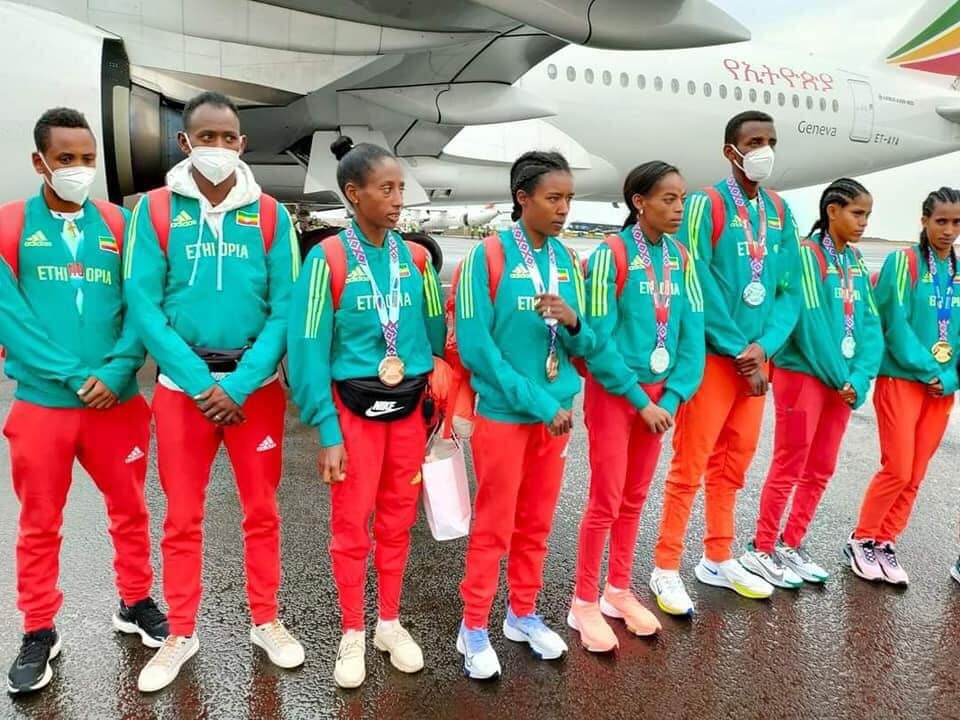
Women’s 800Habitam AlemuDiribe WeltejiHirut Meshesha (1:58.54 sb) replacing Freweyni Hailu (1:59.39 sb)
Men’s 1500Samuel TeferaTaddese Lemi (3:37.06 sb) replacing Melese Nberet (no races this year)Samuel Abate
Women’s 1500Gudaf Tsegay (3:54.21 sb) replacing Axumawit Embaye (3:58.80 sb)Freweyni Hailu (3:58.18 sb, 4th in Olympics) replacing Ayal Dagnachew (3:59.87 sb)Hirut Meshesha
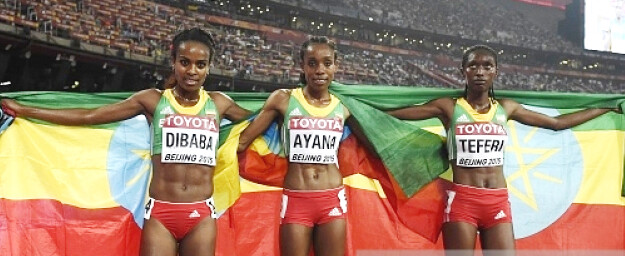
Men’s 3000 steeple (no changes)Lamecha GirmaHailemariyam AmareGetnet Wale
Women’s 3000 steepleMekides AbebeWorkua GetachewSimbo Alemayehu (9:09.17 sb at age 18) replacing Zerfe Wondemagegn (9:27.75 sb)
Men’s 5,000Muktar EdrisBerihu AregawiYomif KejelchaSelemon Barega replacing Telahun Bekele
Women’s 5,000Ejgayehu TayeLetesenbet Gidey (14:24.59 sb) replacing Gudaf Tsegay (14:26.69 sb)Dawit Seyaum (14:25.84 sb) replacing Fantu Worku (14:47.37 sb)
Men’s 10,000Selemon BaregaTadese WorkuBerihu Aregawi (26:46.13 sb) replacing Milkesa Mengesha (27:00.24 sb)
Women’s 10,000Letesenbet GideyEjgayehu Taye (30:44.68 sb) replacing Girmawit Gebrzihair (30:47.72 sb)Bosena Mulate
Men’s marathonLelisa DesisaTamirat TolaMosinet GeremewSeifu Tura
Women’s marathonGotytom GebreslaseAbabel YeshanehAshete Bekere
Quick Takes
1) Ethiopia’s team just got A LOT stronger and Ethiopia went from no one doubling to a lot of doublers
In recent years, Ethiopia has been reluctant to allow its stars to double at global championships. Last year in Tokyo, Ethiopia had two huge 5,000m medal threats in Selemon Barega (Olympic 10,000 champ) and Berihu Aregawi (the 10,000 4th placer who would go on to win the Diamond League 5,000 title) but neglected to enter either in the 5,000 meters. Of the three men Ethiopia did enter, two failed to even make the final and the third, Milkesa Mengesha, wound up 10th.
The federation took criticism after that misstep and it looked as if it would double down in 2022 as the initial team named in June featured no doublers. But the final squad features five athletes double-entered: World Indoor bronze medalist Hirut Meshesha (800/1500) and Ejgayehu Taye (14:12 pb, #5 woman all-time), Letesenbet Gidey (women’s 5k/10k world record holder), Barega and Aregawi, all of whom are running the 5,000 and 10,000.
2) The meet is more interesting with the Ethiopians doubling; the men’s 5,000 final is now totally stacked
The World Championships are meant to be about the best against the best. When a world final is over, we don’t want to be asking ourselves, “What would have happened if Athlete X was in the race?” But that’s absolutely what we were thinking after the 2021 Olympic 5000 final without Barega. And it’s been an issue for a lot longer than that. Only once in his career did Haile Gebrselassie attempt the 5,000/10,000 double at a global champs (1993), in part because there were still prelims in the 10,000 in those days and in part because he didn’t want to tire himself for the lucrative post-championship meets in Europe.
That shouldn’t be an issue in 2022 (and if it is, it won’t have been the fault of the Ethiopian federation) as the distance finals are much stronger with Taye, Gidey, Barega, and Aregawi doubling up. The men’s 5,000 could be an all-timer. Not only do you have Olympic 5,000 champion Joshua Cheptegei of Uganda, but now we have Olympic 10,000 champ Barega stepping down and Olympic 1500 champion Jakob Ingebrigtsen stepping up. It’s reminiscent of one of the most famous races in track history, the 2003 World Championship 5,000 final in Paris which featured Hicham El Guerrouj stepping up from the 1500 and Kenenisa Bekele stepping down from the 10,000 only for both of them to be defeated by an 18-year-old Eliud Kipchoge.
Having Aregawi in the 10,000 makes for a stronger race as well as he was 3rd at the Ethiopian trials in that event and set a Diamond League record for margin for victory when he ran 12:50 to win the Pre Classic 5,000 by 16 seconds.
3) Gudaf Tsegay’s medal odds went up but her gold medal odds went down
Tsegay is pretty clearly the #2 women’s 1500 runner in the world. She won World Indoors by 5+ seconds and is 3+ seconds faster than the #3 1500 woman in the world right now. But she’s also not close to double Olympic champ Faith Kipyegon, who beat her convincingly at Pre, 3:52.59 to 3:54.21.
Initially, Tsegay was entered in the 5,000 at Worlds (she ran the 5,000 only at the Olympics last year, earning the bronze medal) and while there’s no overwhelming favorite in that event like Kipyegon (well at least until we see how Sifan Hassan looks this weekend), Tsegay is not as good at the 5,000 as the 1500 (as evidenced by her defeat to countrywoman Dawit Seyaum in the 5,000 in Oslo). By running the 1500, Tsegay has a better shot at a medal but her odds at gold are worse.
4) It just got a WHOLE LOT harder for the Americans to medal
An American medal in the women’s 5,000 or 10,000 was already unlikely, so the Ethiopian roster changes didn’t make a huge impact on the chances of Karissa Schweizer or Elise Cranny. But the medal odds of Grant Fisher, who finished 5th in the Olympic 10,000 last year, are way lower today than they were a week ago (a statement also true for his US teammates Woody Kincaid and Joe Klecker).
Last Wednesday, two of the four men who finished ahead of Fisher in the 10,000 in Tokyo were major question marks. Bronze medalist Jacob Kiplimo hadn’t raced on the track all year, while Aregawi, the 4th placer, was named to Ethiopia’s team in the 5,000 only. Since then, Kiplimo ran 7:29 for 3,000 in Stockholm to show he’s very fit right now and Aregawi was added to Ethiopia’s 10,000 squad. Plus Barega was added to the 5,000.
Those developments will make it significantly harder for Fisher (or any American man in the 5,000 or 10,000) to earn a medal. That said, if an American can somehow medal, it will go down as a monumental achievement since no one can accuse these fields of being watered down.
Sinclaire Johnson‘s medal hopes in the 1500 also took a BIG hit. With Tsegay now in the 1500, two medals seem to be spoken for and new addition Freweyni Hailu, who was 4th in the Olympics last year at age 20, is better than Ayal Dagnachew (who is no slouch herself, world junior 800 champ last year and 3:59 this year).
5) Ethiopia needs to figure out a better way to do this
One of the most important jobs an athletics federation has is selecting national teams. And for countries that don’t use a “top 3 at the trials” model — which is to say, every country except for the US — things can get prickly as someone, inevitably, is going to be upset they’re missing out on the team.
There are ways to limit the outrage. The simplest solution is the one USATF has already discovered: hold a trials and just pick the top three finishers. Ethiopia actually did this ahead of the Olympics last year. The problem was, they held all the races on the same day, making it impossible for athletes to try out for both the 5,000 and 10,000 teams.
But even if you don’t want to stage a trials, a federation can avoid much of the backlash by announcing a clear criteria ahead of time and sticking to it. You want to pick the team based off season’s bests? Fine. Just let everyone know before the season starts and let them plan their races accordingly. Transparency and consistency are the keys.
Heck, even if you want to be subjective and use a selection panel, you can at least cut down on some of the drama by letting the athletes know in advance that they’ll have to run a few performances to impress the selectors.
What you don’t want to do is announce a team well before the entry deadline (and three days before two key Diamond League meets featuring most of your athletes) only to drastically change it three weeks later. Which is exactly what happened in Ethiopia, leaving athletes like Telahun Bekele (winner of the 5,000 in Oslo) to think they’re on the team only to yank it away less than a month later.
In the end, Ethiopia ended up picking the team by season’s best except in the 10,000, where it staged a trial race (and the top 3 there were the fastest 3 on the year). If it had just used that criteria throughout the year and stuck to it, there would be fewer angry people right now. The athletes deserve better.
by Jonathan Gault
Login to leave a comment
World Athletics Championships Budapest23
Budapest is a true capital of sports, which is one of the reasons why the World Athletics Championships Budapest 2023 is in the right place here. Here are some of the most important world athletics events and venues where we have witnessed moments of sporting history. Throughout the 125-year history of Hungarian athletics, the country and Budapest have hosted numerous...
more...Ethiopia’s Askale Merachi and Kelkile Gezahegn will defend their titles at the 50th Chevron Houston Marathon, while Kenya’s Vicoty Chepngeno and Shadrack Korir lead the entries for the Aramco Half
Merachi won in Houston in 2020 in 2:23:29, finishing more than a minute ahead of the rest of the field. She went on to win the Taipei Marathon later that year in 2:28:31, but hasn’t raced since then, so her form going into this weekend’s race is relatively untested.
She will face stiff competition from compatriot Biruktayit Eshetu Degefa, a three-time winner in Houston who is aiming to become the race’s first four-time winner. She finished runner-up to Merachi in 2020, clocking 2:24:47. Her PB stands at 2:22:40, set in Toronto in 2019, while her fastest time in Houston is the 2:23:28 she ran to win three years ago.
Two-time Chicago Marathon winner Atsede Baysa has the fastest PB of the field with 2:22:03. A sub-2:25 time may be required to make the podium on Sunday, but the last time the 34-year-old Ethiopian bettered that barrier was back in 2012.
Ethiopian women have won the past 14 editions of the Houston Marathon, but that streak could be under threat on Sunday as Keira D’Amato aims to become the first US woman to win the Houston Marathon since 2005.
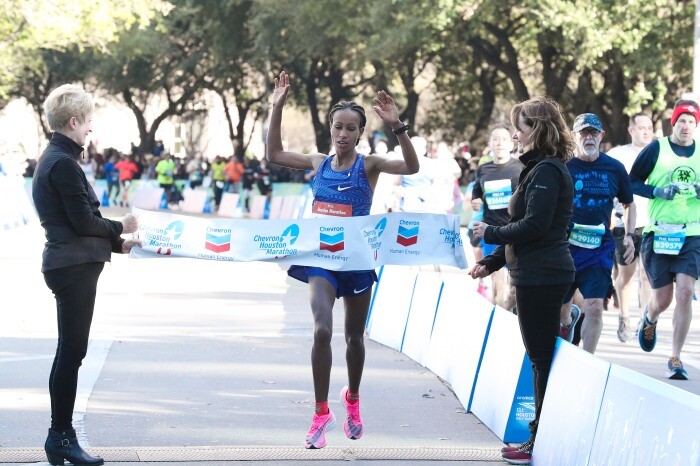
The 37-year-old, who took a complete break from running between 2009 and 2016, has been racking up impressive performances on the roads in recent years. She set a marathon best of 2:22:56 and a North American 10-mile record of 51:23 in 2020, finished fourth at last year’s Chicago Marathon, and clocked a half marathon PB of 1:07:55 last month. If conditions are good, the course record of 2:23:14 – set by Alemitu Abera in 2012 – could be under threat.
Ethiopian marathon debutante Tsige Haileslase and USA’s Robert Groner, who finished sixth at the 2019 World Championships, are among the other contenders.
Gezahegn, the defending men’s champion, won with 2:08:36 two years ago and finished two minutes clear of his nearest rivals. His only race since then was the 2021 Boston Marathon, where he finished 15th in 2:12:37. A 2:05:56 runner at his best, the 25-year-old will be keen to use this weekend’s race as an opportunity for redemption.
If John Langat can reproduce his form from 2019, when he won in Eindhoven in a PB of 2:07:11, he could contend for the victory on Sunday. Japan’s Kenta Uchida will also be a formidable opponent. He has a lifetime best of 2:08:12 and will be keen to earn his first marathon victory.
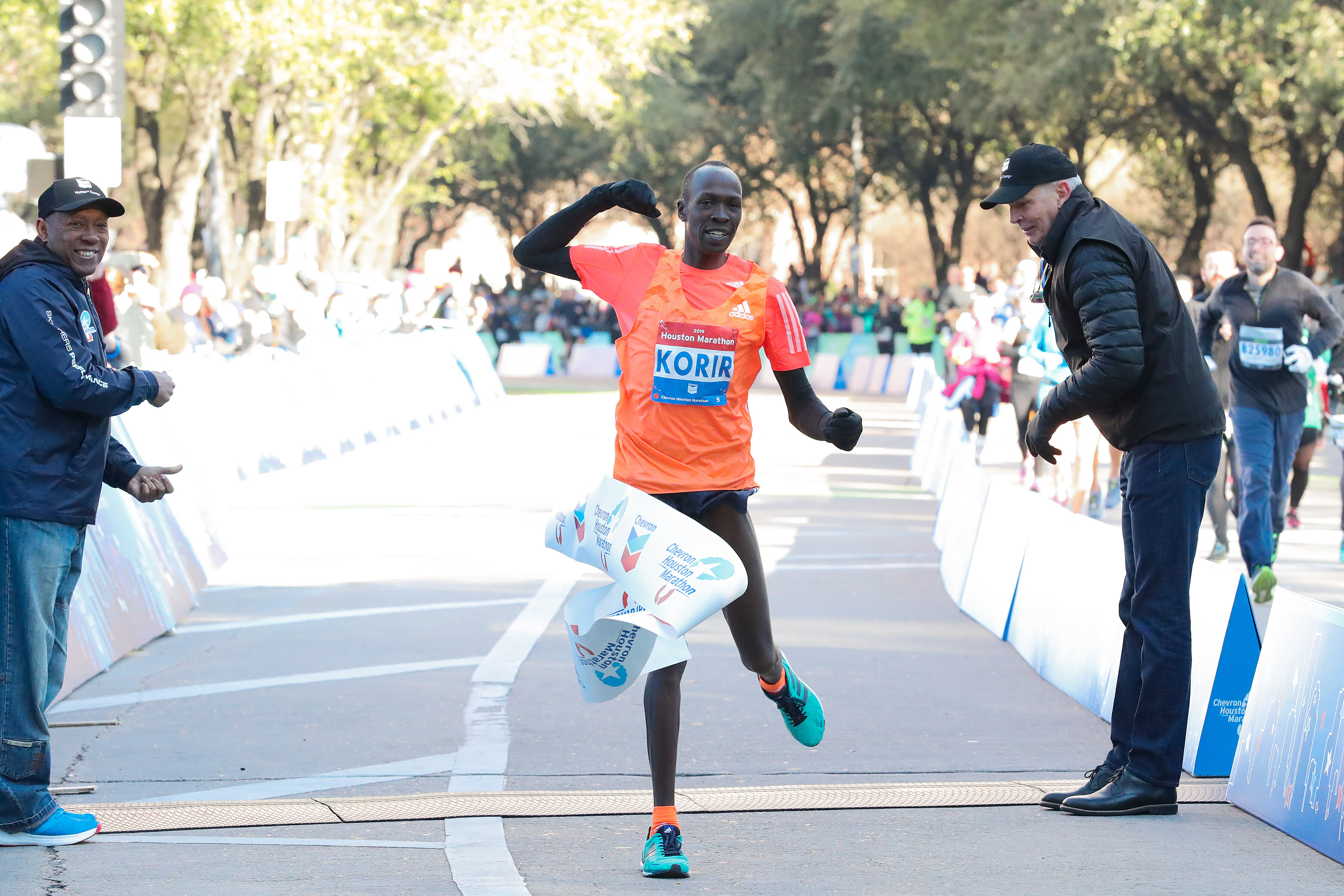
Bahrain’s Abdi Abdo, Ethiopia’s 2008 world indoor 3000m champion Tariku Bekele and US marathon debutant Frank Lara are others to watch out for.
Vicoty Chepngeno will start as the favourite for the Houston Half Marathon, held concurrently with the marathon. The 28-year-old Kenyan has an impressive record in US road races; she has won nine of her past 10 half marathons on US roads, and her lifetime best of 1:07:22 was set in her most recent outing over the distance, in Philadelphia two months ago. Despite her extensive racing experience, though, this will be Chepngeno’s first Houston Half Marathon.
Compatriot Monicah Ngige, meanwhile, will be making her third Houston Half Marathon appearance. The 28-year-old set her PB of 1:07:29 there in 2019. More recently, she finished fourth at the Boston Marathon in October on her debut over the distance, clocking 2:25:32.
Sara Hall leads the US entrants. The 38-year-old has focused more on the marathon in recent years, achieving podium places at the 2020 London Marathon and the 2021 Chicago Marathon, also clocking a PB of 2:20:32 in between those outings. But she has also won her two most recent half marathons, setting a PB of 1:08:18 in 2020.
Shadrack Kimining Korir returns to Houston after finishing third in 2020 in a personal best of 59:27, just two seconds shy of the winner. His most recent outing was at the Lisbon Half Marathon in October, where he finished fifth in 1:02:42.
Wilfred Kimitei also competed in Lisbon towards the end of last year, albeit in a different event to the one where Korir raced, and finished 11th in 1:00:03 – just 23 seconds shy of the PB he set in Ras Al Khaimah in 2018.
Ethiopia’s Milkesa Mengesha also heads to Houston in good form. The 2019 world U20 cross-country champion, still only 21, finished ahead of Kimitei in Lisbon in November, clocking a PB of 59:48 in what was just his second half marathon to date. Earlier in 2021 he set a 5000m PB of 12:58.28 and finished 10th in the Olympic final at that distance.
Kenya’s Raymond Magut, who clocked a PB of 1:00:00 in Herzogenaurach in September, should also be a strong contender, along with Ethiopia’s Bayelign Teshager and Eritrea’s Tsegay Tuemay.
Elite fields
WOMEN Half marathon
Vicoty Chepngeno (KEN) 1:07:22
Monicah Ngige (KEN) 1:07:29
Sara Hall (USA) 1:08:58
Caren Maiyo (KEN) 1:09:20
Sarah Pagano (USA) 1:09:41
Emily Durgin (USA) 1:09:47
Maegan Krifchin (USA) 1:09:51
Andrea Ramirez Limon (MEX) 1:10:20
Dominique Scott (ZAF) 1:10:42
Elaina Tabb (USA) 1:10:44
Nell Rojas (USA) 1:10:45
Julia Griffey (USA) 1:11:04
Emily Setlack (CAN) 1:11:41
Dakotah Lindwurm (USA) 1:11:43
Maor Tiyouri (ISR) 1:11:50
Paige Stoner (USA) 1:11:53
Jessica Judd (GBR) debut
Fiona O’Keeffe (USA) debut
Maddie Alm (USA) debut
Marathon
Atsede Baysa (ETH) 2:22:03
Biruktayit Eshetu Degefa (ETH) 2:22:40
Keira D’Amato (USA) 2:22:56
Askale Merachi (ETH) 2:23:29
Roberta Groner (USA) 2:29:09
Kathya Mirell Garcia Barrios (MEX) 2:34:46
Militsa Mircheva (BGR) 2:35:03
Tsige Haileslase (ETH) debut
Maggie Montoya (USA) debut
Emily Kearney (GBR) debut
Alice Wright (GBR) debut
MEN Half marathon
Shadrack Kimining Korir (KEN) 59:27
Wilfred Kimitei (KEN) 59:40
Milkesa Mengesha (ETH) 59:48
Raymond Magut (KEN) 1:00:00
Bayelign Teshager (ETH) 1:00:31
Tsegay Tuemay (ERI) 1:00:50
Patrick Tiernan (AUS) 1:01:22
Reed Fischer (USA) 1:01:37
Rory Linkletter (CAN) 1:01:44
Reid Buchanan (USA) 1:01:45
Colin Mickow (USA) 1:01:47
Matt Llano (USA) 1:01:47
Harvey Nelson (USA) 1:01:48
John Raneri (USA) 1:01:51
Brogan Austin (USA) 1:01:52
Zouhair Talbi (MAR) 1:02:00
Kirubel Erassa (USA) debut
Marathon
Kelkile Gezahegn (ETH) 2:05:56
John Langat (KEN) 2:07:11
Kenta Uchida (JPN) 2:08:12
Abdi Abdo (BRN) 2:08:32
Elisha Barno (KEN) 2:09:32
Tariku Bekele (KEN) 2:09:33
Augustus Maiyo (USA) 2:10:47
Jesus Arturo Esparza (MEX) 2:11:04
Birhanu Kemal Dare (ETH) 2:12:21
Tyler Jermann (USA) 2:12:40
Frank Lara (USA) debut
James Ngandu (KEN) debut
Luke Caldwell (GBR) debut
by World Athletics
Login to leave a comment
Chevron Houston Marathon
The Chevron Houston Marathon offers participants a unique running experience in America's fourth largest city. The fast, flat, scenic single-loop course has been ranked as the "fastest winter marathon" and "second fastest marathon overall" by Ultimate Guide To Marathons. Additionally, with more than 200,000 spectators annually, the Chevron Houston Marathon enjoys tremendous crowd support. Established in 1972, the Houston Marathon...
more...Kiplimo breaks world half marathon record in Lisbon
Uganda’s Jacob Kiplimo broke the world record* at the EDP Lisbon Half Marathon on Sunday (21), clocking 57:31 at the World Athletics Label road race.
The world half marathon champion won by more than two minutes and took one second off the previous world record set by Kenya’s Kibiwott Kandie in Valencia last year.

Kiplimo, who finished third in the 10,000m and fifth in the 5000m at the Tokyo Olympics earlier this year, passed through the first 5km in 13:40, having already dropped the rest of the field.
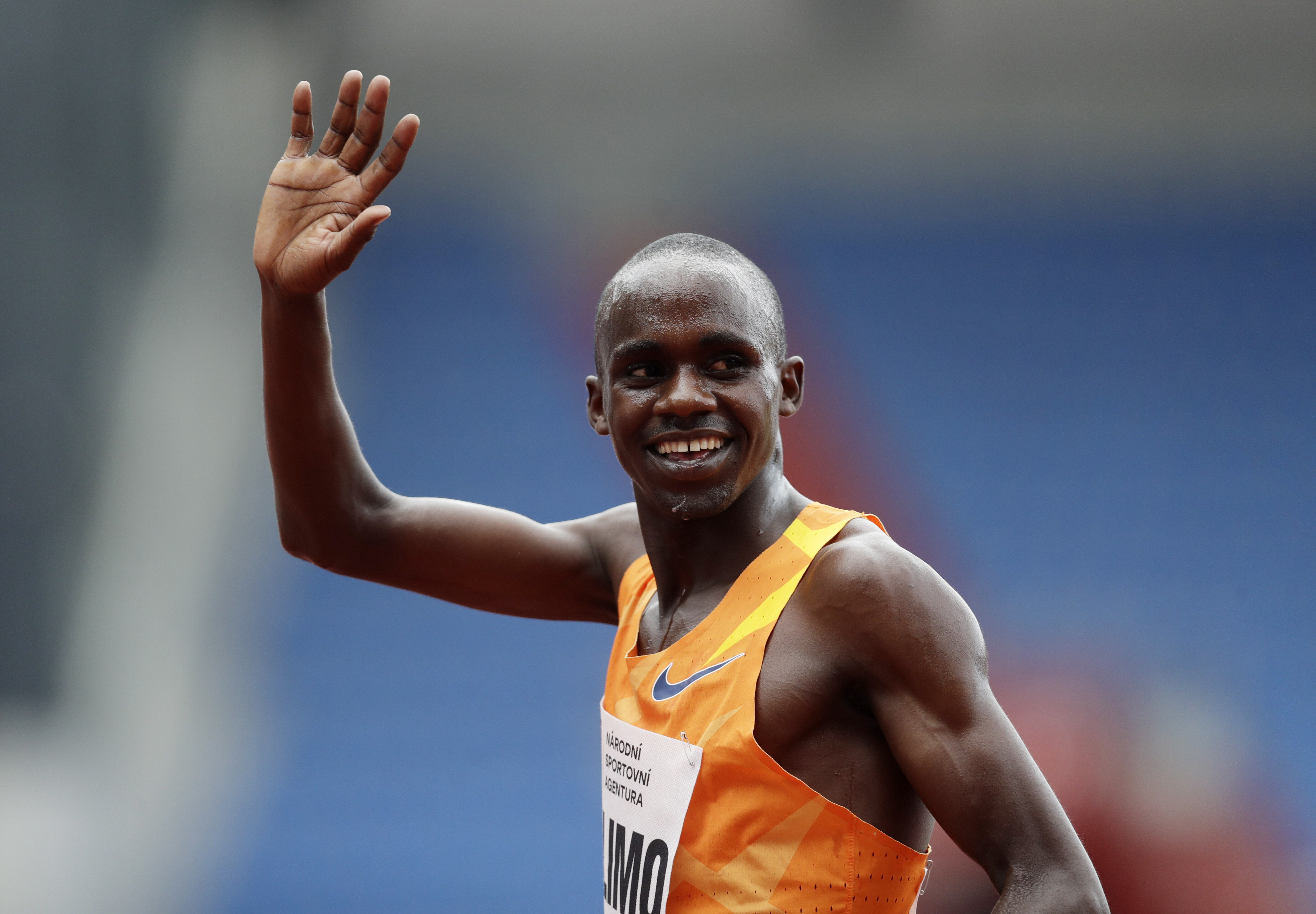
By the time he reached 10km in 27:05, he had a lead of about one minute over the chase pack and was well on schedule to break Kandie’s world record.
Kiplimo passed through 15km in 40:27, the fastest time ever recorded for the distance and indicative of a sub-57-minute finish. With no nearby competitors to work off, Kiplimo’s pace dropped slightly in the closing stages, but he managed to just finish inside the world record, crossing the line in 57:31.
Ethiopia’s Esa Huseyidin Mohamed finished second in 59:39, just ahead of compatriot Gerba Beyata Dibaba, who was given the same time for third place. The top nine men all finished inside 60 minutes.
The women’s race was a close affair as Ethiopia’s Tsehay Gemechu won in 1:06:06 from Kenya’s Daisy Cherotich (1:06:15) and Joyce Chepkemoi (1:06:19).
Leading results
Women1 Tsehay Gemechu (ETH) 1:06:062 Daisy Cherotich (KEN) 1:06:153 Joyce Chepkemoi (KEN) 1:06:194 Hiwot Gebrekidan (ETH) 1:08:005 Vibian Chepkirui (KEN) 1:08:026 Ethlemahu Sintayehu Dessi (ETH) 1:08:167 Yitayish Mekonene Agidew (ETH) 1:08:188 Jess Piasecki (GBR) 1:09:449 Tsige Haileslase Abreha (ETH) 1:10:3110 Debash Kelali Desta (ETH) 1:11:01
Men1 Jacob Kiplimo (UGA) 57:312 Esa Huseyidin Mohamed (ETH) 59:393 Gerba Beyata Dibaba (ETH) 59:394 Hillary Kipkoech (KEN) 59:415 Ibrahim Hassan (DJI) 59:416 Milkesa Mengesha (ETH) 59:487 Antenayehu Dagnachaw (ETH) 59:488 Edmond Kipngetich (KEN) 59:499 Isaac Kipsang (KEN) 59:5210 Solomon Berihu Weldeslassie (ETH) 1:00:00
by World Athletics
Login to leave a comment
EDP HALF MARATHON OF LISBON
EDP Lisbon Half Marathonis an annual internationalhalf marathoncompetition which is contested every March inLisbon,Portugal. It carries World Athletics Gold Label Road Racestatus. The men's course record of 57:31 was set byJacob Kiplimoin 2021, which was the world record at the time. Kenyanrunners have been very successful in the competition, accounting for over half of the total winners, withTegla Loroupetaking the...
more...World record-holders Letesenbet Gidey and Gudaf Tsegay are among the 34 athletes named on Ethiopia’s team for the Tokyo Olympic Games.
Gidey and Tsegay – like all other members of the team – will focus on just one event each. Gidey will contest the 10,000m, the event at which she set a world record of 29:01.03 last month, while Tsegay will line up for the 5000m, having clocked a world-leading 14:13.32 in Hengelo on 8 June.
The team also includes world indoor 1500m champion Samuel Tefera and world silver medallists Selemon Barega and Yomif Kejelcha.
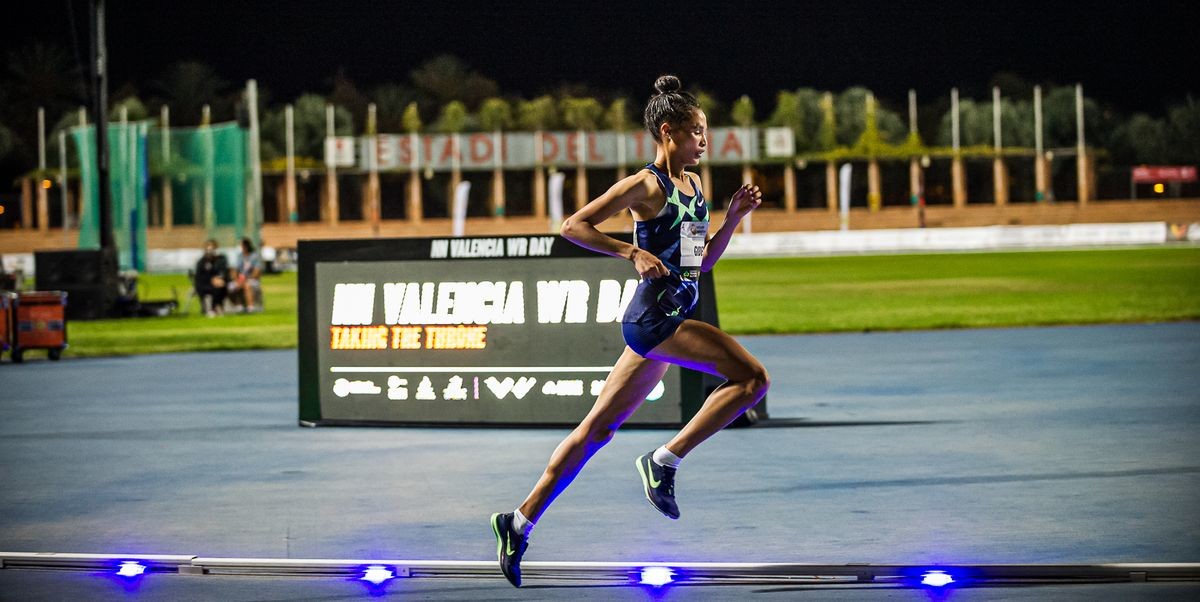
Ethiopian team for Tokyo
WOMEN 800m:
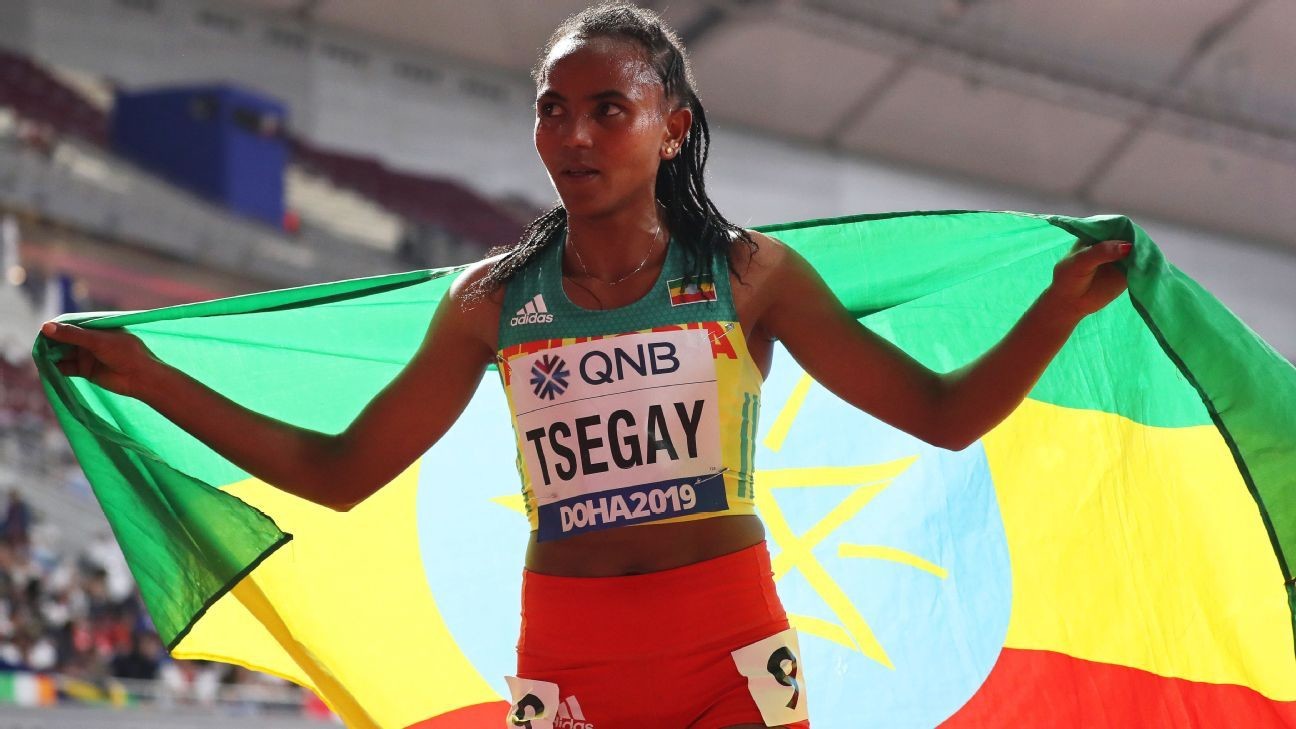
Habitam Alemu, Workwuha Getachew, Worknesh Mesele1500m: Freweyni Hailu, Lemlem Hailu, Diribe Welteji5000m: Ejigayehu Taye, Senbere Teferi, Gudaf Tsegay10,000m: Tsigie Gebreselama, Tsehay Gemechu, Letesenbet GideyMarathon: Roza Dereje, Birhane Dibaba, Tigist Girma3000m steeplechase: Mekides Abebe, Lomi Muleta, Zerfe Wondimagegn
MEN 800m:
Melese Nibret1500m: Samuel Abate, Tadesse Lemi, Samuel Tefera5000m: Milkesa Mengesha, Nibret Melak, Getnet Wale10,000m: Berihu Aregawi, Selemon Barega, Yomif KejelchaMarathon: Leslisa Desisa, Shura Kitata, Sisay Lema3000m steeplechase: Hailemariam Amare, Abrham Sime, Tadesse Takele
by World Athletics
Login to leave a comment
Tokyo 2020 Olympic Games
Fifty-six years after having organized the Olympic Games, the Japanese capital will be hosting a Summer edition for the second time, originally scheduled from July 24 to August 9, 2020, the games were postponed due to coronavirus outbreak, the postponed Tokyo Olympics will be held from July 23 to August 8 in 2021, according to the International Olympic Committee decision. ...
more...Abe Gashahun and Tsigie Gebreselama, winners of Great Ethiopian Run
On Sunday, the Great Ethiopian Run was held in Addis Ababa, the capital of Ethiopia, and thousands of runners showed up to compete in the 10K race. This marked the 20th running of the event, which was created by Ethiopian running legend Haile Gebrselassie.
The elite races, which featured 300 athletes, saw two close finishes, with Ethiopians Abe Gashahun and Tsigie Gebreselama taking the wins in the men’s and women’s races by one and two seconds, respectively.
In total, more than 12,000 runners participated in the race, which is reportedly the biggest African sporting event to take place since the start of the pandemic.
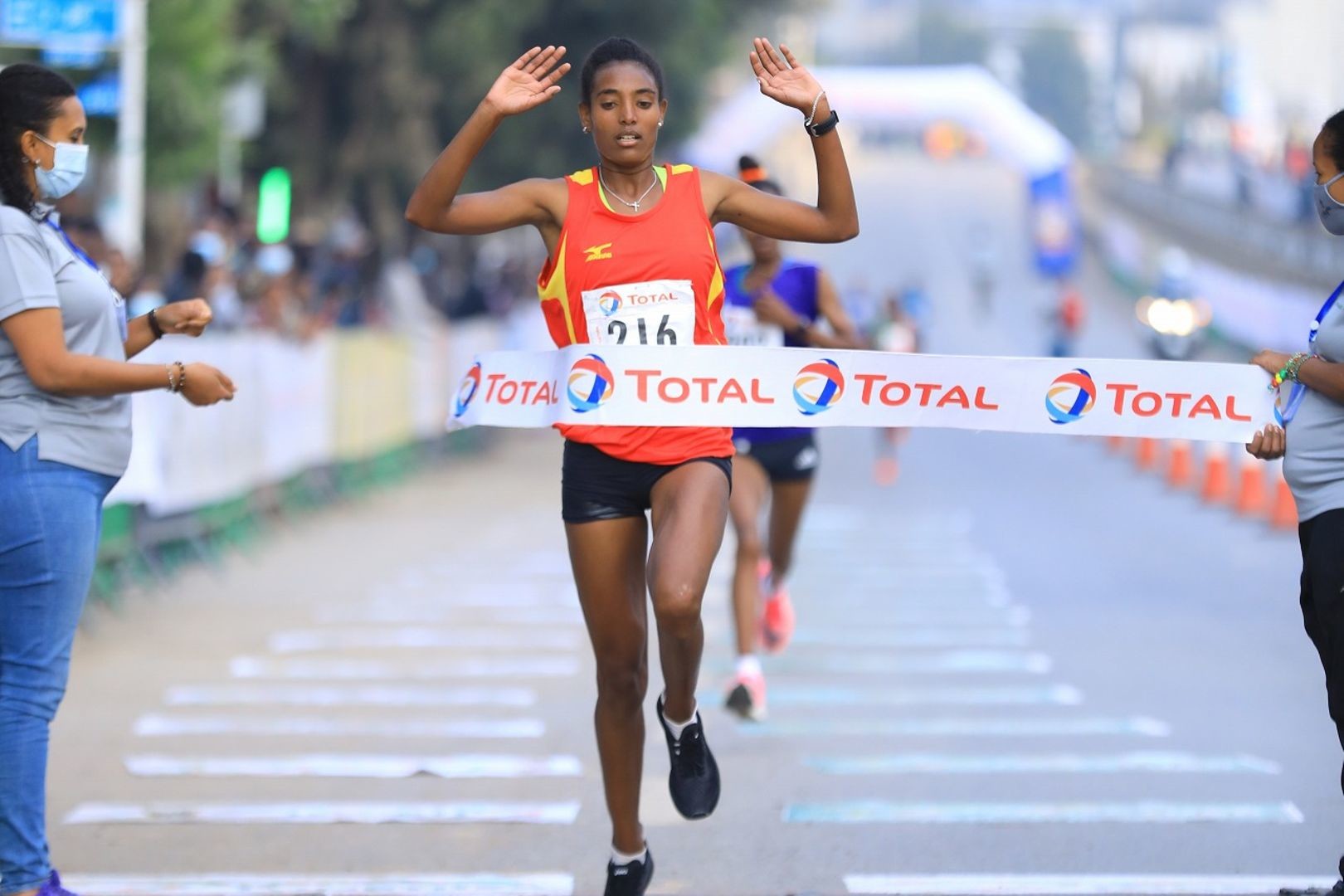
In 2018 Gebreselama finished in third at the Great Ethiopian Run. The year after, she upgraded to a second-place finish. On Sunday, at what was still billed as the 2020 race, she ran to the win, completing a three-year climb to the top of the podium. She crossed the line in 32:33, finishing two seconds ahead of Medihen Gebreselasie and 10 seconds in front of Gebeyanesh Ayele, both of whom are also Ethiopian. Gebreselama’s result is the fourth-fastest time in race history.
In the men’s race, Gashahun took the win in 28:20, finishing just one second off the 15-year-old course record of 28:19. This is Gashahun’s second win at the Great Ethiopian Run, adding to his victory from 2016.
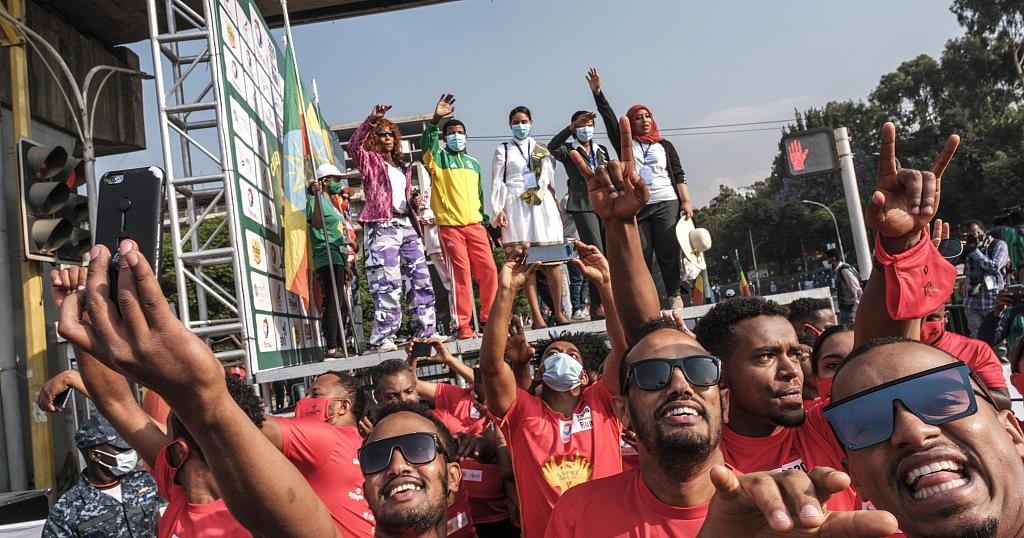
Gashahun’s fellow Ethiopians Milkesa Mengesha and Tadese Worku made him work hard for the win, and the trio battled for the top spot throughout most of the race. While Mengesha eventually faded to a 28:40 third-place finish, Worku stuck it out until the very end, falling just short of the win in 28:21.
The run takes place at more than 2,300m above sea level, which accounts for slower results than elites would normally run. For context, 76 Ethiopian men have run faster than Gashahun’s 28:20 winning time and 118 Ethiopian women have better PBs than Gebreselama’s 32:33 result.
COVID-19 guidelines
While the Great Ethiopian Run hosted a shockingly large field of athletes, there were COVID-19 guidelines in place to ensure the safety of everyone involved. Firstly, the event was moved from its original November 2020 run date until Sunday to give organizers more time to prepare for a COVID-friendly race.
The next-biggest change was the reduction of the field size from the pre-pandemic cap of 50,000 runners down to 12,500. Masks were mandatory on race day (other than when on the course), all athletes had their temperatures checked before the run and the race featured a wave start to make social distancing easier during the 10K.
The call to hold the event with such a large field drew criticism from many people in the international running community, but Gebrselassie and his Great Ethiopian Run team ultimately moved forward with their event, reportedly working closely with local health experts and government officials.
by Ben Snider-McGrath
Login to leave a comment
the Great ethiopian 10k run
The Great Ethiopian Run is an annual 10-kilometerroad runningevent which takes place inAddis Ababa,Ethiopia. The competition was first envisioned by neighbors Ethiopian runnerHaile Gebrselassie, Peter Middlebrook and Abi Masefield in late October 2000, following Haile's return from the2000 Summer Olympics. The 10,000 entries for the first edition quickly sold out and other people unofficially joined in the race without...
more...Keter breaks the world 5k road record in Lille
Kenya’s Robert Keter upstaged a quality field to win the Urban Trail Lille 5km on Saturday (9), taking seven seconds off the world record* with his winning time of 13:22.
While organisers had hoped that Lille’s flat course would lend itself to a world record, many expected the likes of world U20 5000m silver medallist Stanley Waithaka, world U20 cross-country champion Milkesa Mengesha and world indoor 3000m finalist Davis Kiplangat to challenge the mark of 13:29.
No one, however, expected the unheralded Keter to sprint away from the field in the closing stages to triumph in a world record time.
Within the first five minutes a lead pack of 10 men, two of whom were pacemakers, had broken away. The group began to stretch out as they approached the half-way point after running the perimeter of Parc Jean-Baptiste Lebas.
Keter made his way to the front before the second pacemaker dropped out, but Waithaka, Kiplangat and 2014 Youth Olympic champion Gilbert Kwemoi were all close behind. Those four men began to pull away from the other athletes in the lead pack with less than a mile left to run.
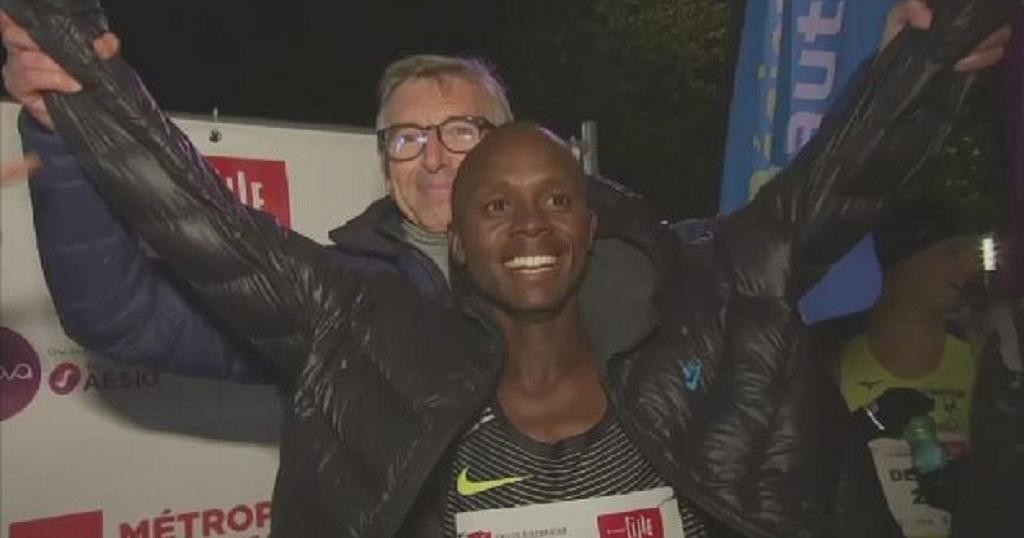
There was a relatively tight turn at 4km as they looped back on to the Boulevard de la Liberte, but Keter got there first and started to up the pace for the final kilometre. He continued to pull away from his three compatriots and they were unable to match Keter’s finishing pace.
Keter turned into the Place de la Republique with a clear lead and crossed the finish line in 13:22. Kwemoi, Waithaka and Kiplangat followed a few seconds later, finishing in that order, all with an official time of 13:28 – one second inside the existing world record.
“I’m very, very happy,” said Keter. “The race was great, it was my first 5km road race.”
Mercy Jerop, just 17 years of age, made it a Kenyan double, winning the women’s race in 16:21. France’s Fanny Pruvost, 23 years Jerop’s senior, was a distant second in 16:47.
The 5km road distance was introduced as an official world record event in November 2017, with the inaugural record to be recognised after 1 January 2018 if the performances were equal to or better than 13:10 for men and 14:45 for women.
If no such performances were achieved in 2018, the best performances of 2018 (13:30 by Bernard Kibet and 14:48 by Caroline Kipkurui) would be recognised on 1 January 2019. Seven weeks into 2019, Julien Wanders and Sifan Hassan bettered those marks in Monaco by clocking 13:29 and 14:44, times that have since been ratified as world records. Two months later, Edward Cheserek equalled Wanders’ mark at the Carlsbad 5000.
Many athletes, however, have gone quicker than 13:22 before the 5km became an official world record event. The fastest time ever recorded for the distance remains Sammy Kipketer’s 13:00 clocking in Carlsbad in 2000.
by IAAF
Login to leave a comment
Selemon Barega is going to defend his two-mile title at the Prefontaine Classic at Stanford and Yomif added to mile field
Ethiopia’s Selemon Barega will return to the Prefontaine Classic to defend his two-mile title at the IAAF Diamond League meeting in Stanford on 30 June.
Barega, the 2016 world U20 champion, won the 2018 Diamond League 5000m title in 12:43.02, a time bettered only by the last three world record setters – two of whom ran before he was born.
Already this year, the 19-year-old has finished fifth at the World Cross Country Championships, first over 10,000m at the Ethiopian Championships and has recorded a season’s best of 12:53.04 for 5000m.
Olympic silver medallist Paul Chelimo finished second to Barega in the two-mile race at last year’s Prefontaine Classic. He may have one eye on the North American best of 8:07.07 set by Matt Tegenkamp in 2007.
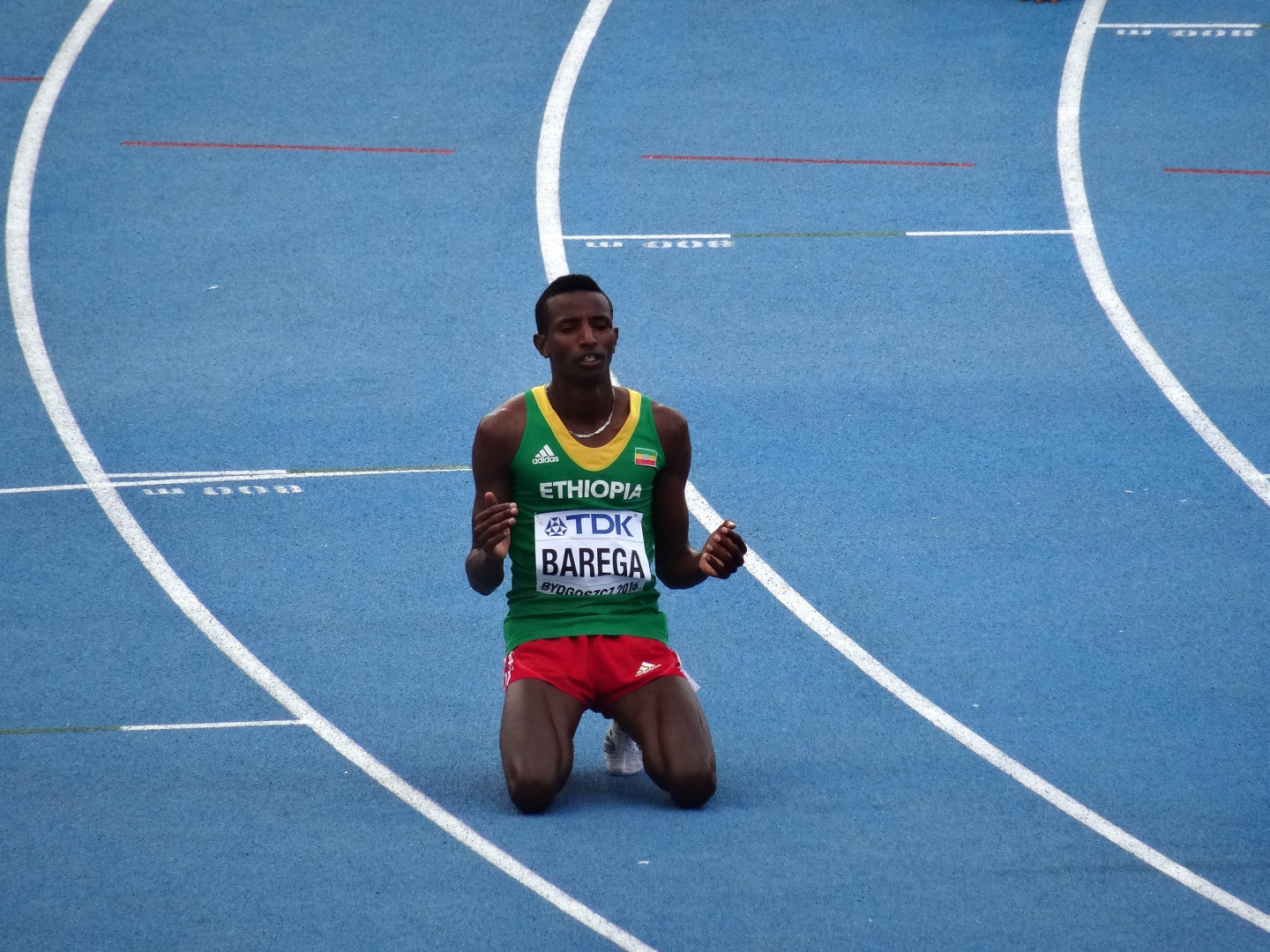
Asian champion Birhanu Balew was the only athlete to beat Barega on the IAAF Diamond League circuit last year. The Bahraini runner, who finished third in this event at last year’s Pre Classic, will be looking to get the better of Barega once again.
Abadi Hadis, the 2017 world cross-country bronze medallist, recently came close to his 5000m PB with 12:56.48 in Rome. The versatile Ethiopian also equalled his half marathon PB of 58:44 earlier this year.
Olympic bronze medallist Hagos Gebrhiwet will be contesting the distance for the first time. The Ethiopian has finished third over 5000m in Shanghai and Rome so far this year and second over 10,000m in Stockholm.
World cross-country champion Joshua Cheptegei and fellow Ugandan Jacob Kiplimo are also in the field. Kiplimo finished 11th in this race last year, setting a national record of 8:25.17 – a time that should be within range for both men this time round.
Mo Ahmed, who last week lowered the Canadian 5000m record to 12:58.16, was also in last year’s Pre Classic two-mile race, finishing fourth.
Getaneh Molla made headlines earlier this year when he won the Dubai Marathon in 2:03:34, the fastest debut marathon in history. The Ethiopian will be moving down in distance in Stanford.
While younger brothers Filip and Jakob will line up for the mile in Stanford, older brother Henrik Ingebrigtsen will contest the two-mile event and will look to improve upon his 8:22.31 fifth-place finish from last year.
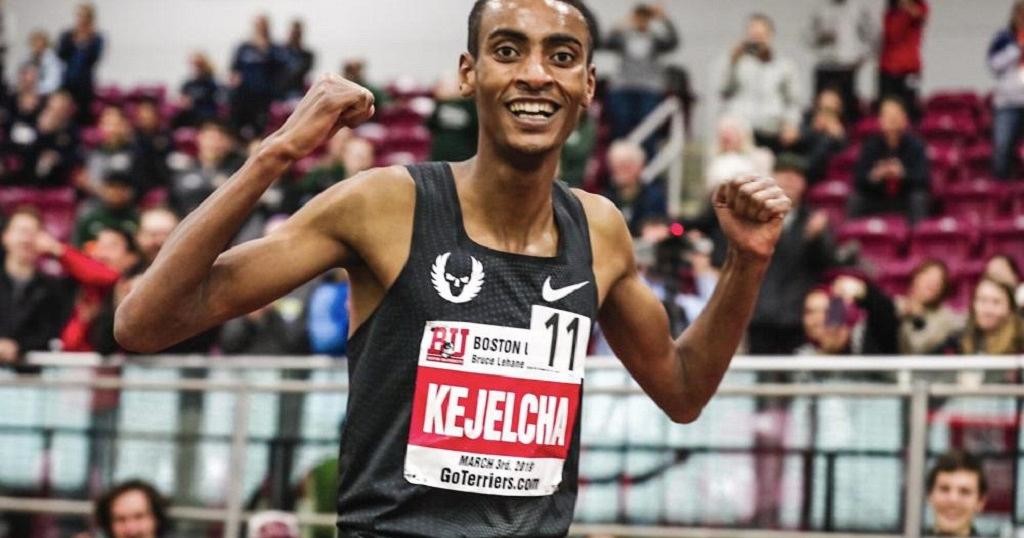
Others in the field include world U20 1500m record-holder Ronald Kwemoi, Olympic 10,000m silver medallist Paul Tanui, 2018 world 10,000m leader Richard Yator, world U20 cross-country champion Milkesa Mengesha, Australia’s Stewart McSweyn and Canada’s Justyn Knight.
In other Stanford-related news, world indoor record-holder Yomif Kejelcha has been added to the Bowerman Mile field.
by IAAF
Login to leave a comment
Prefontaine Classic
The Pre Classic, part of the Diamond League series of international meets featuring Olympic-level athletes, is scheduled to be held at the new Hayward Field in Eugene. The Prefontaine Classicis the longest-running outdoor invitational track & field meet in America and is part of the elite Wanda Diamond League of meets held worldwide annually. The Pre Classic’s results score has...
more...

